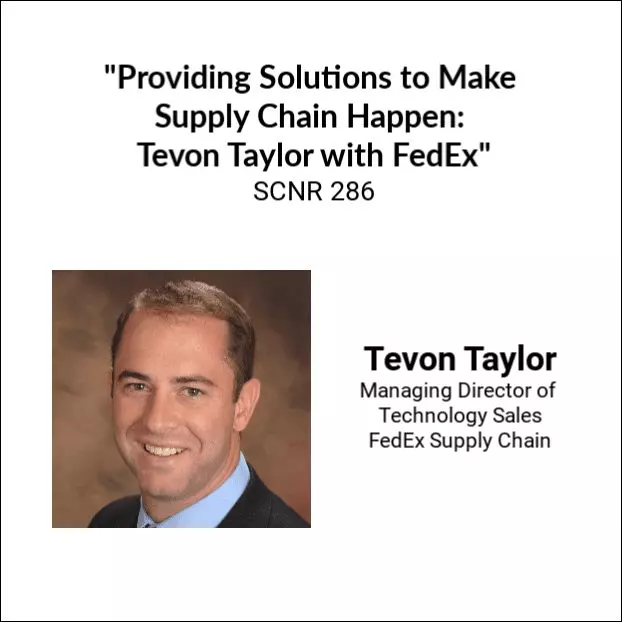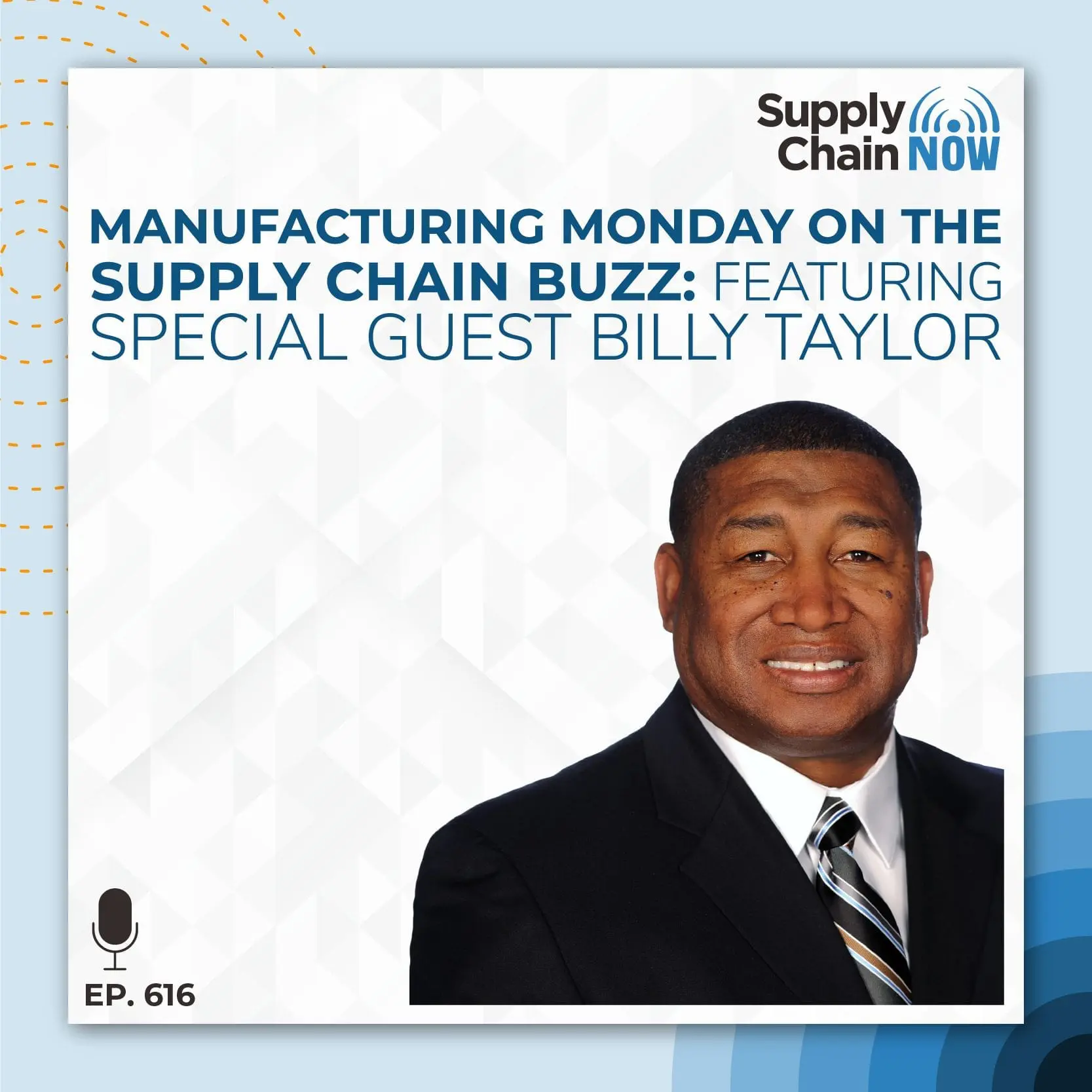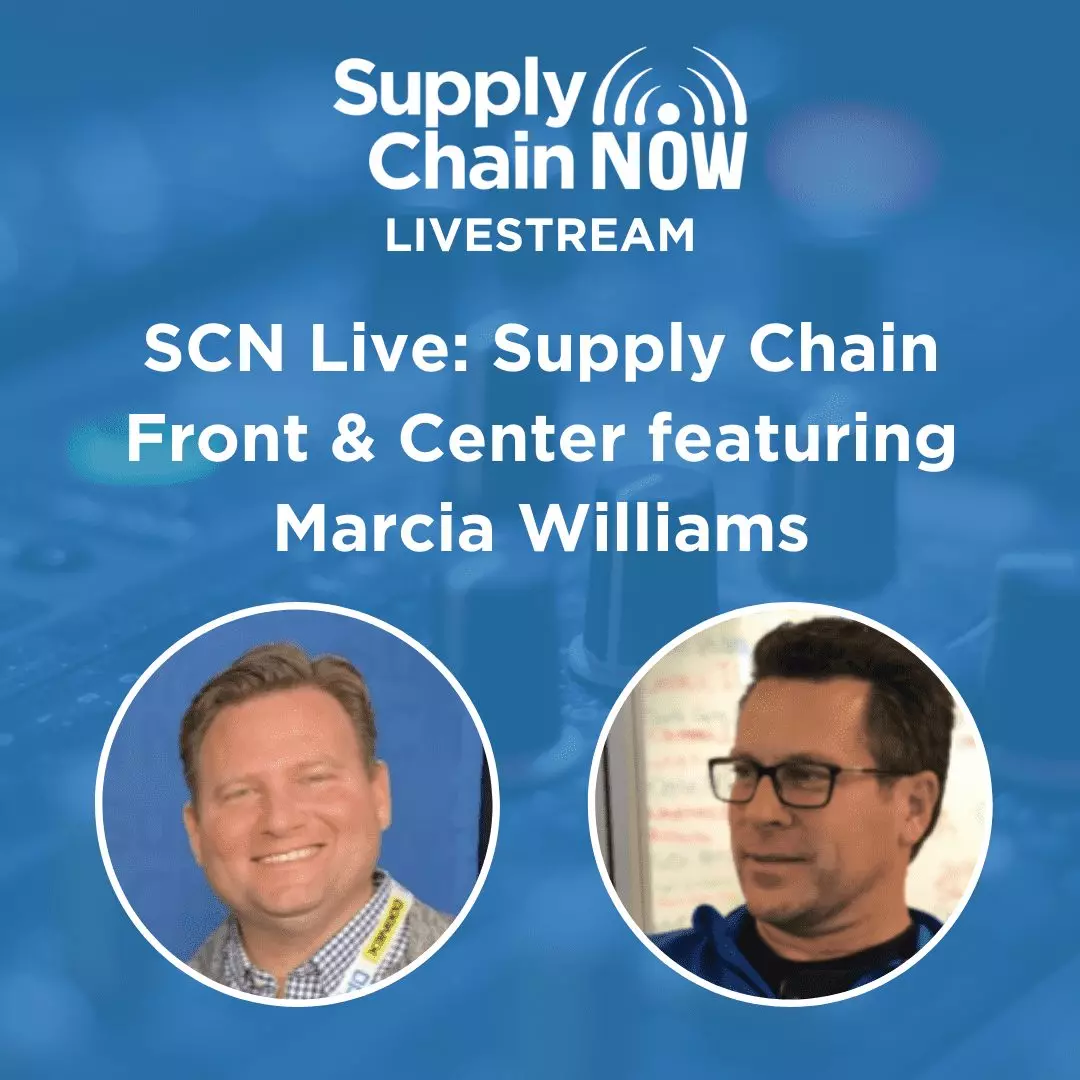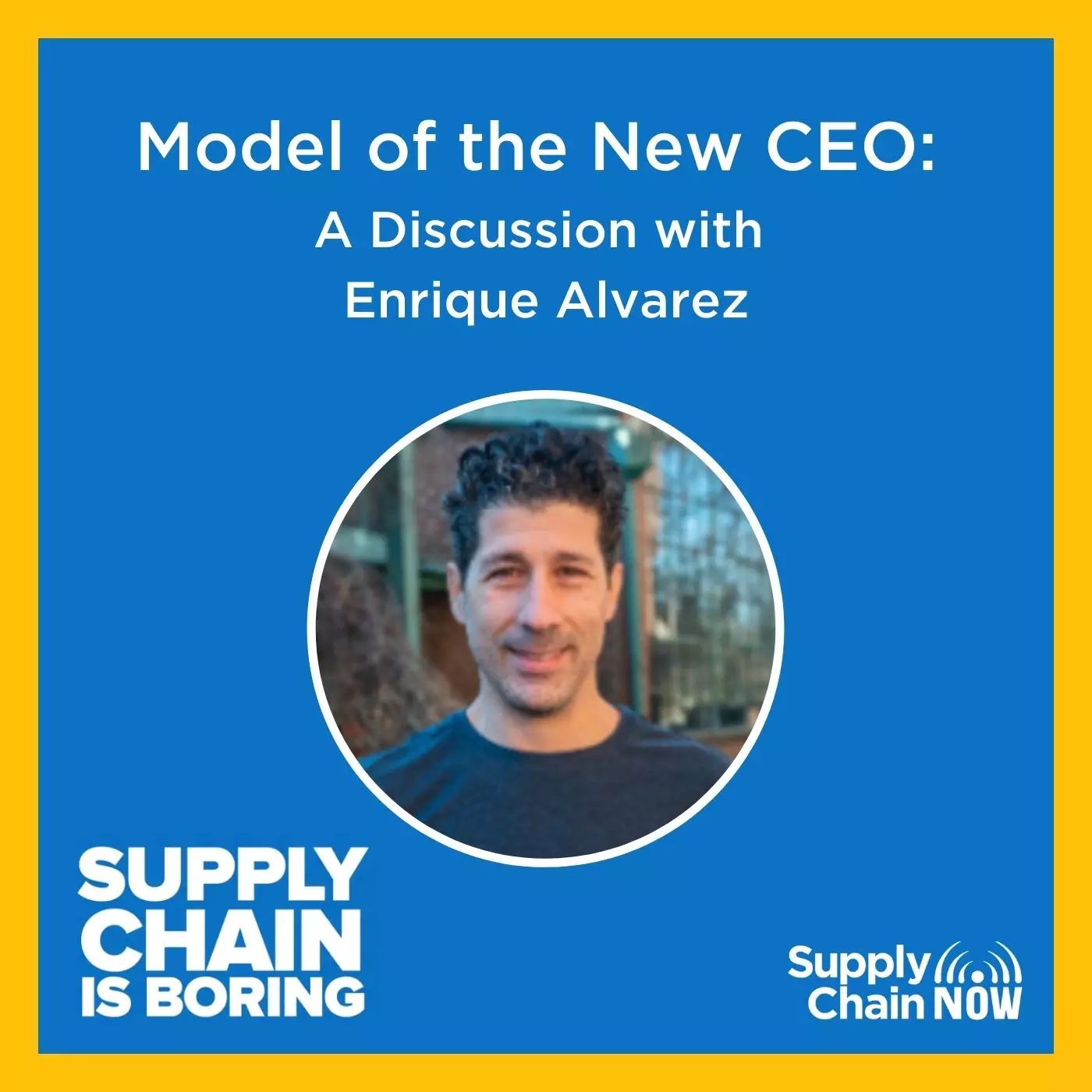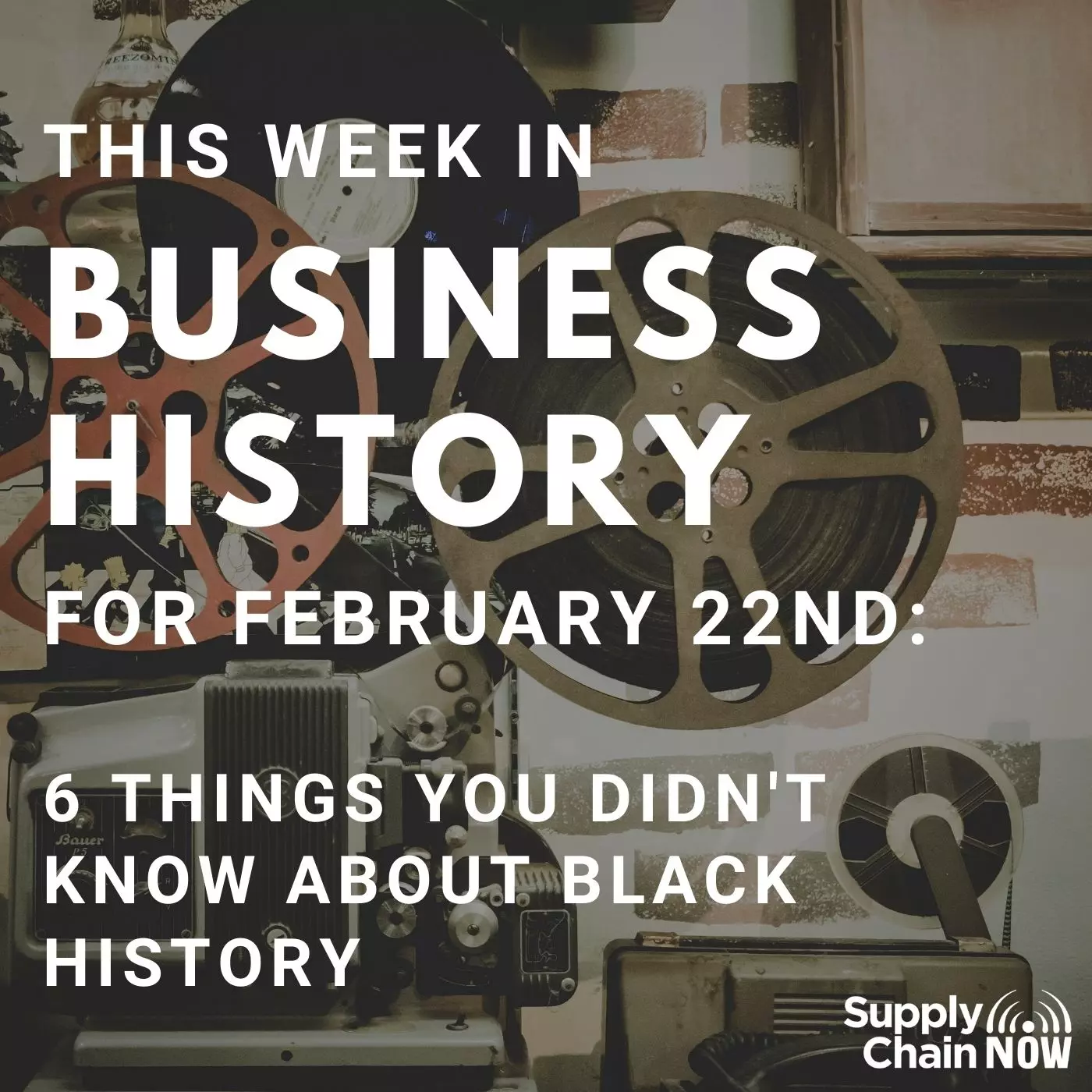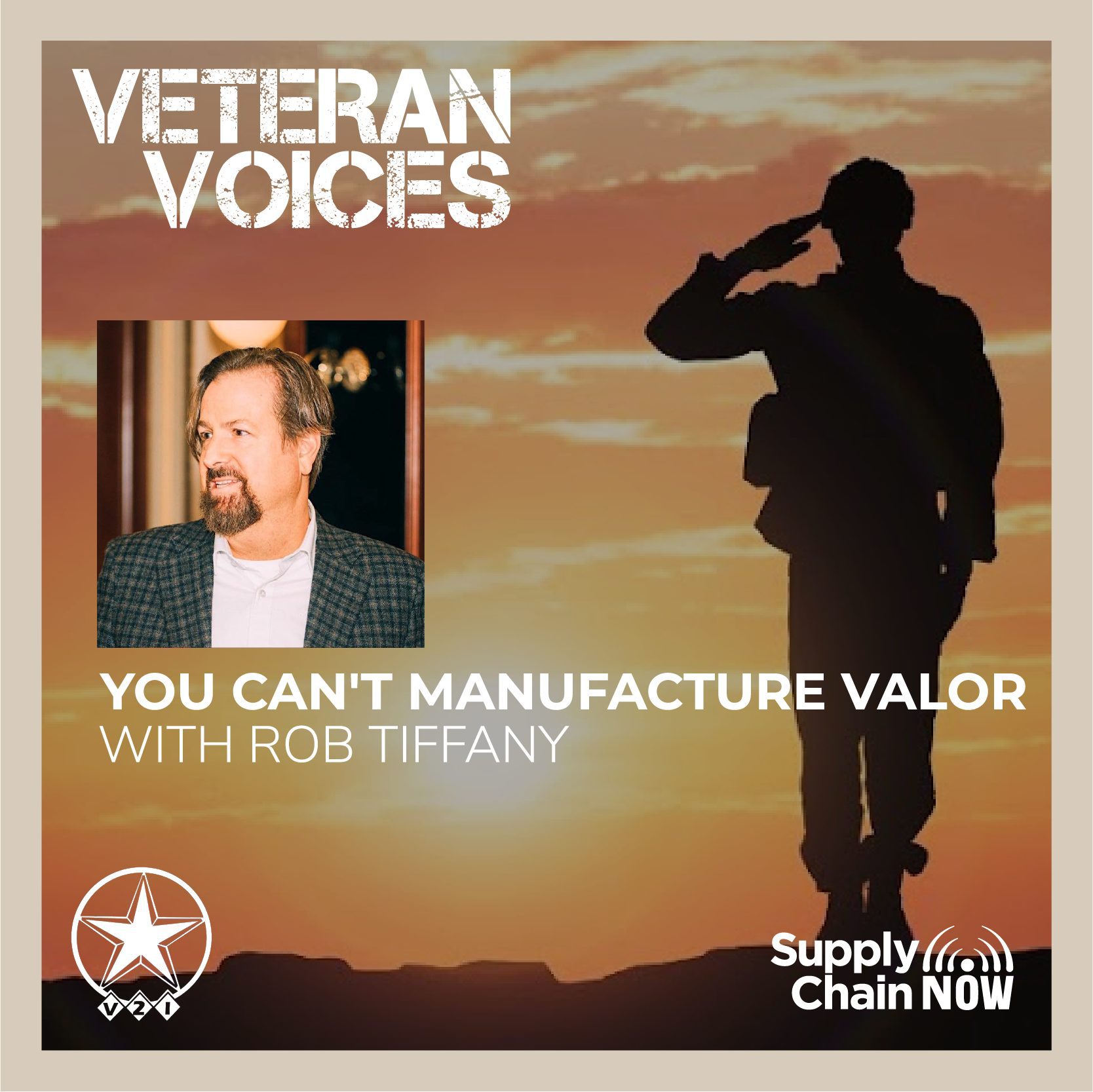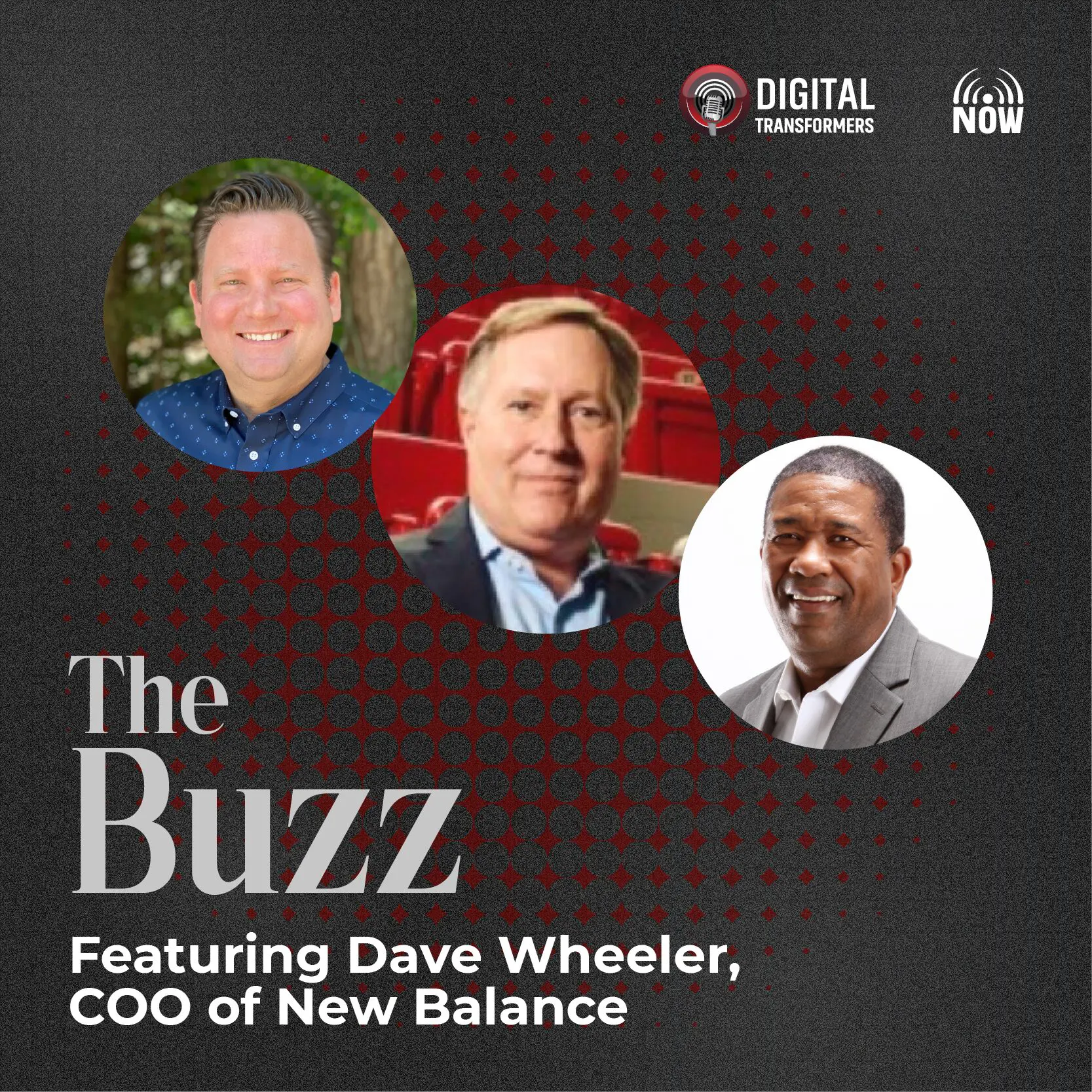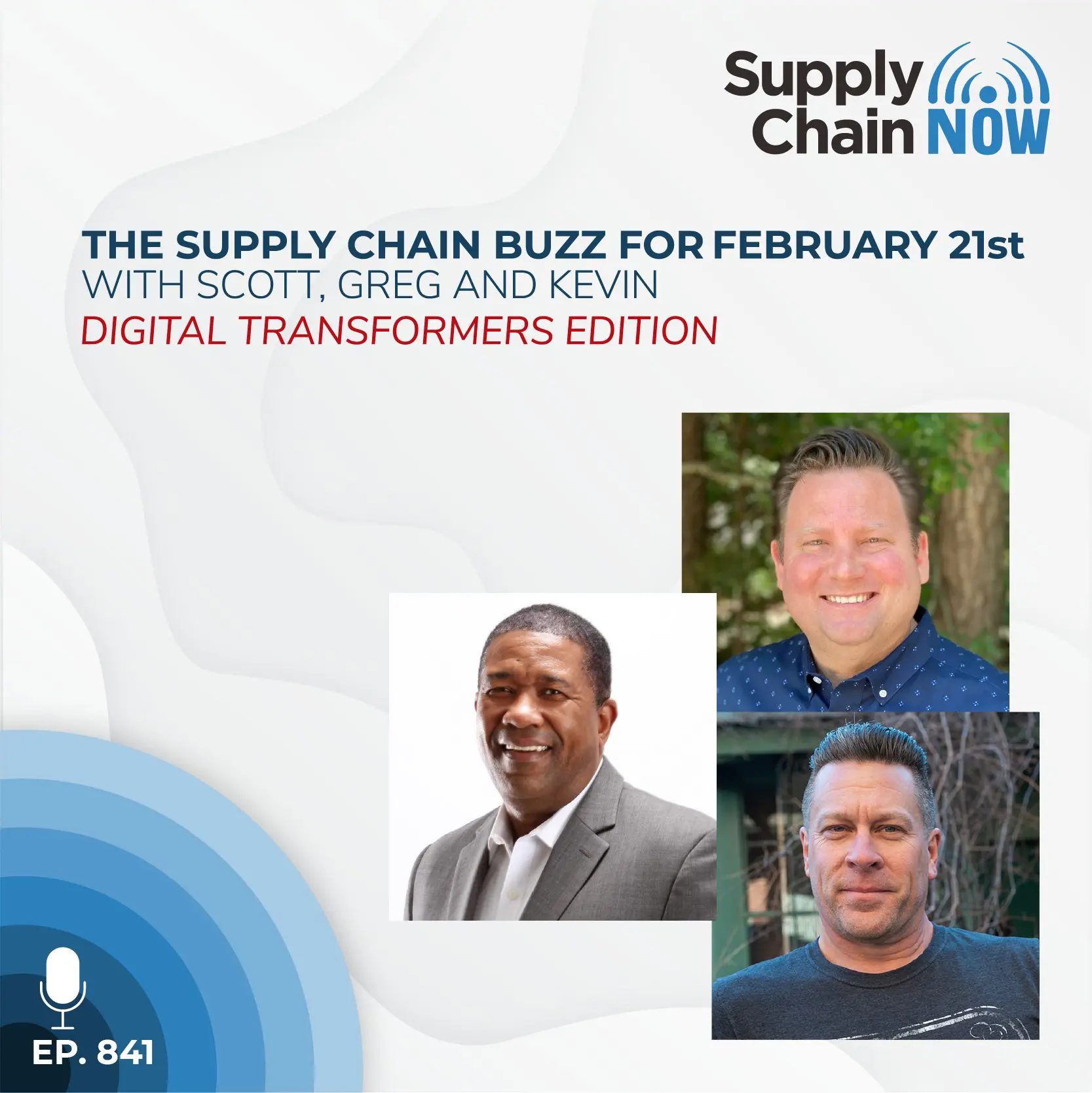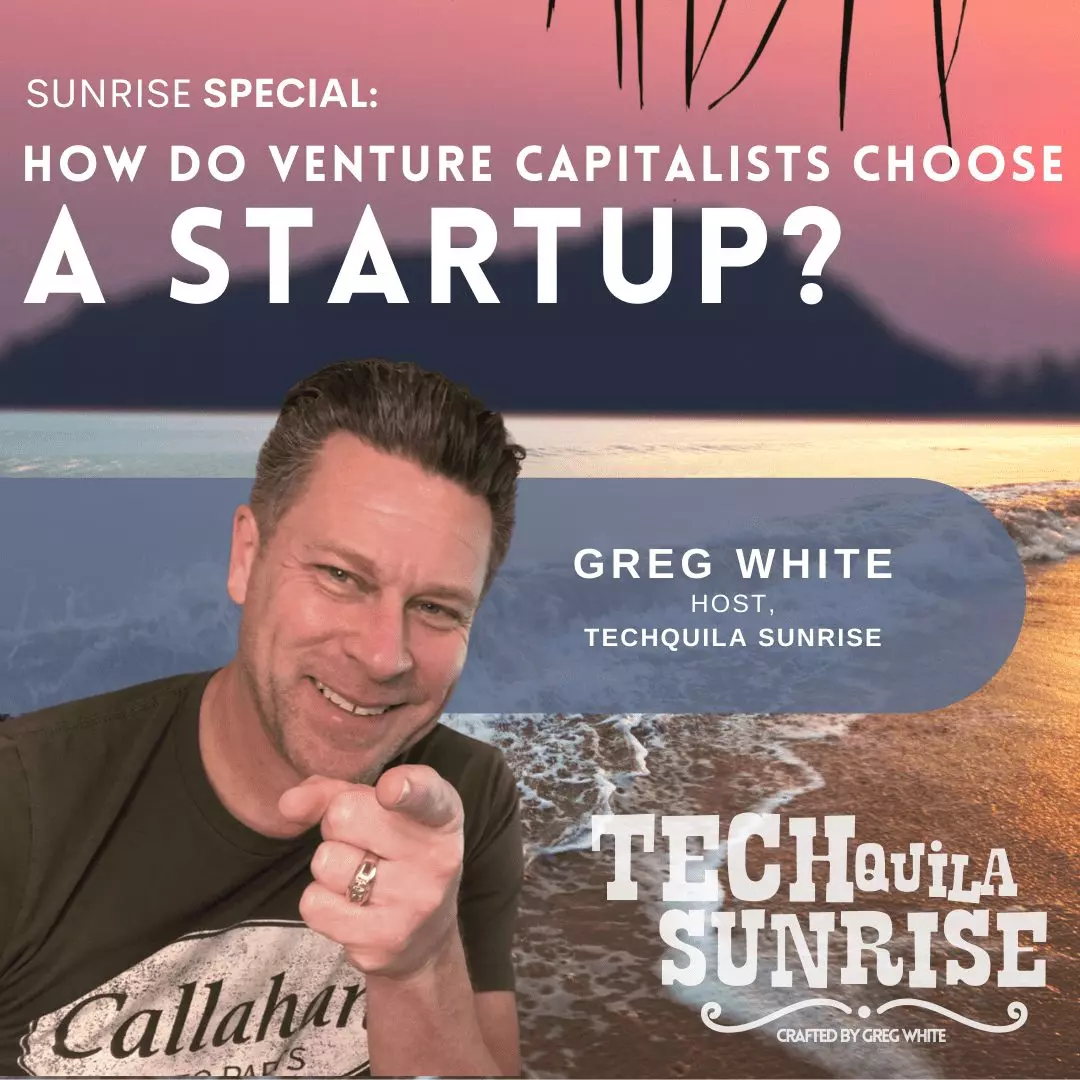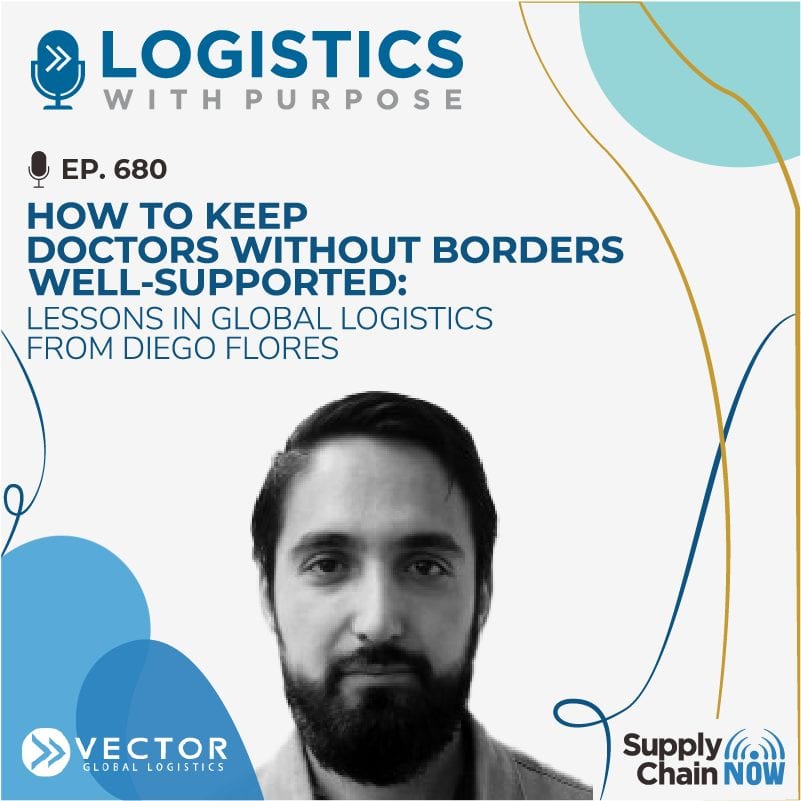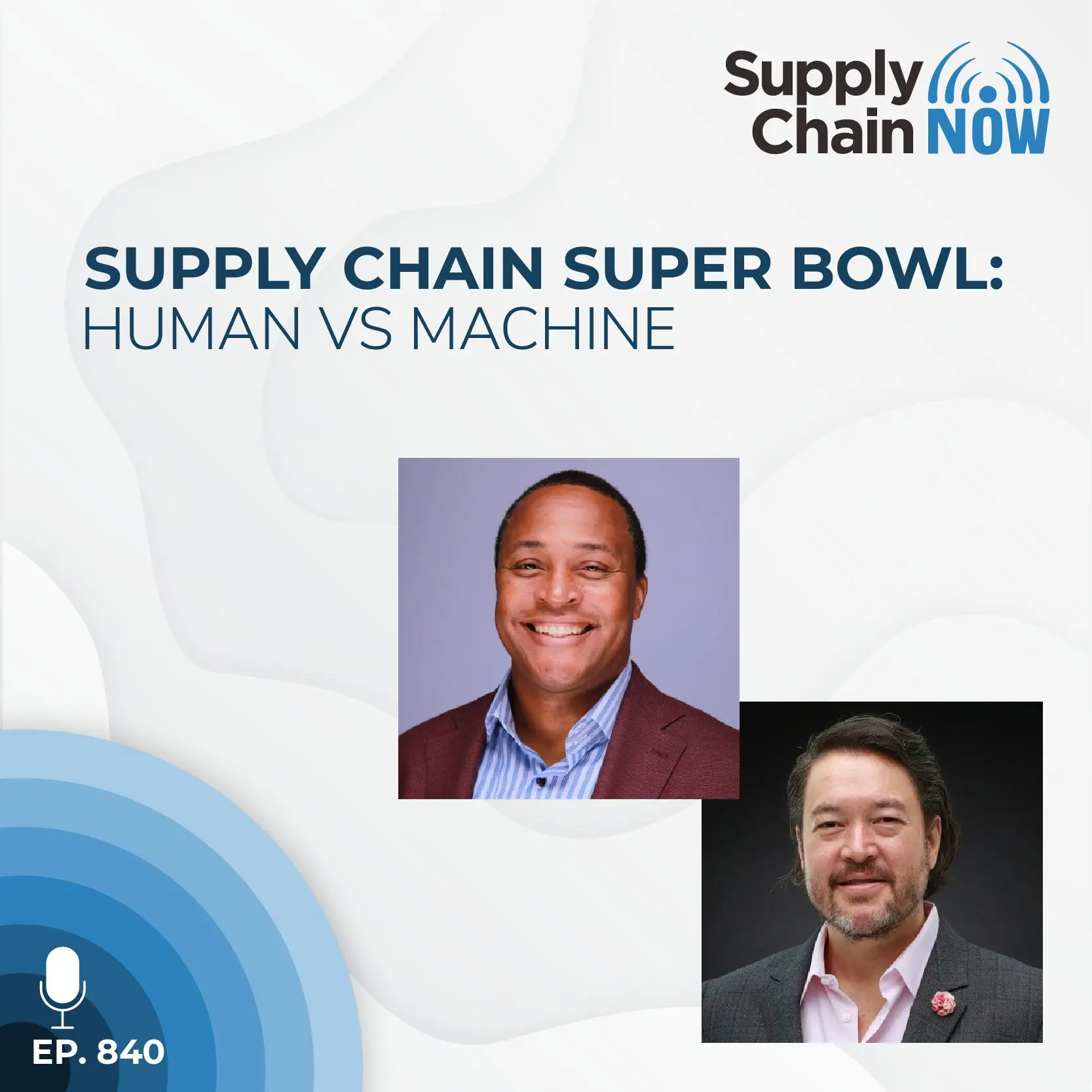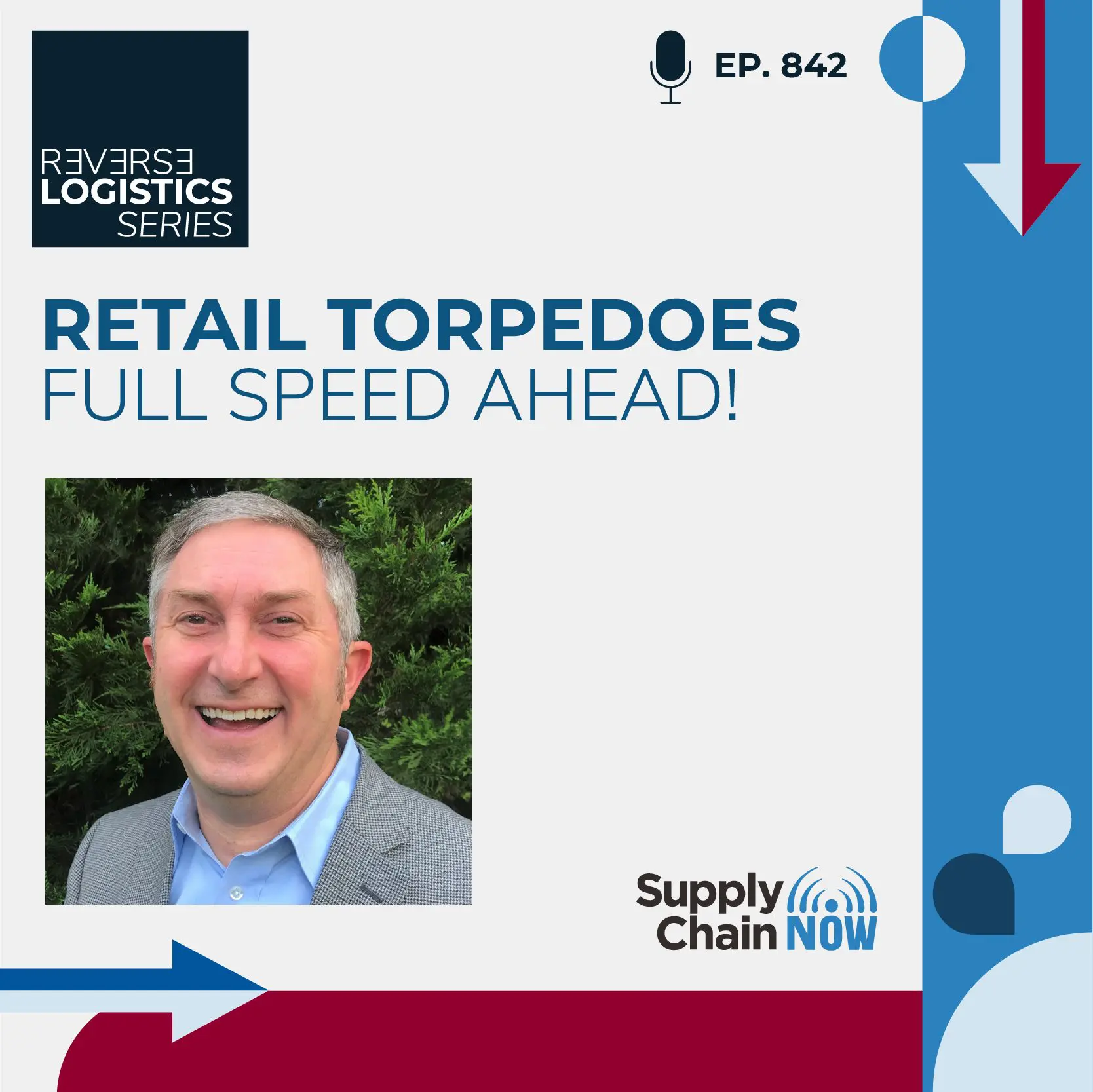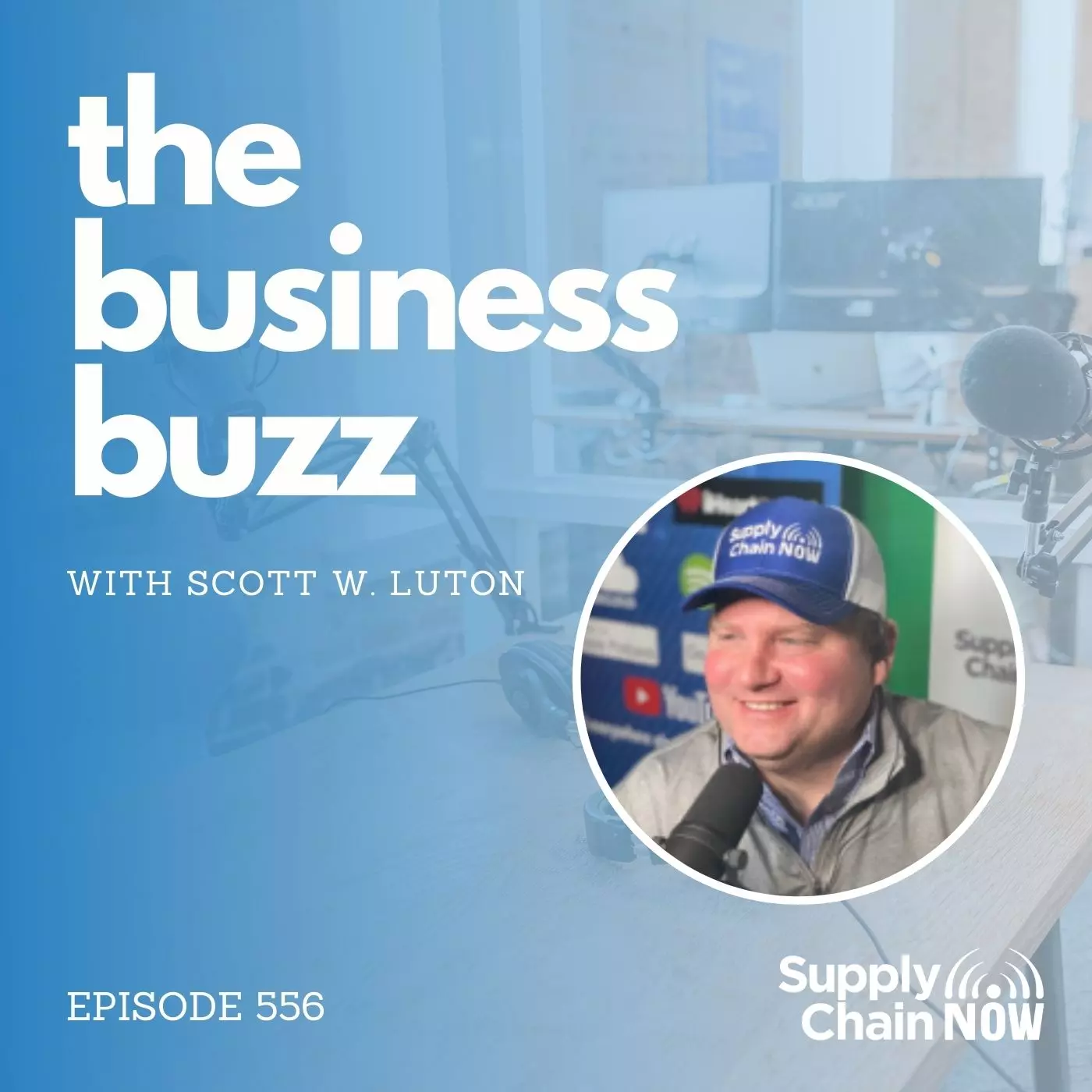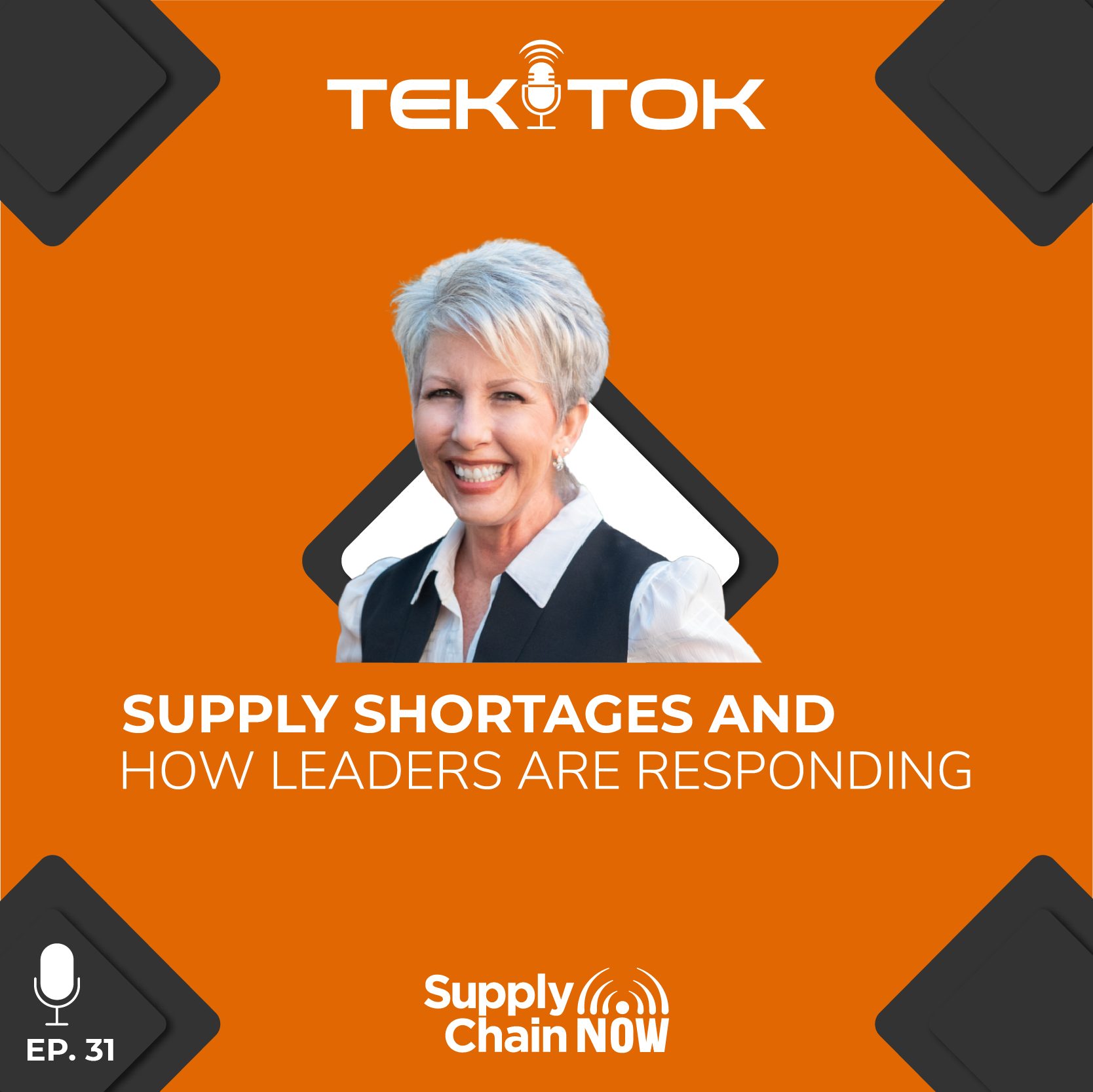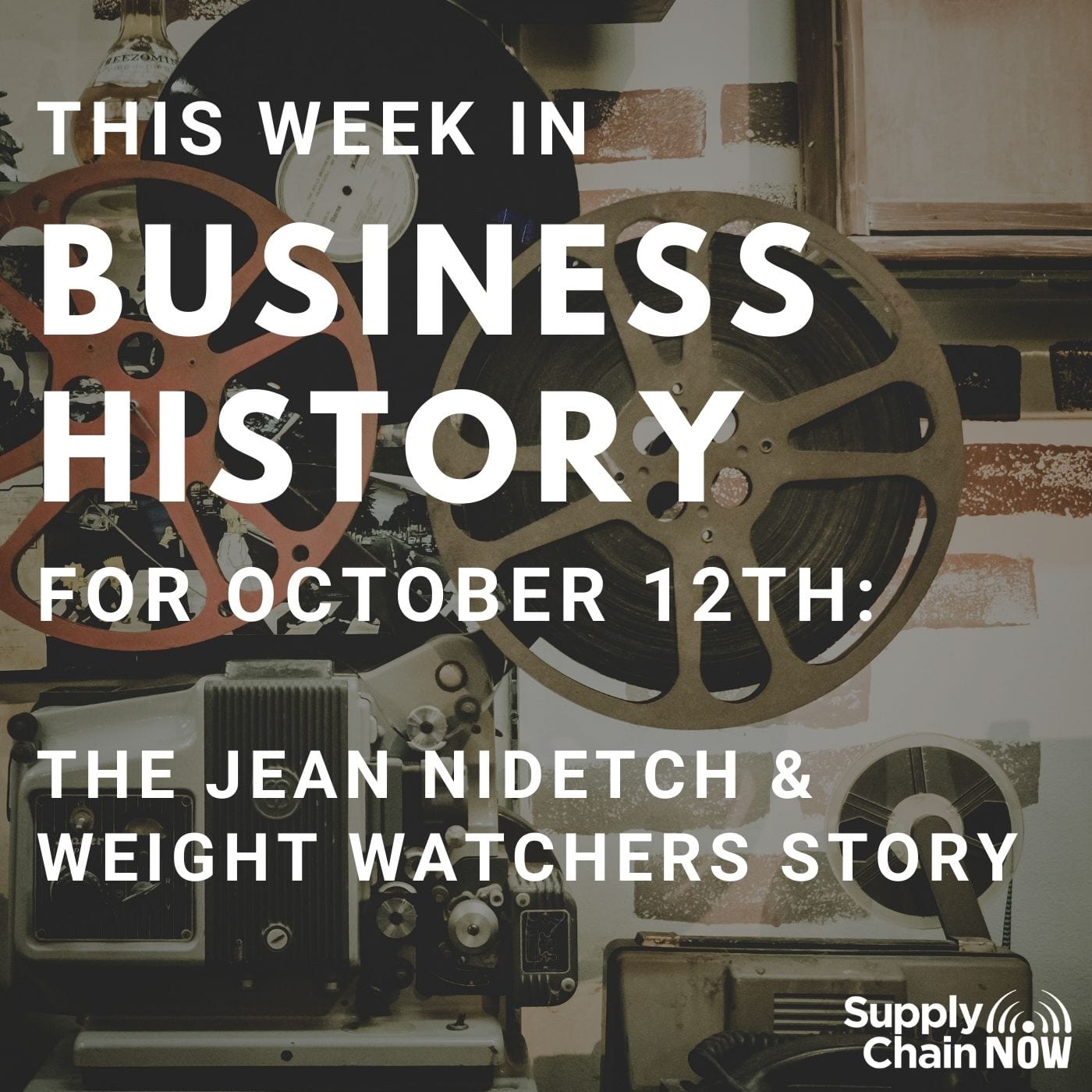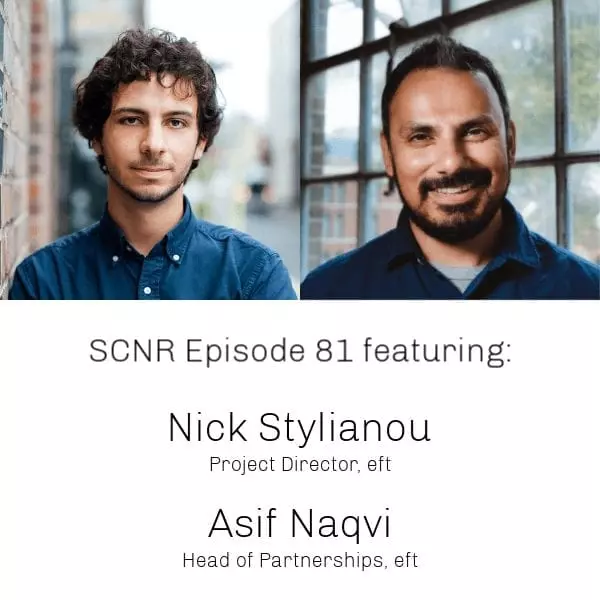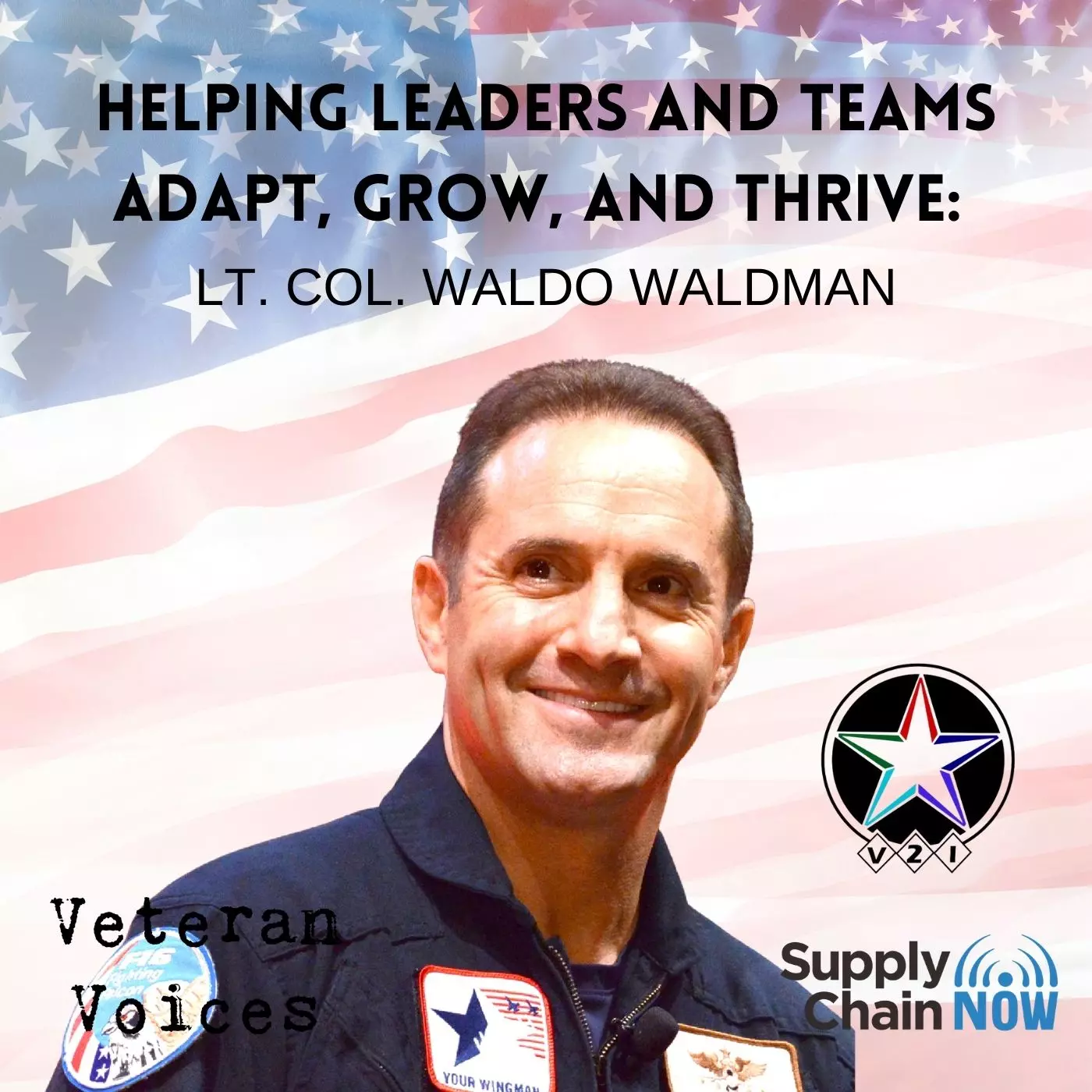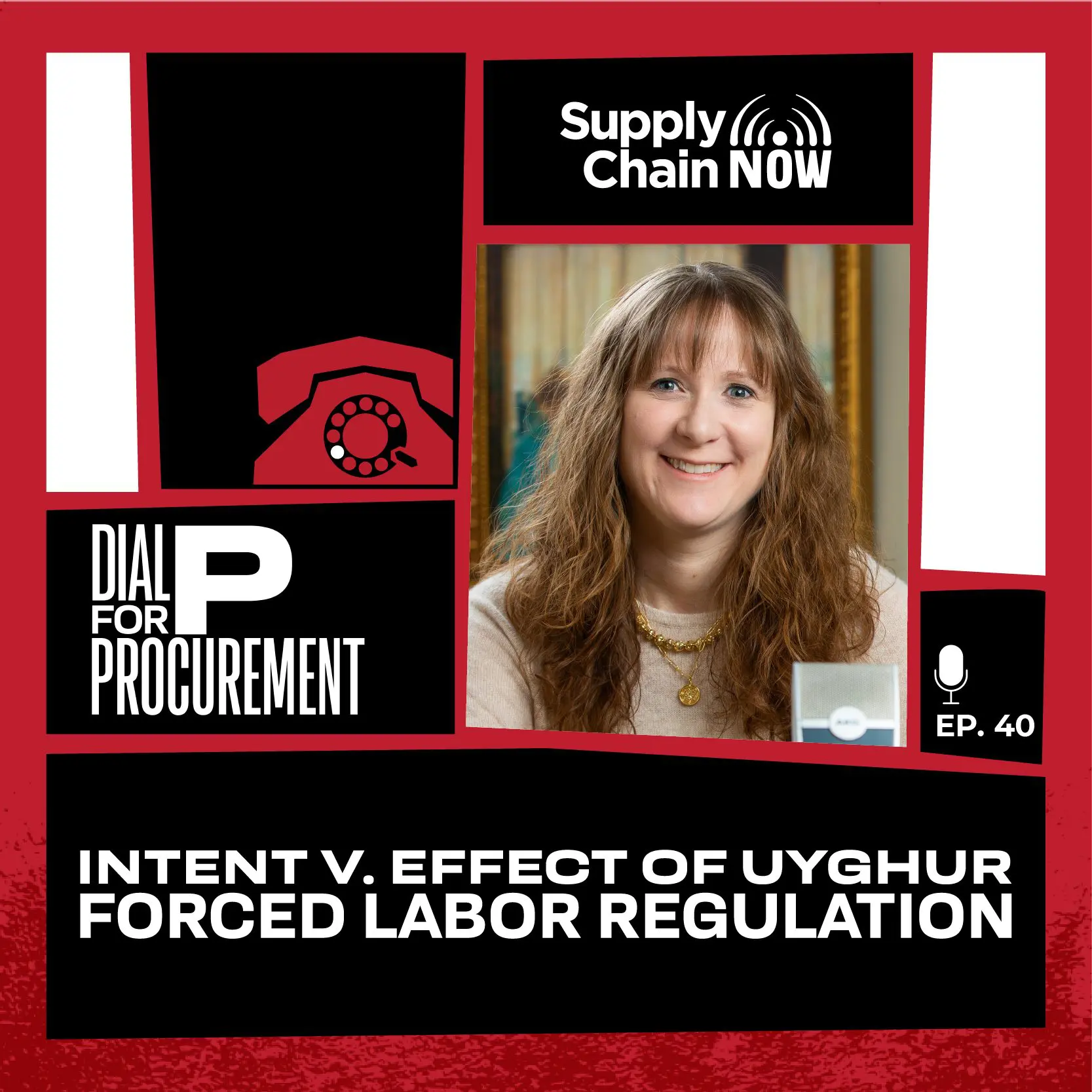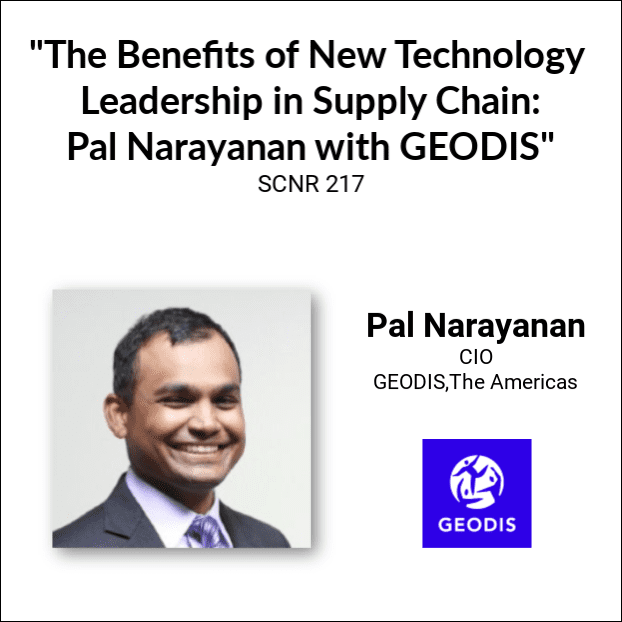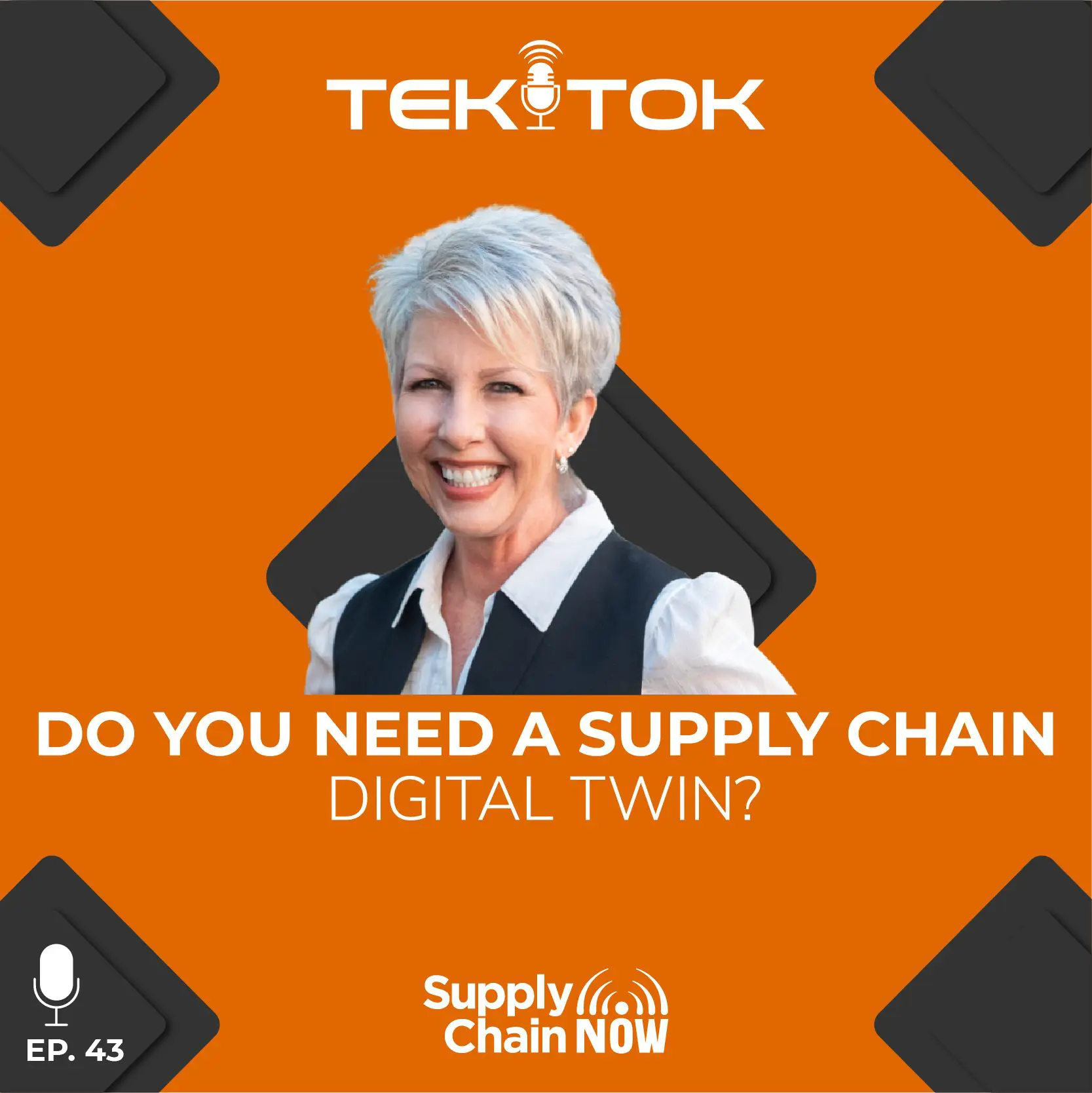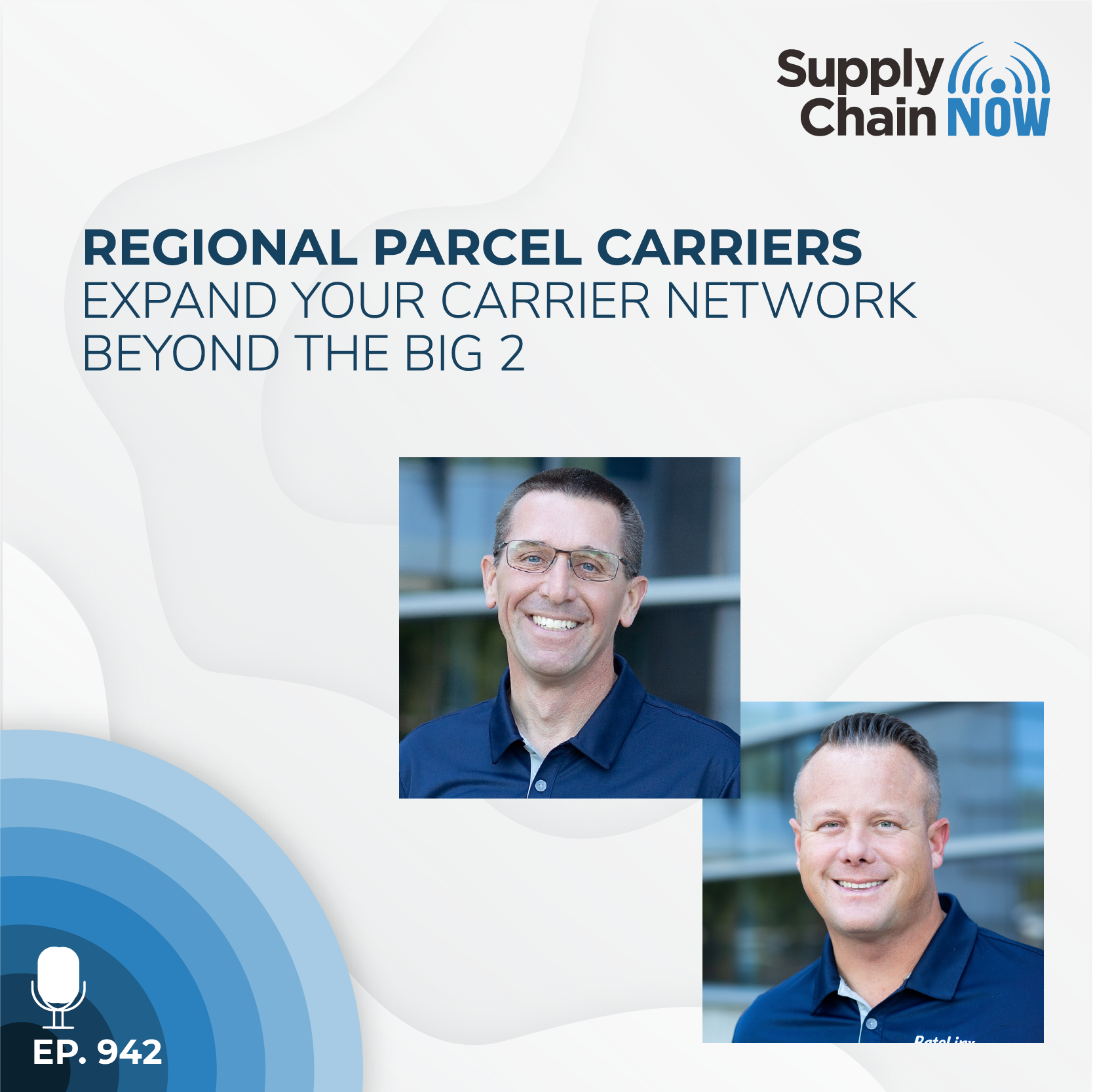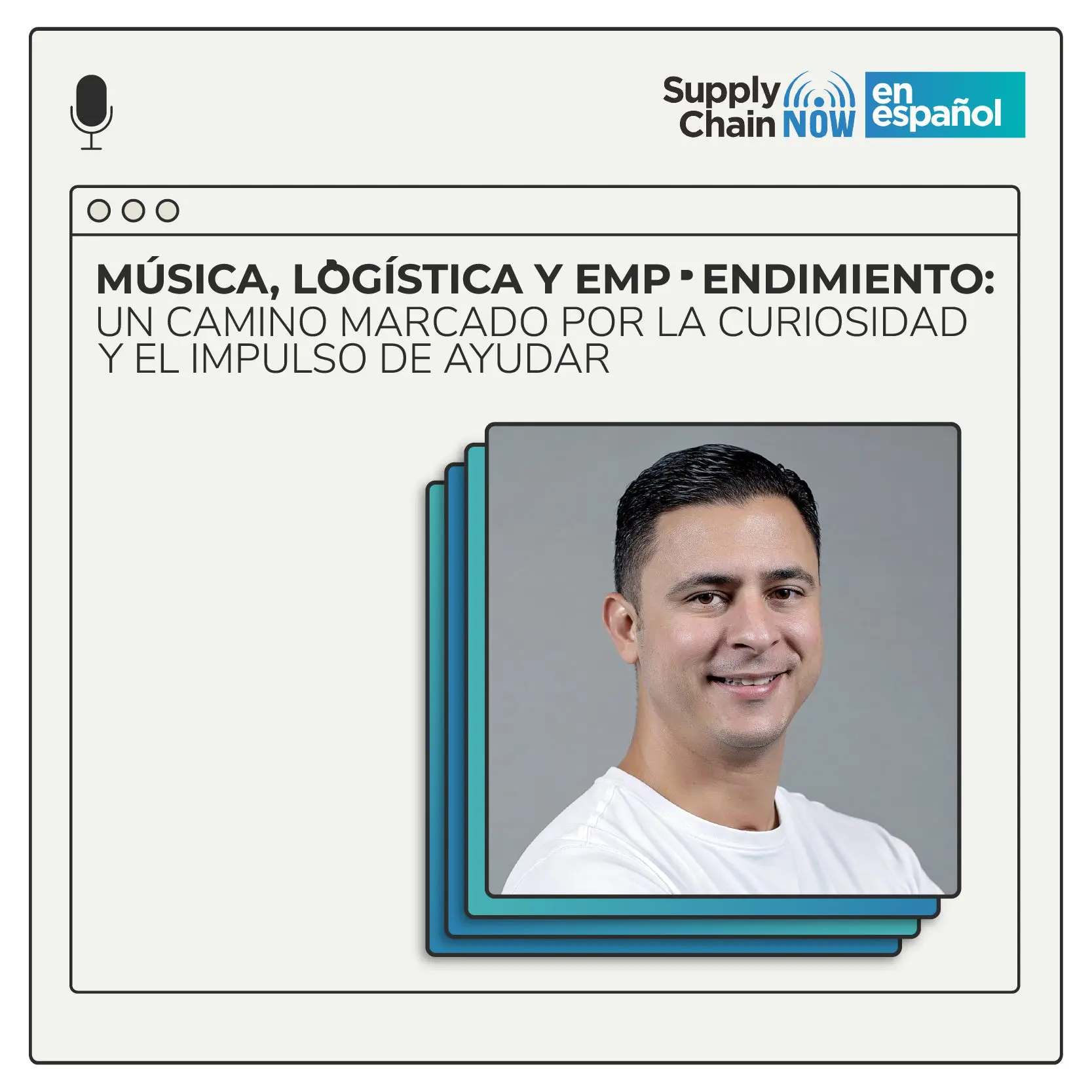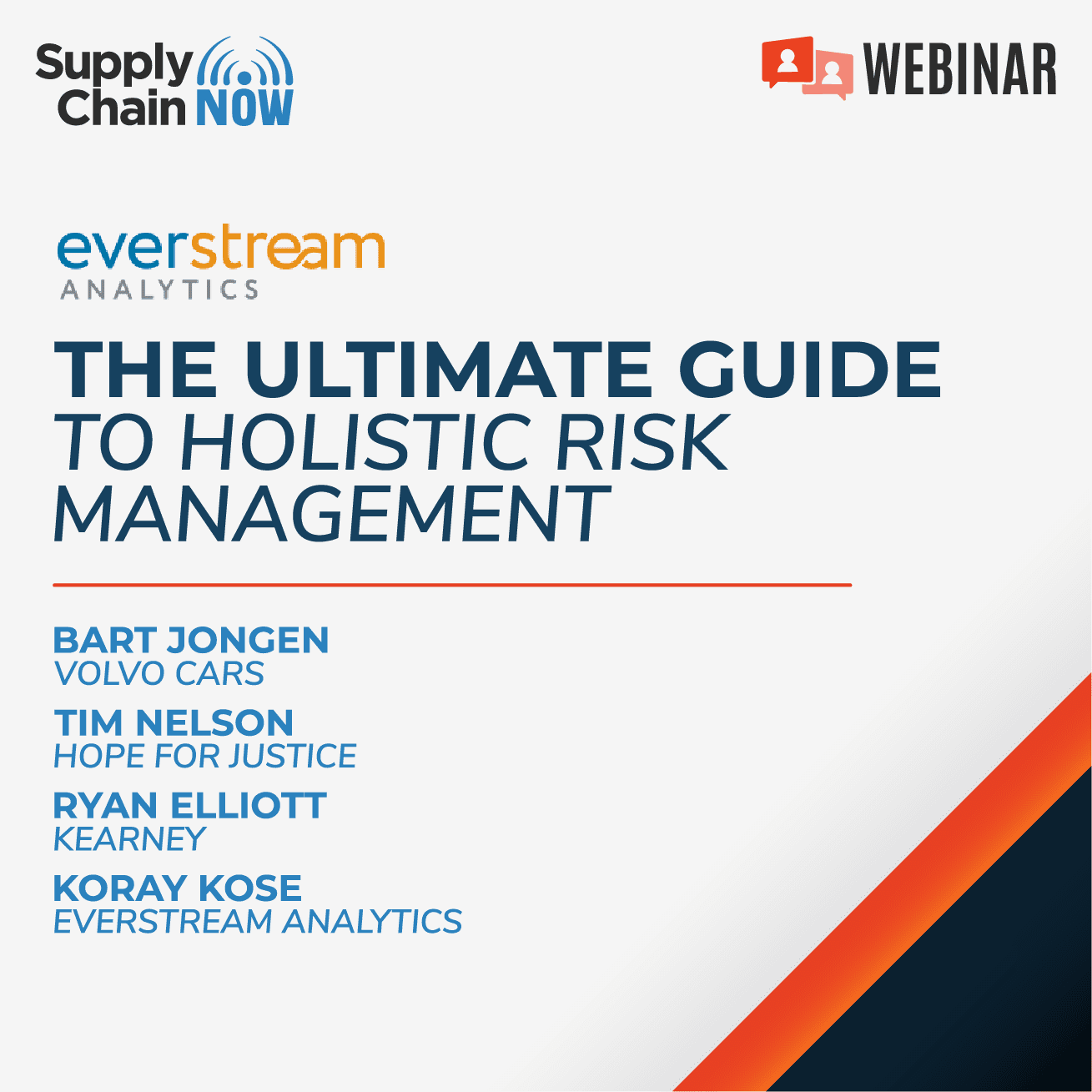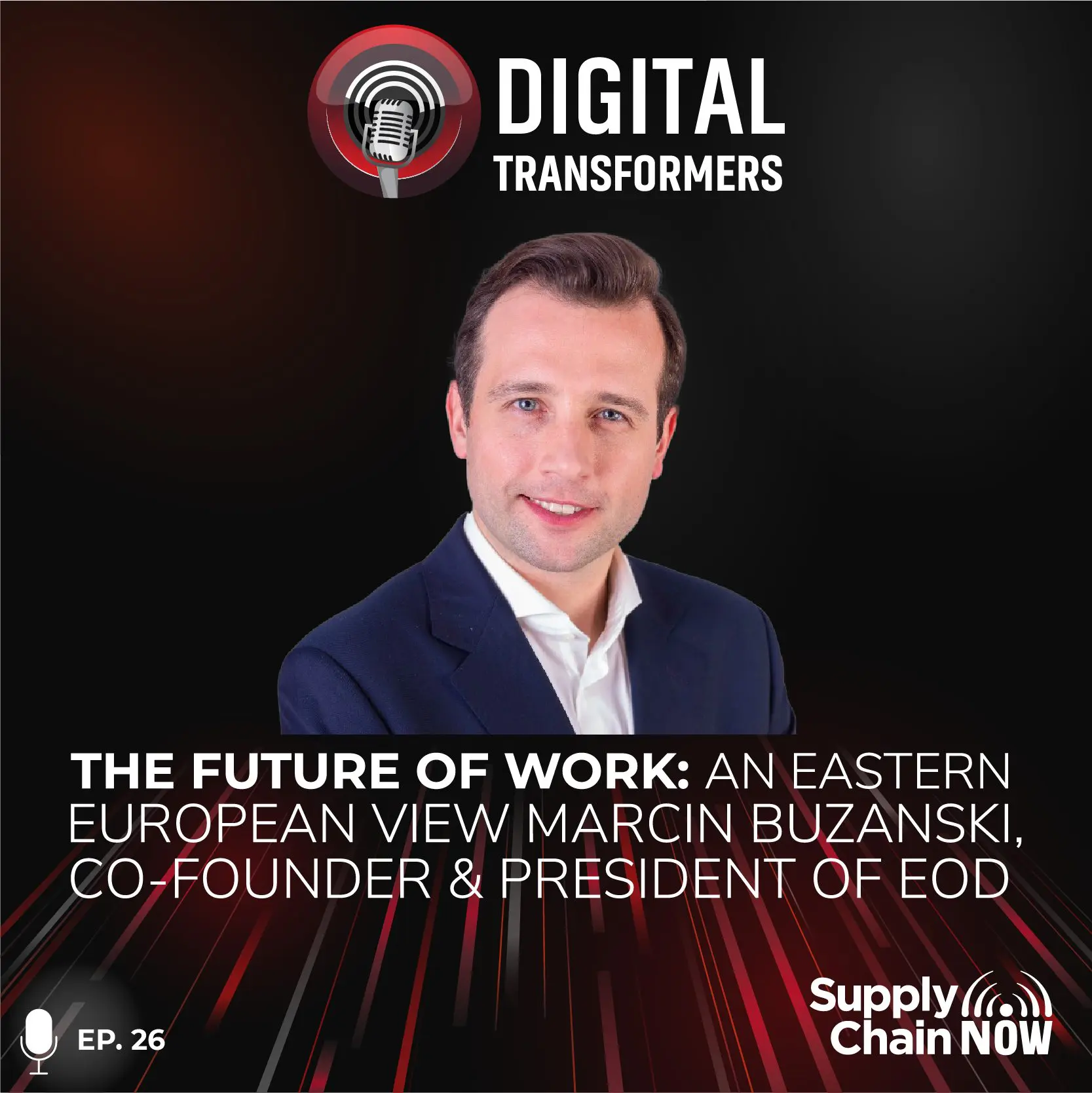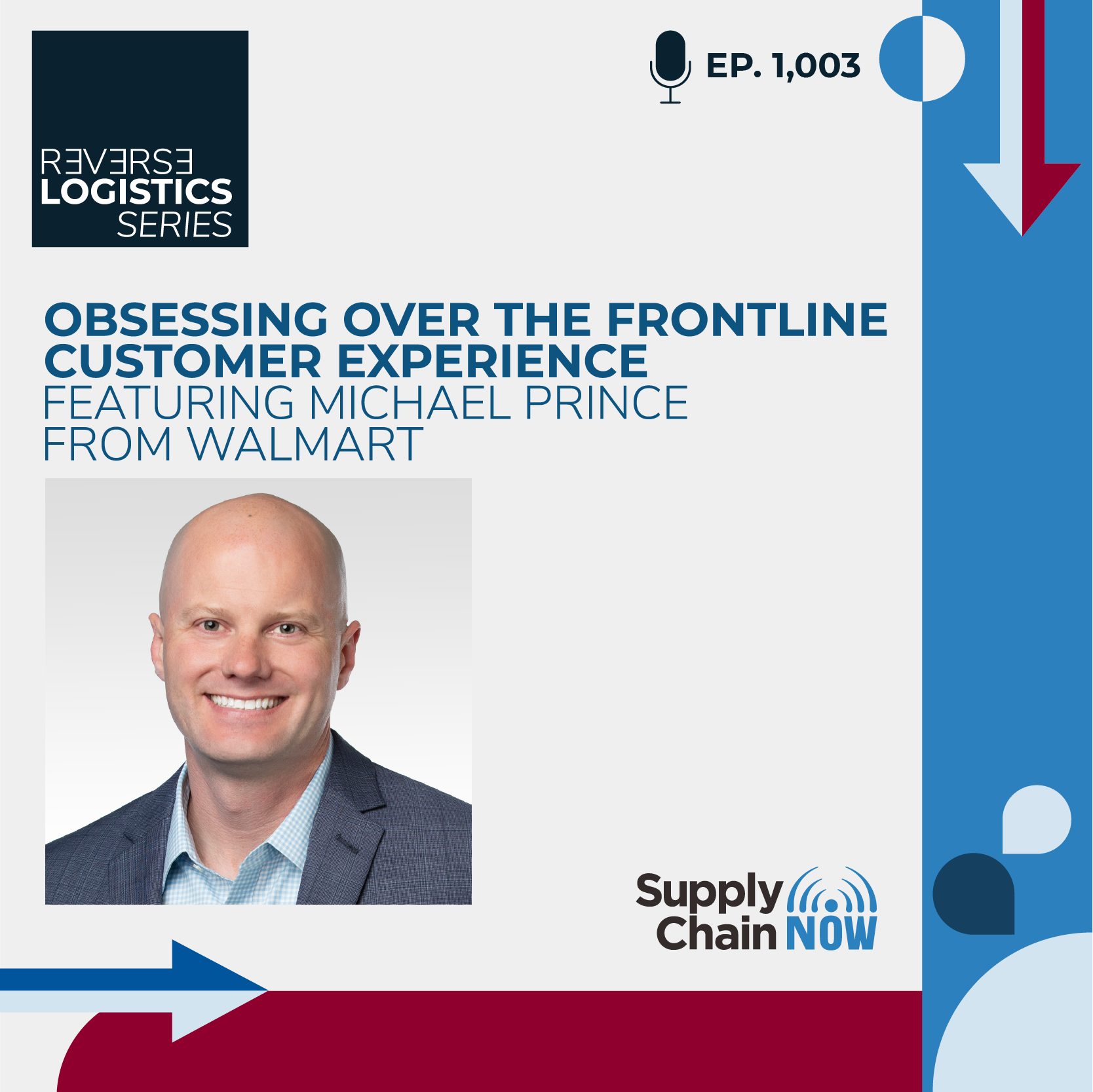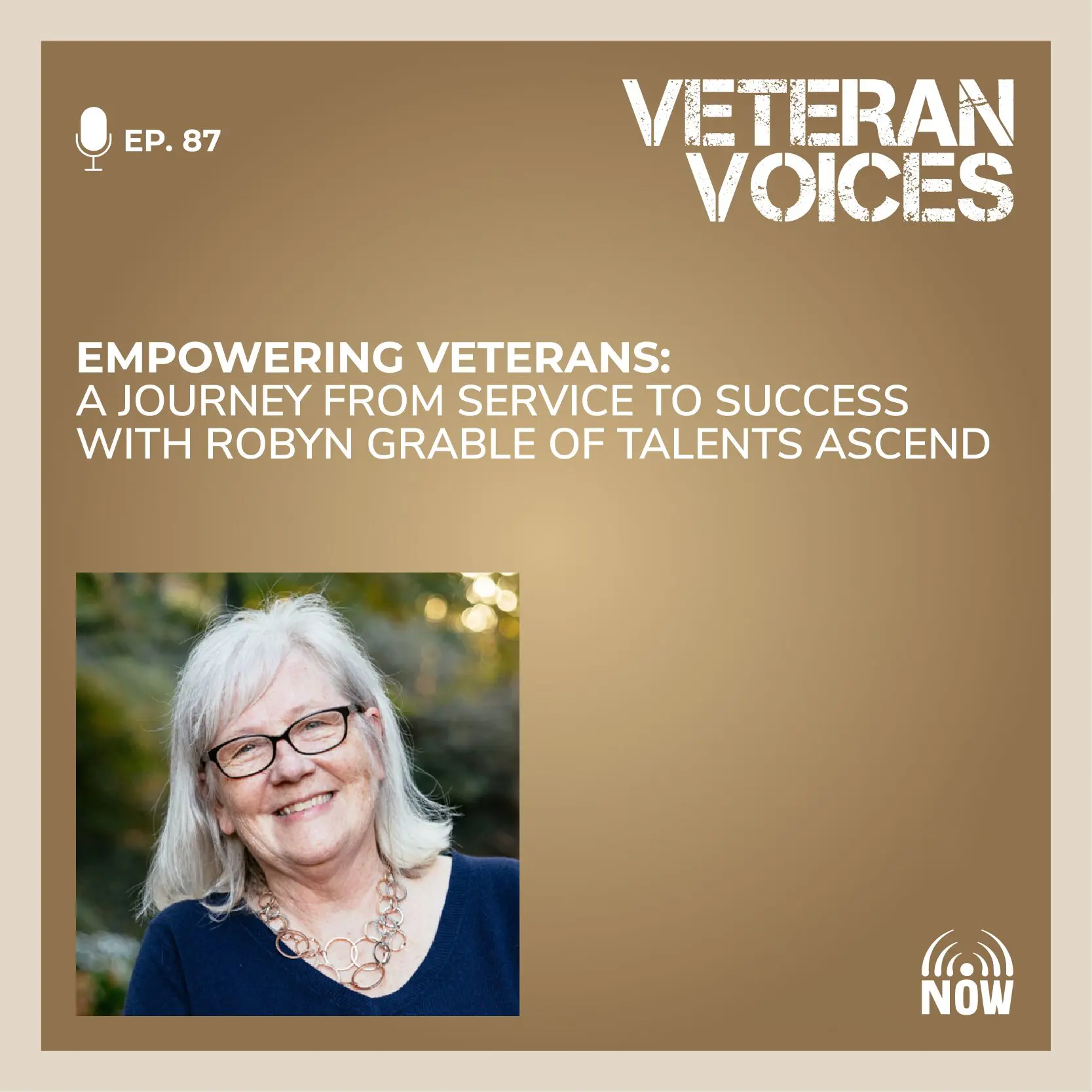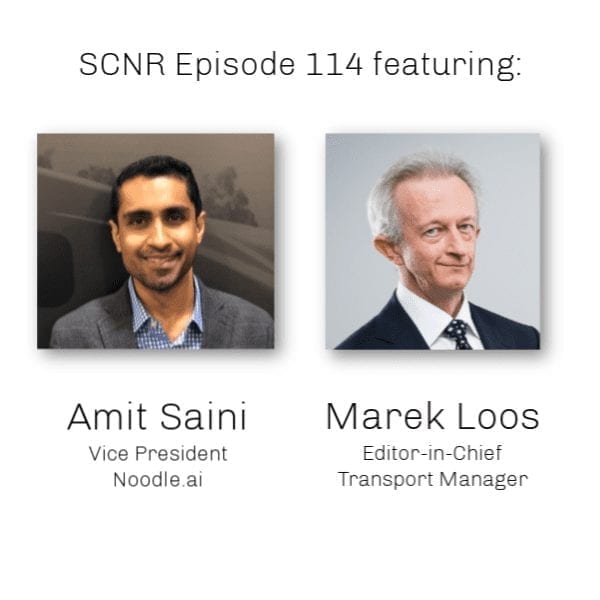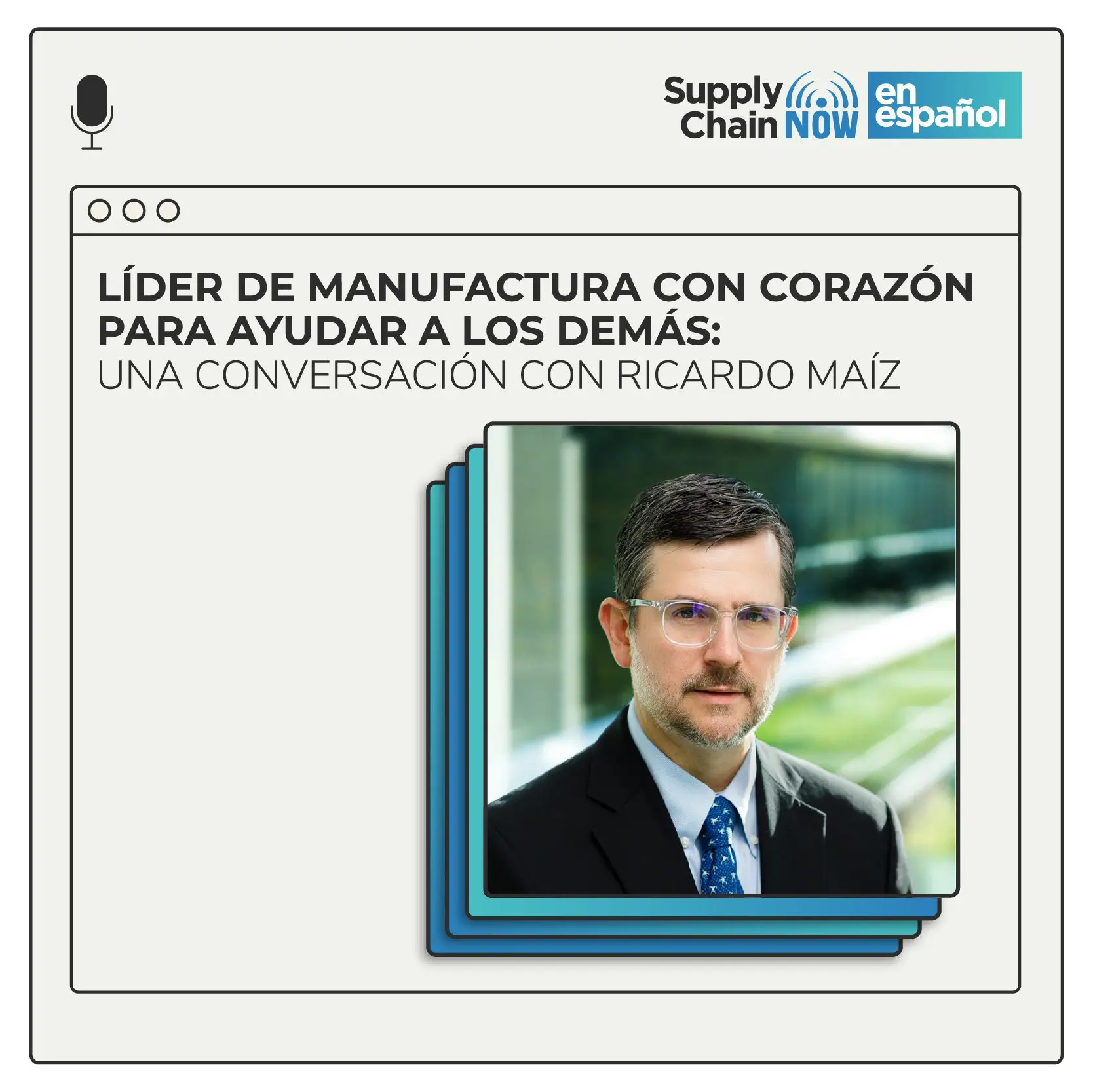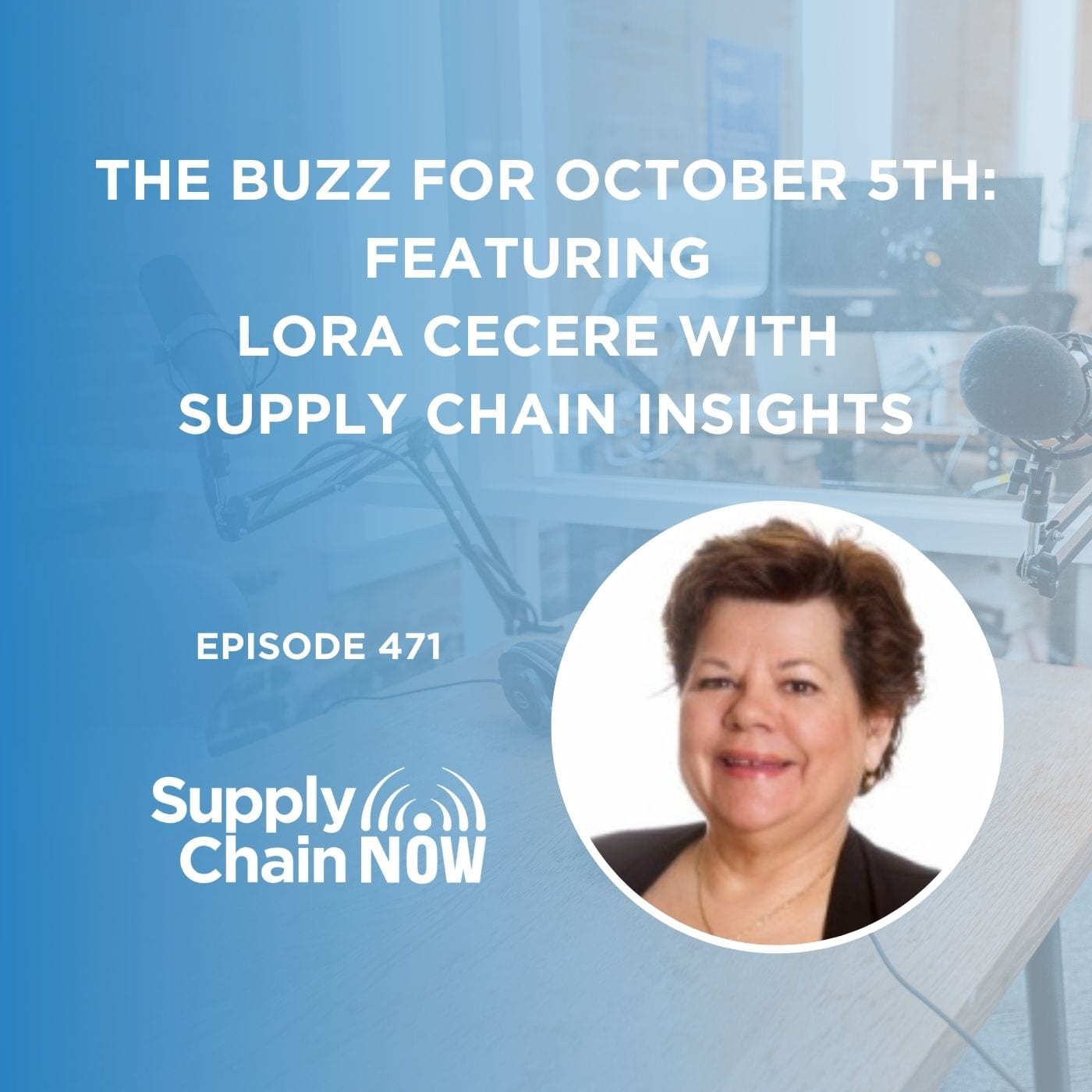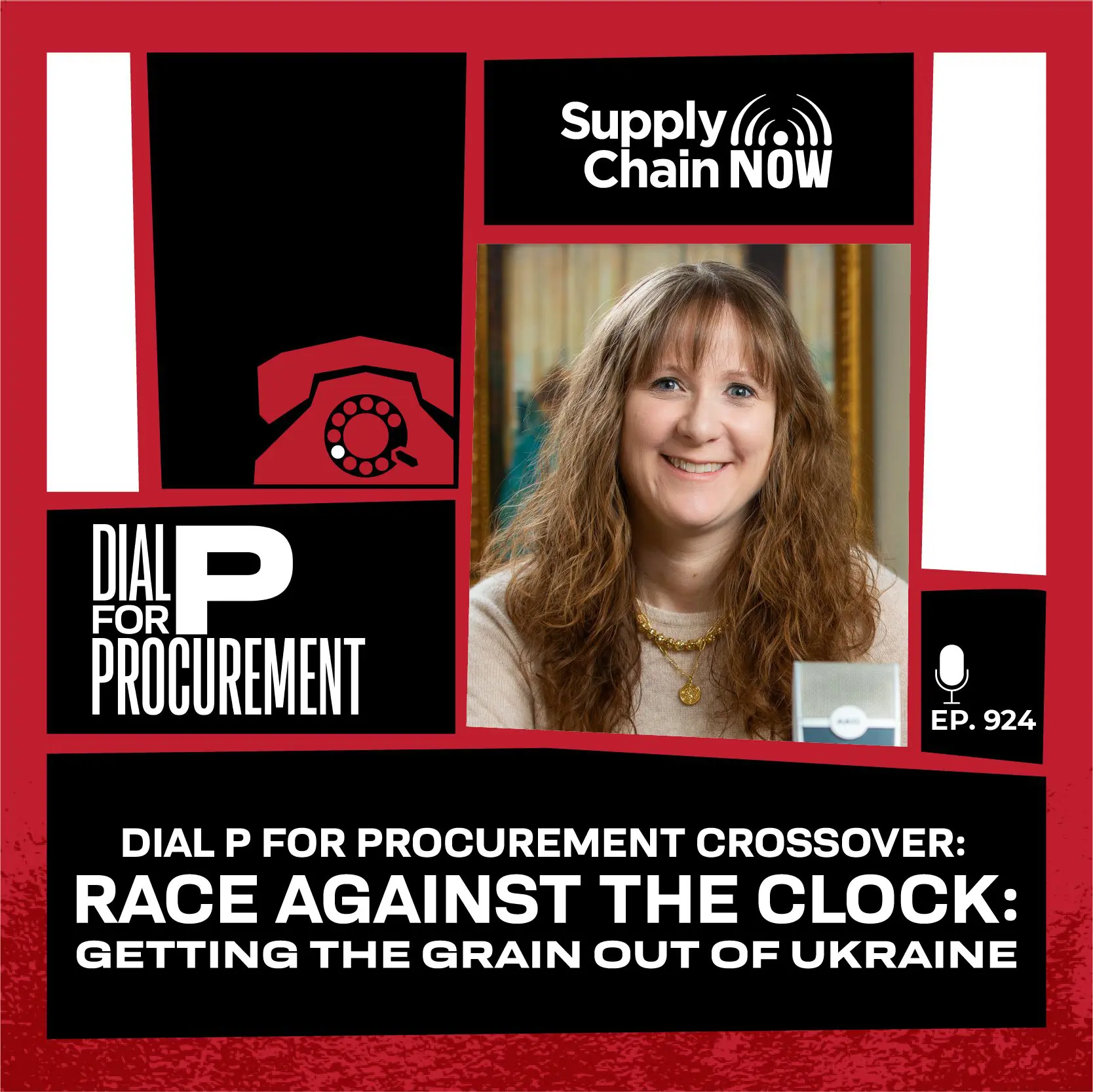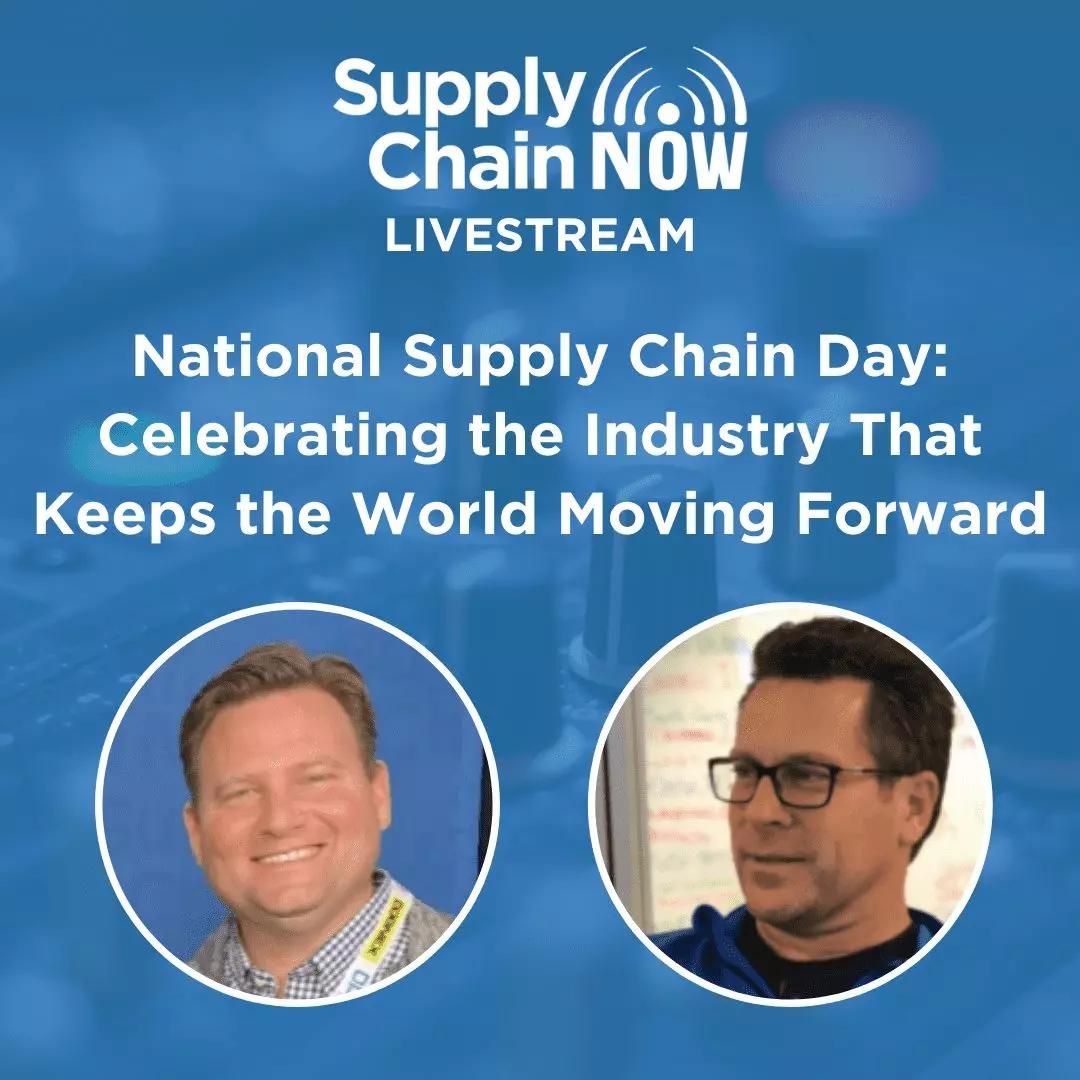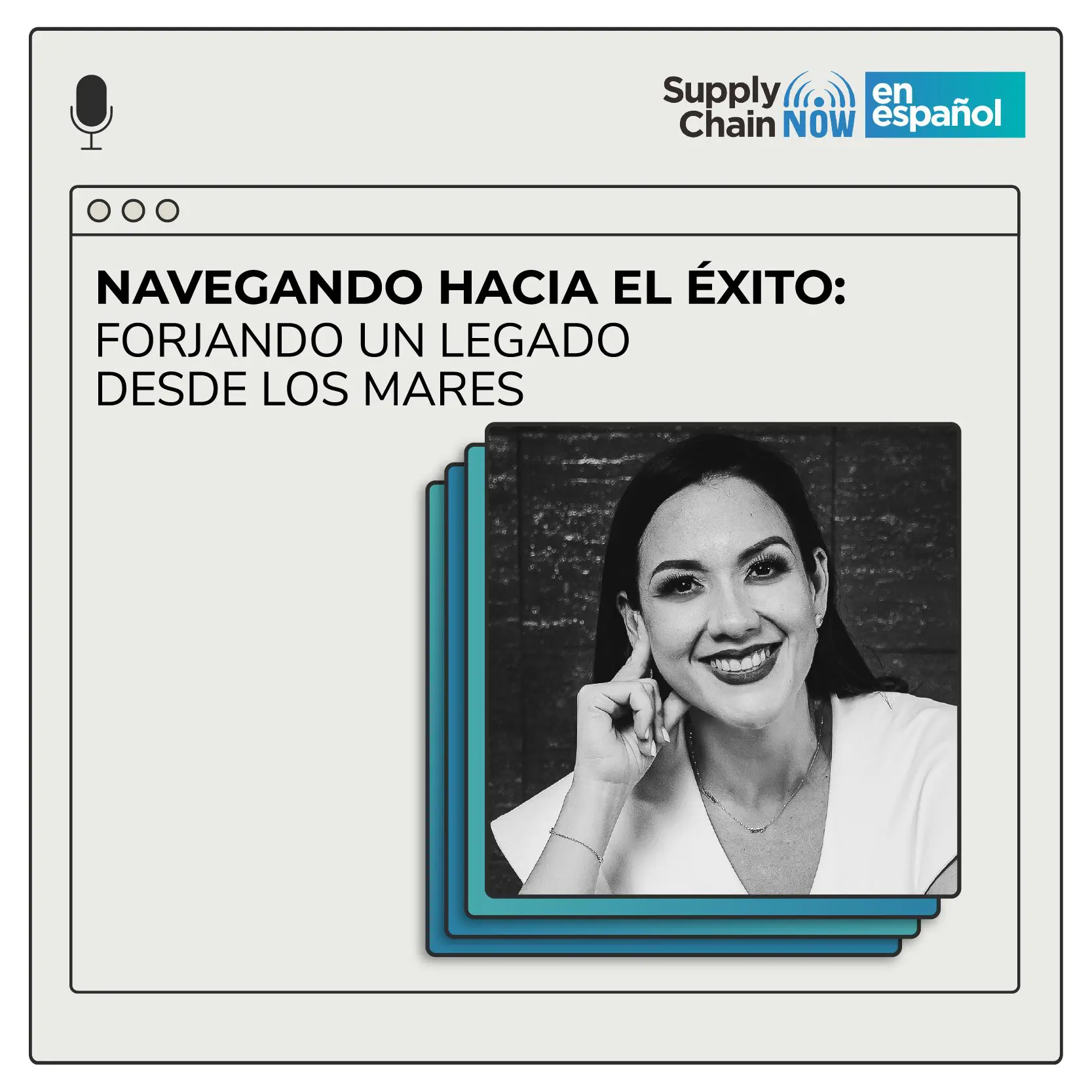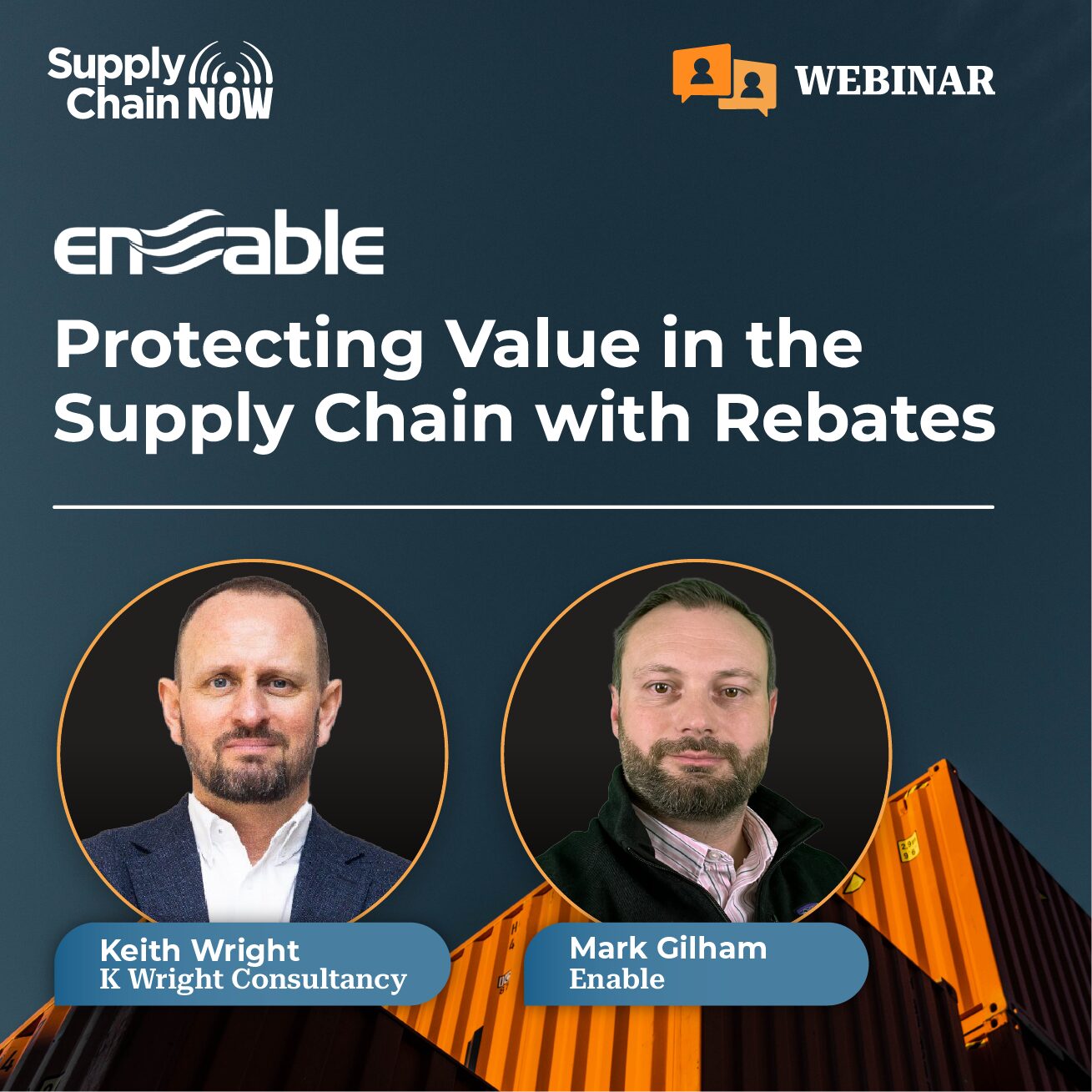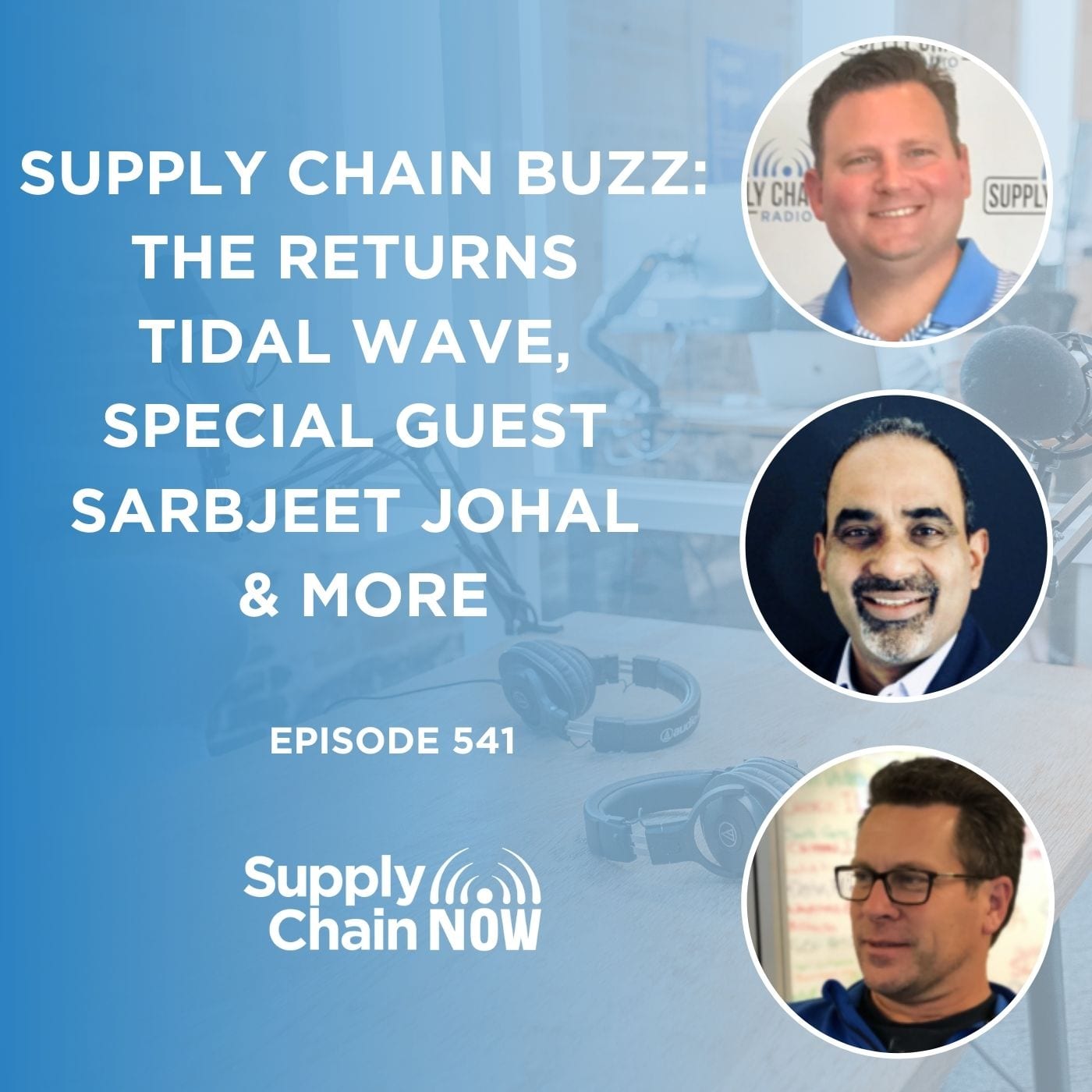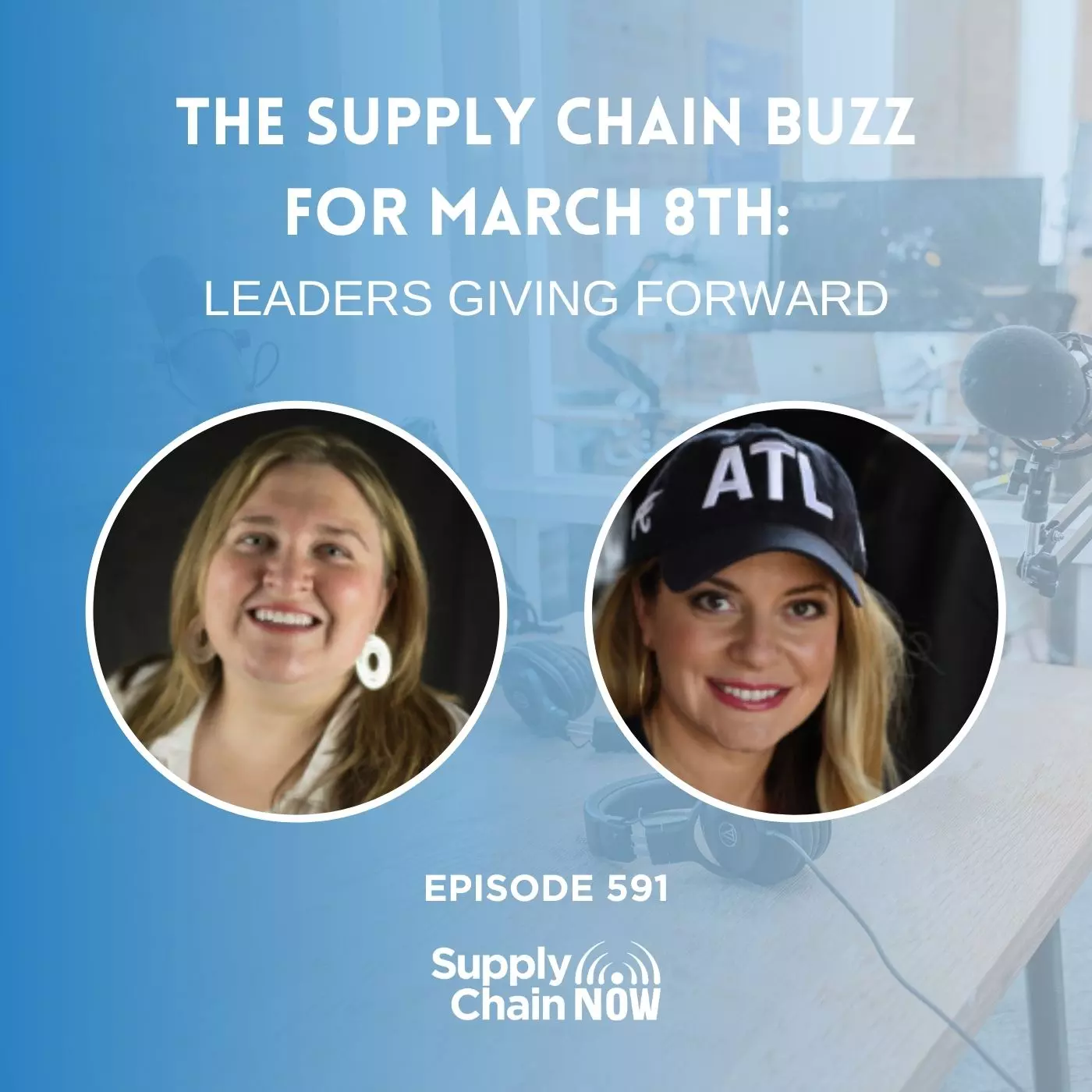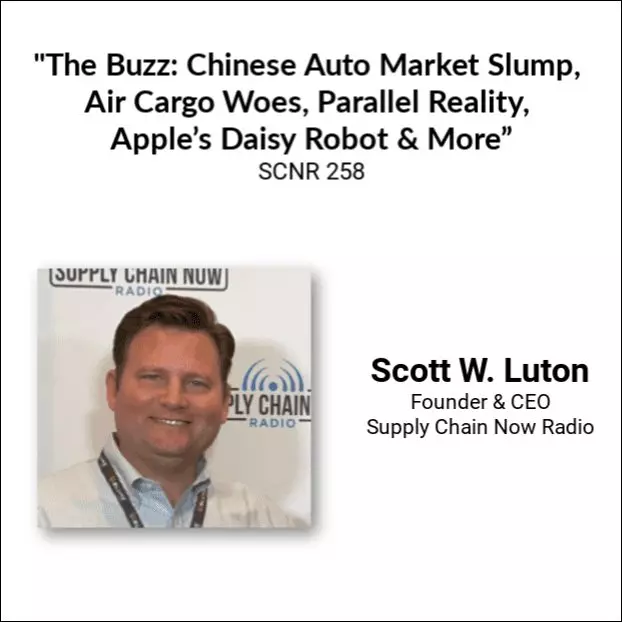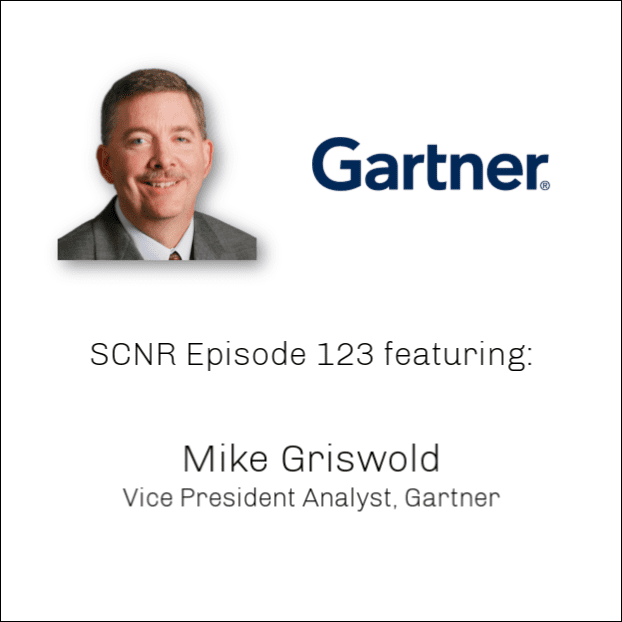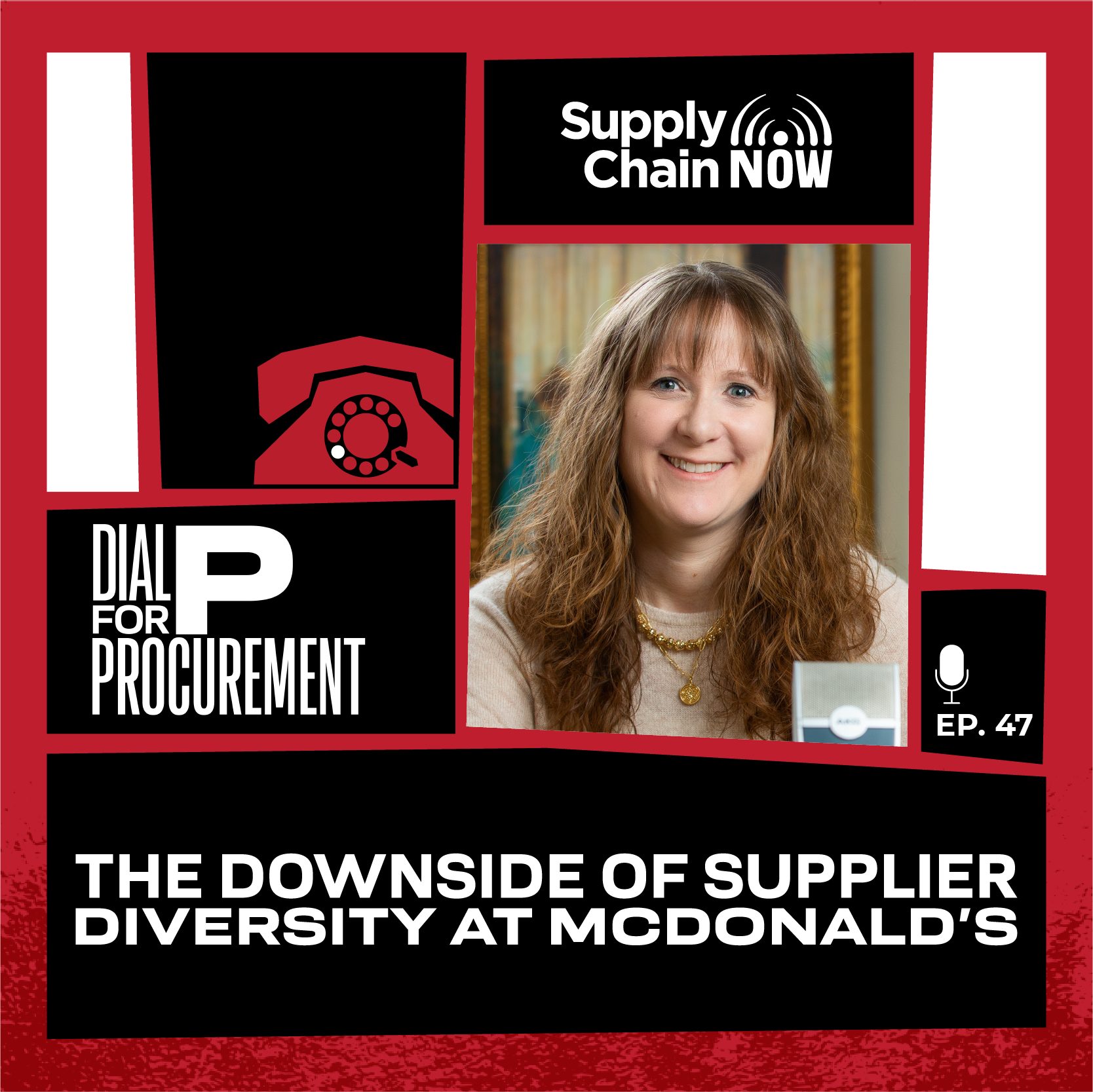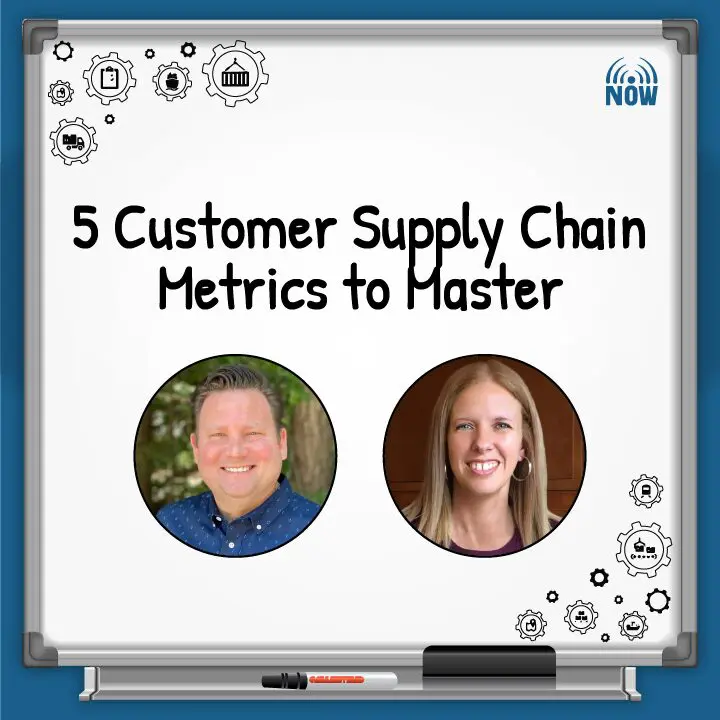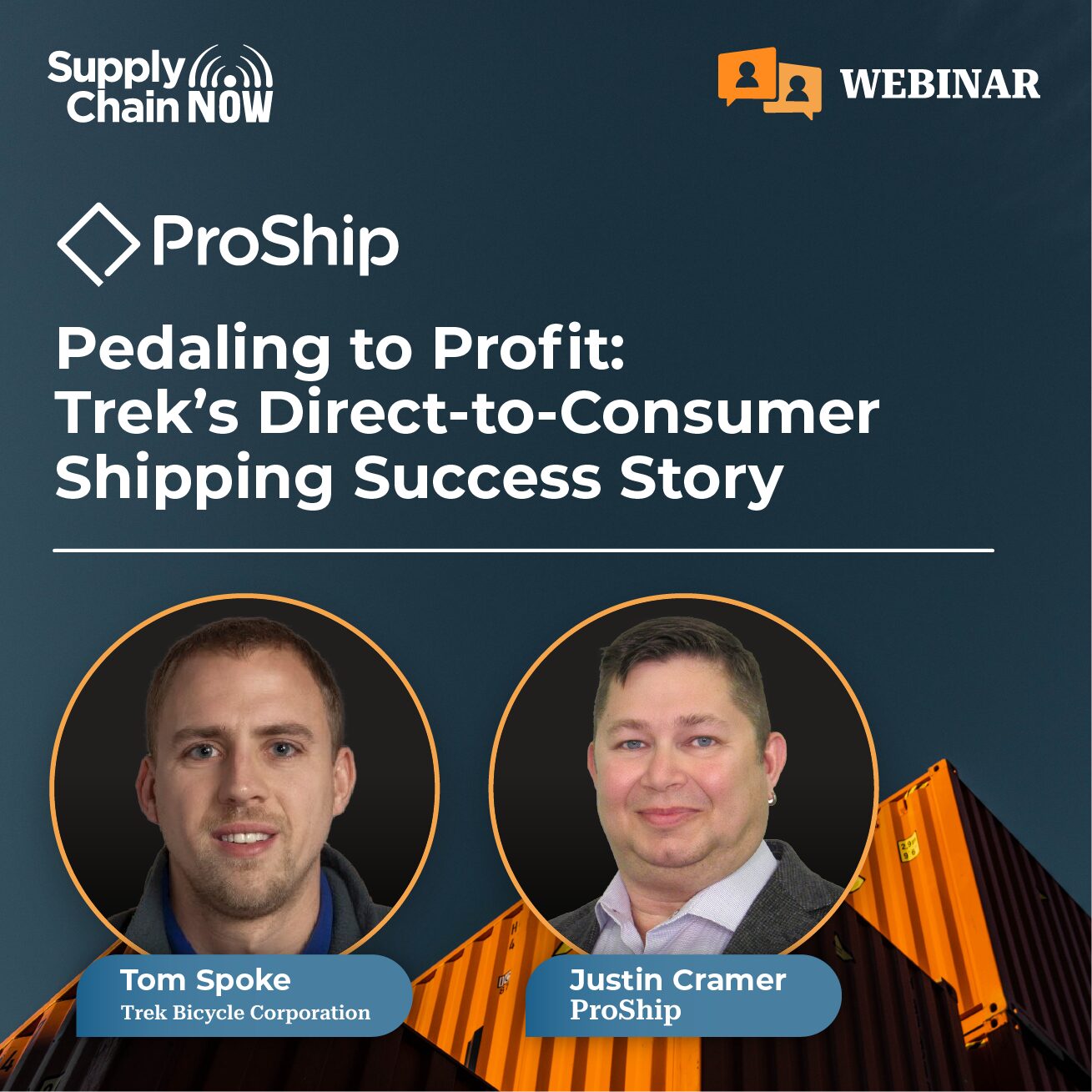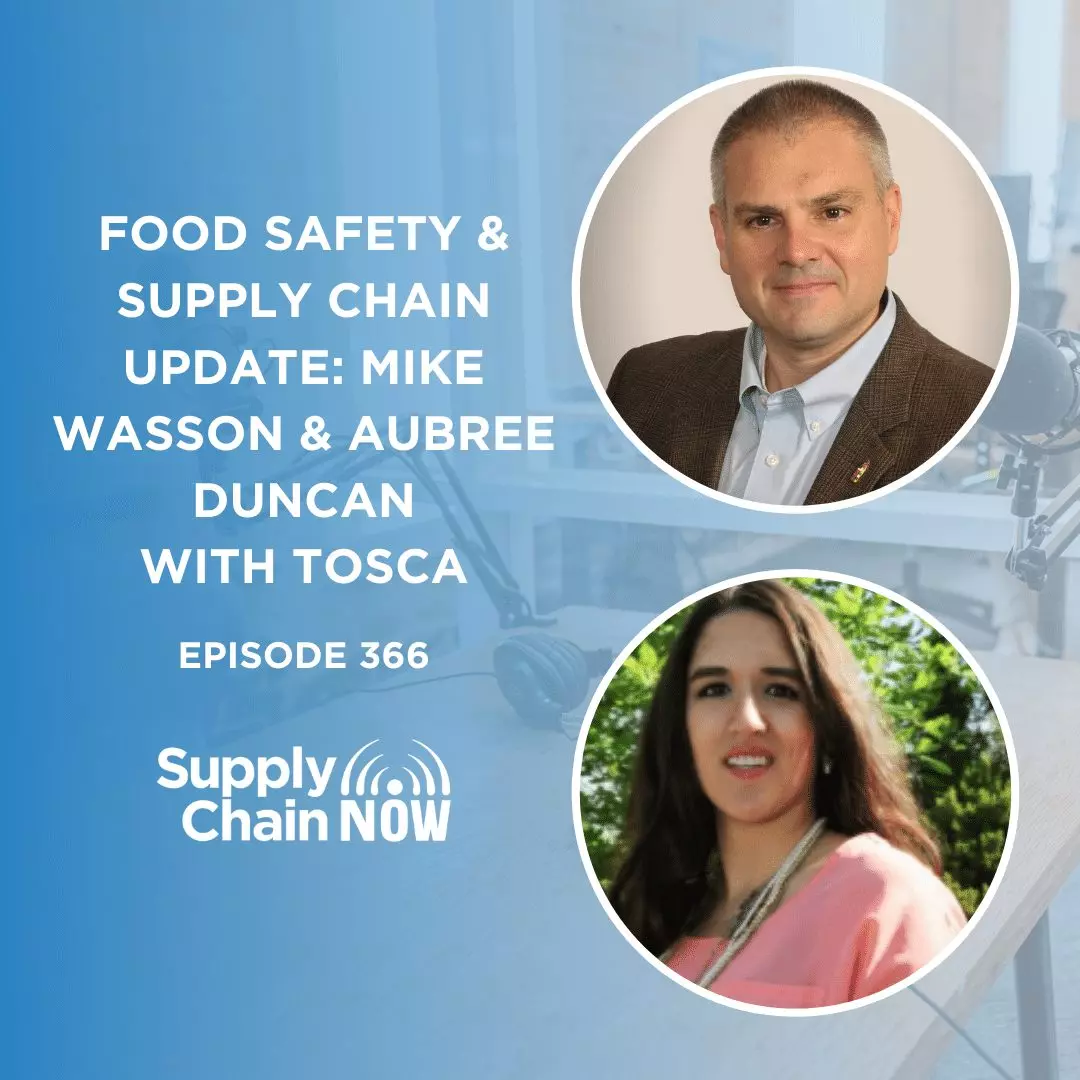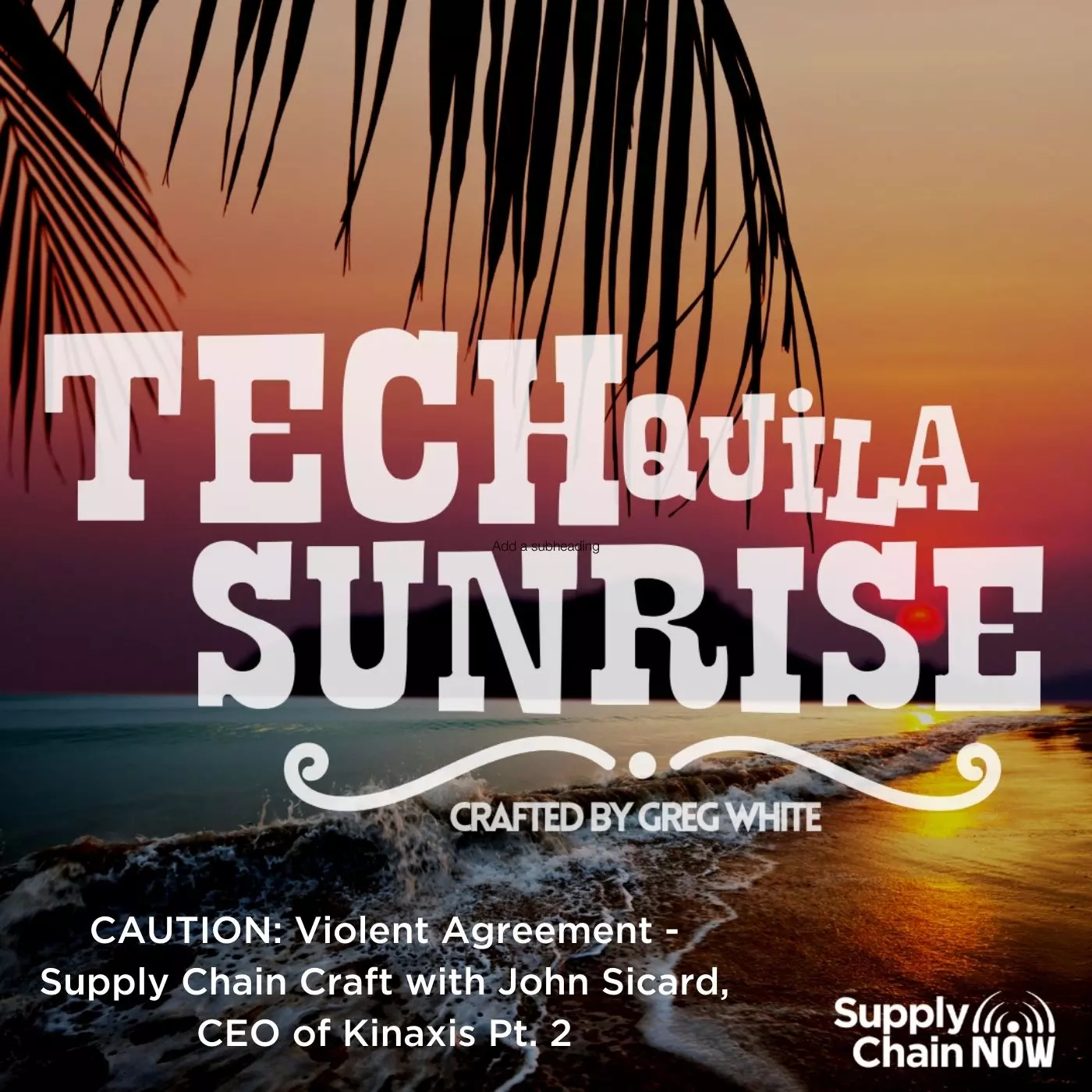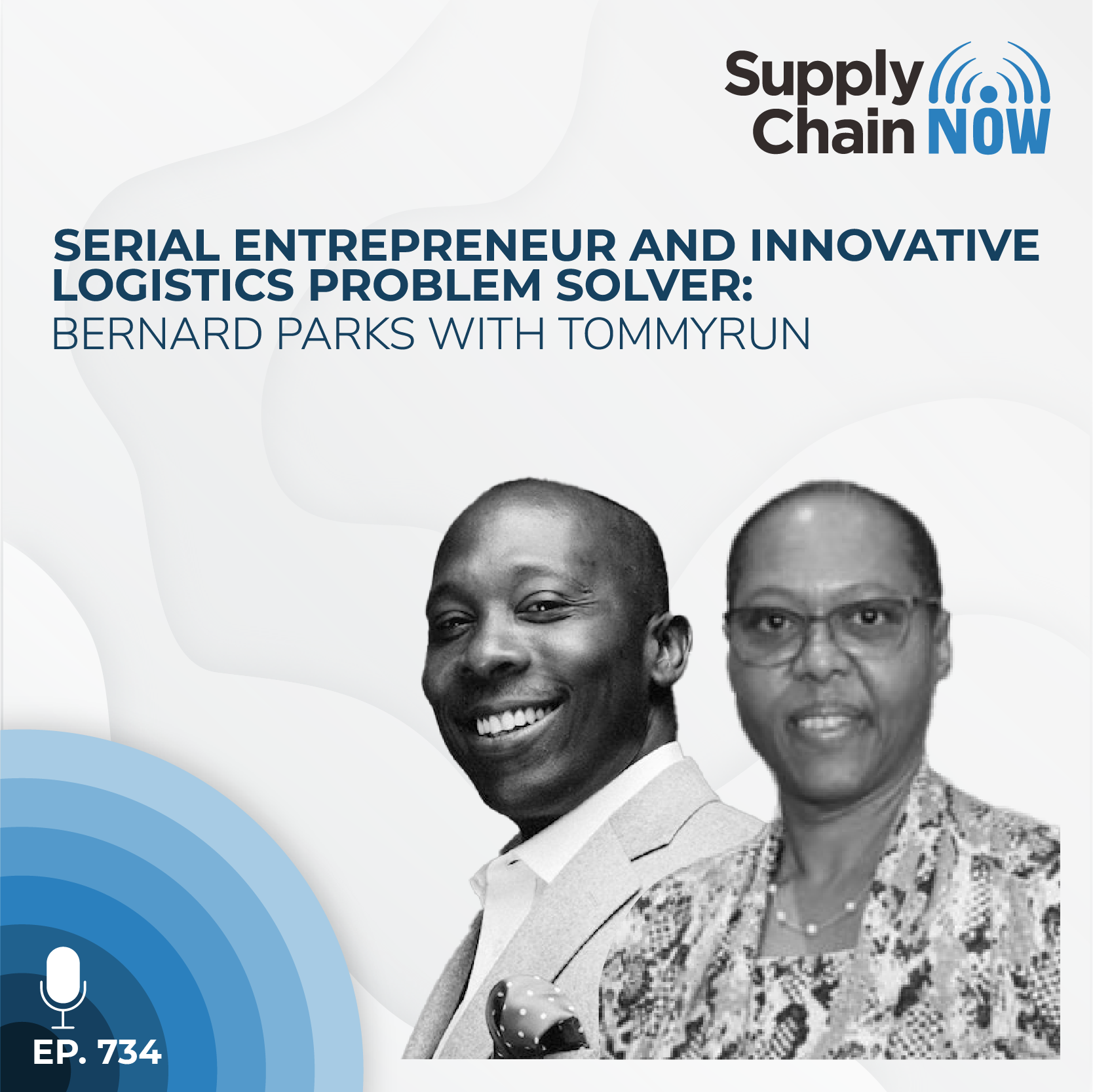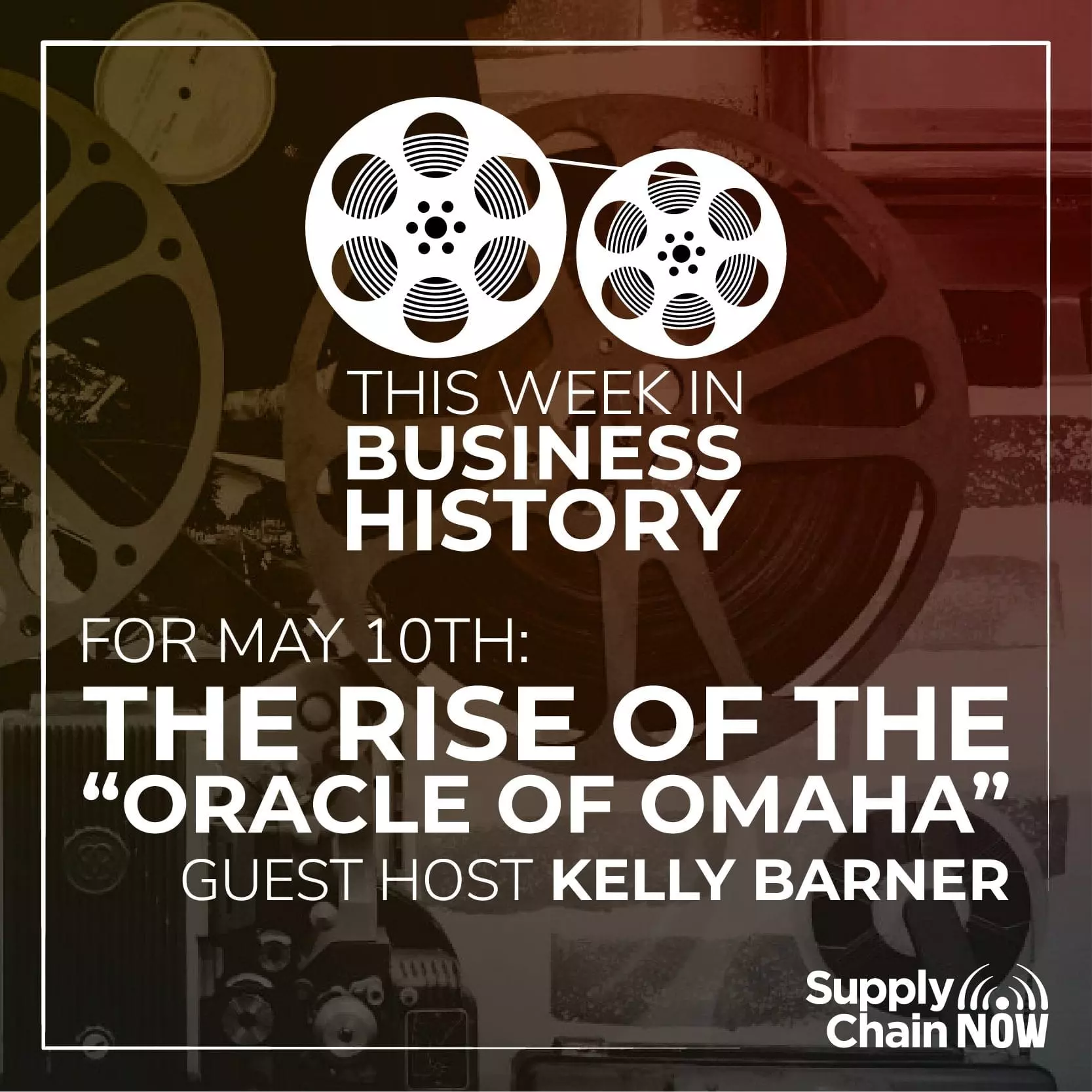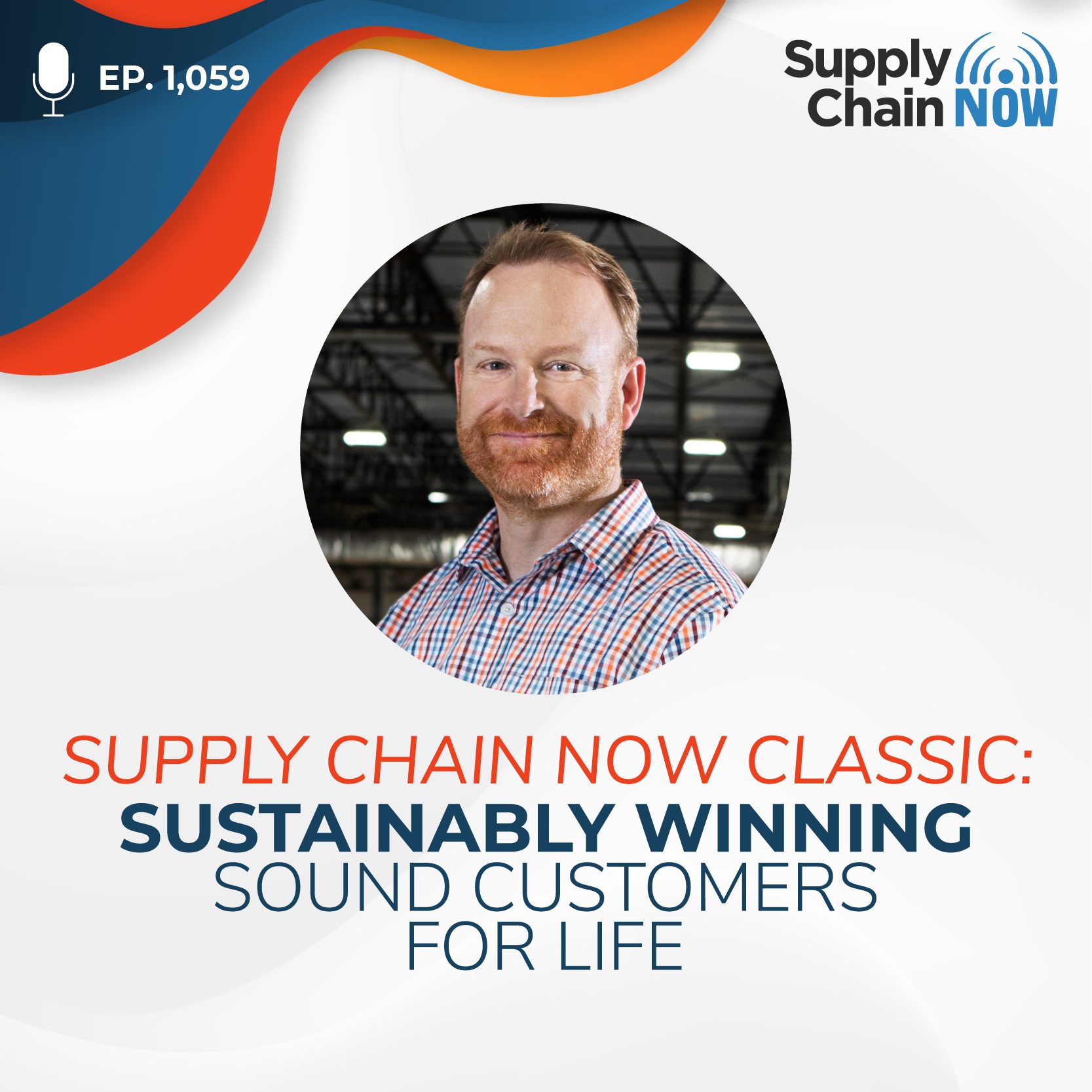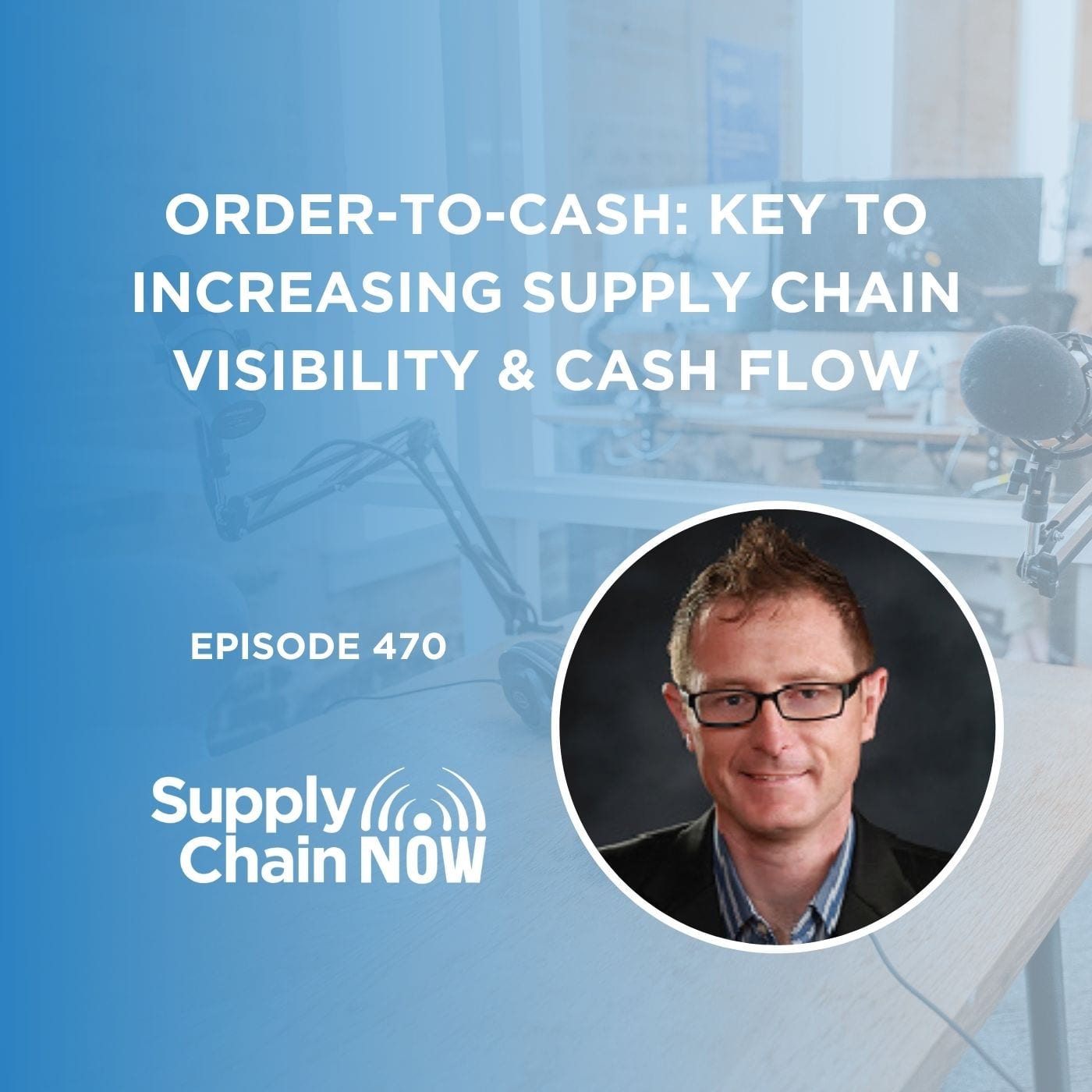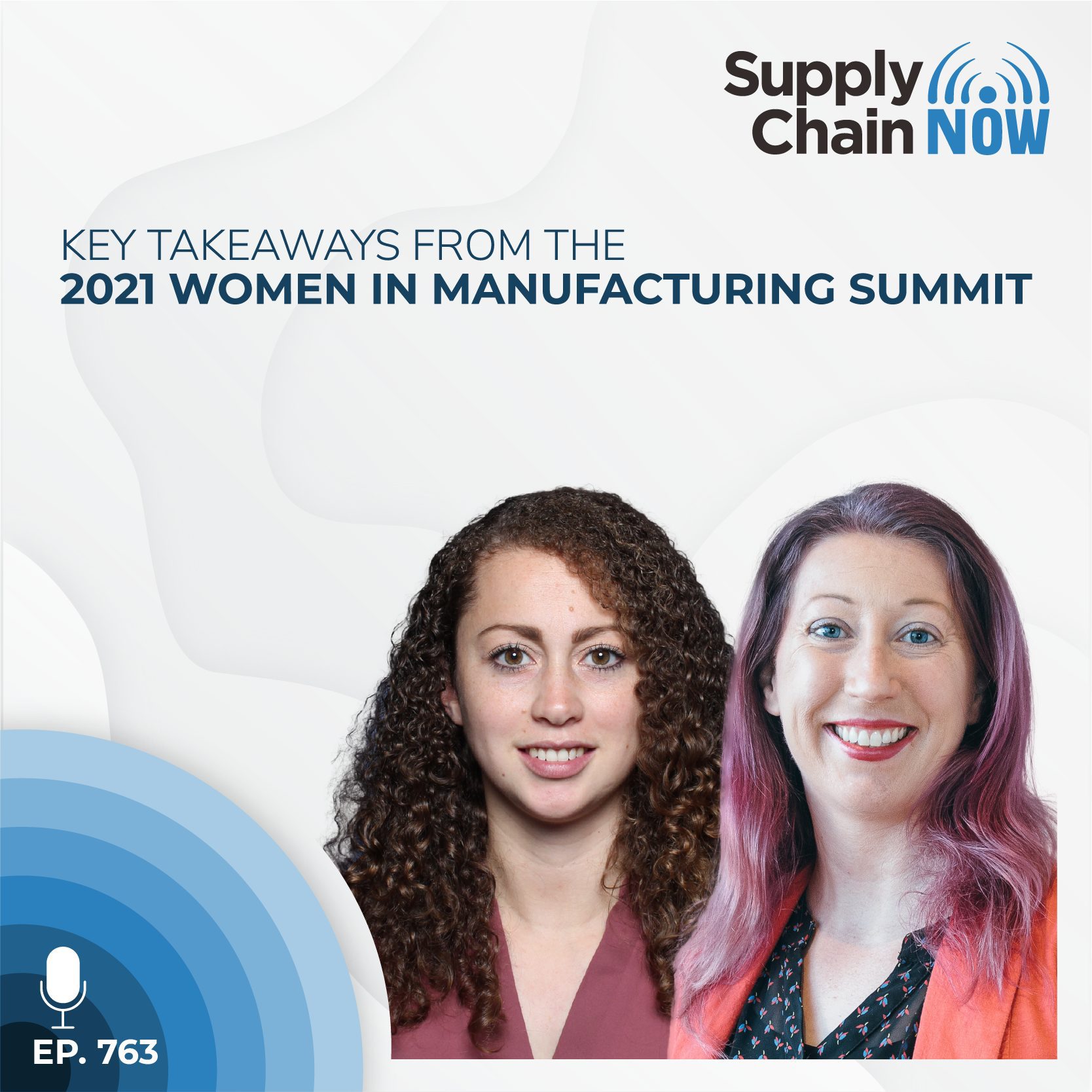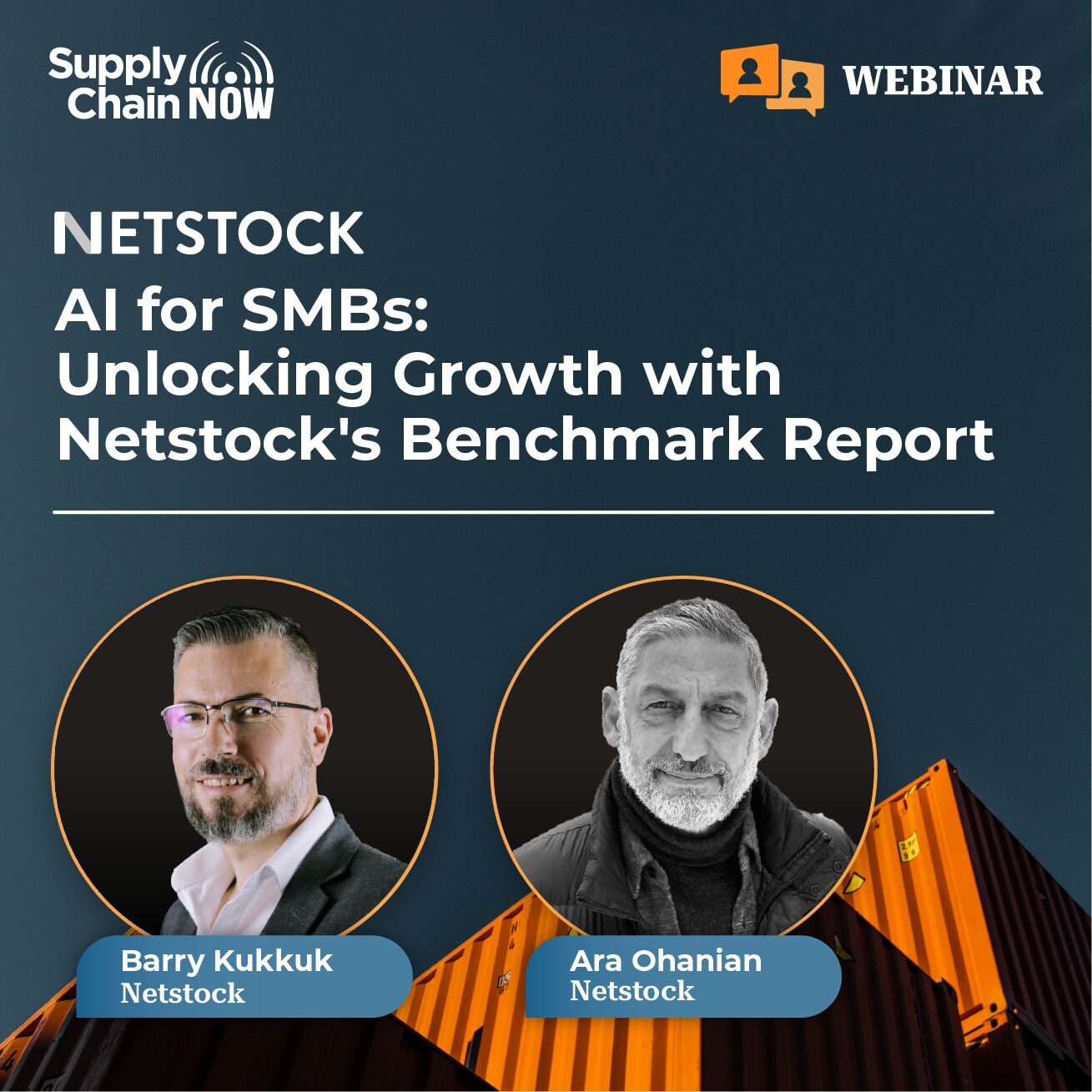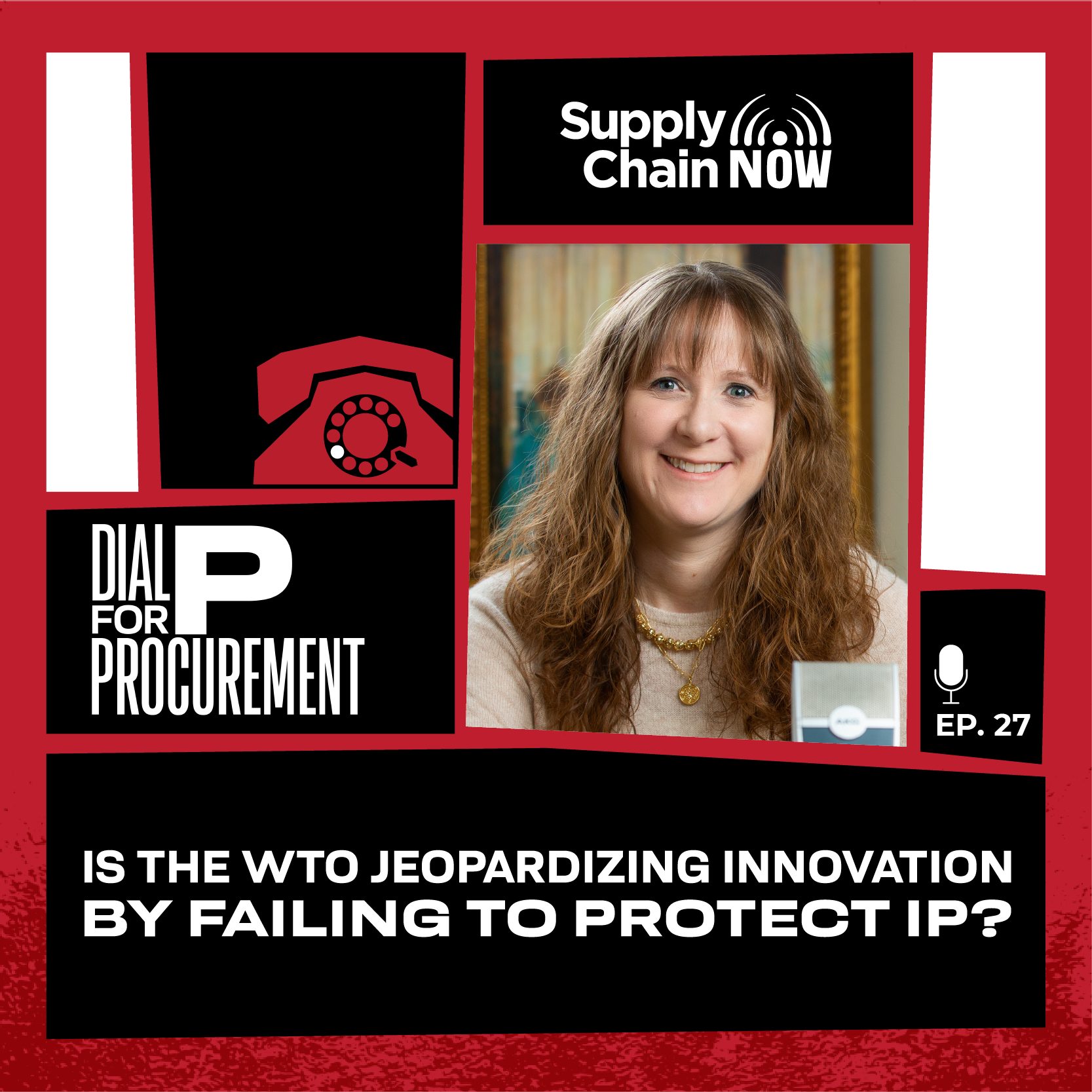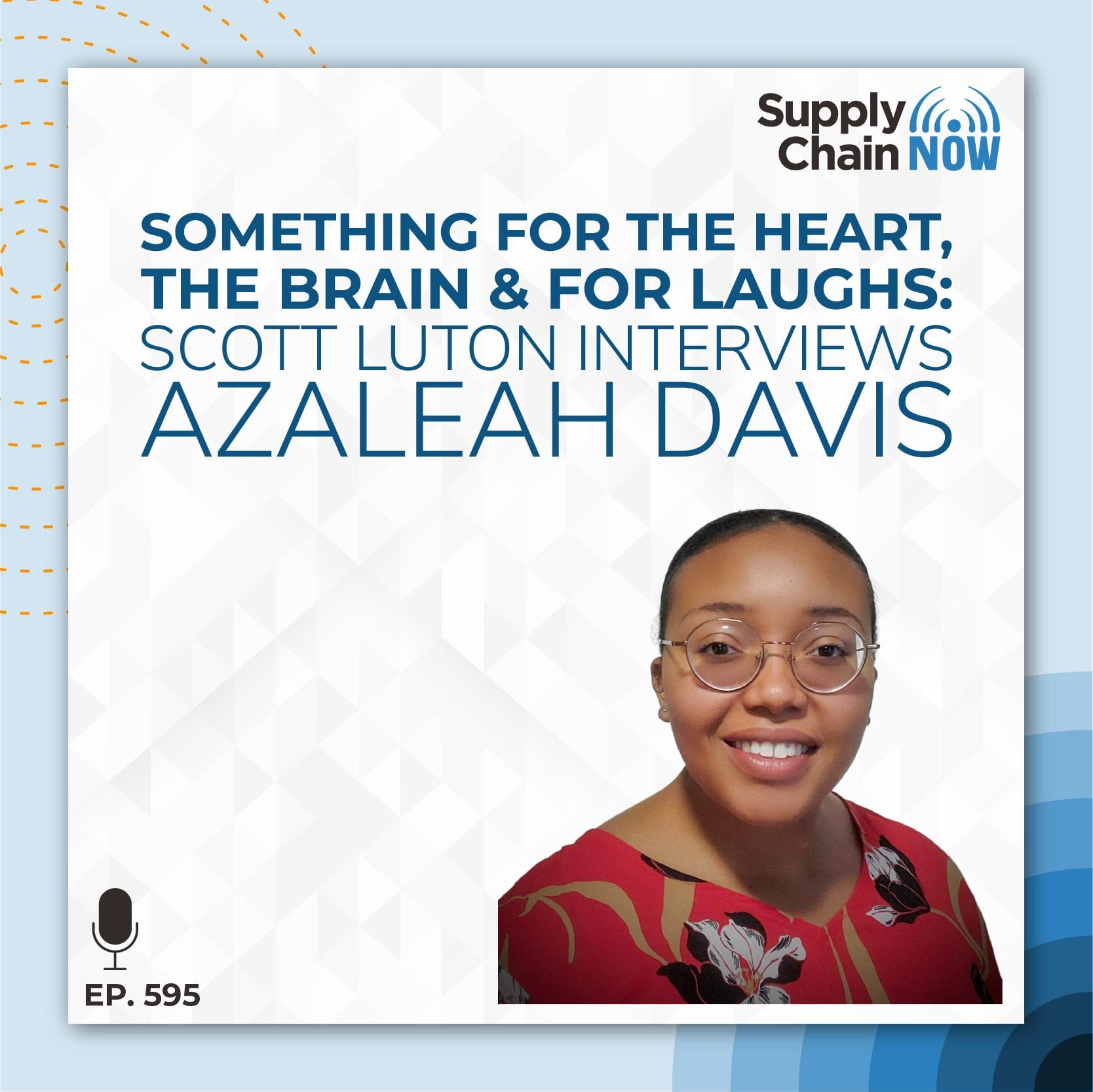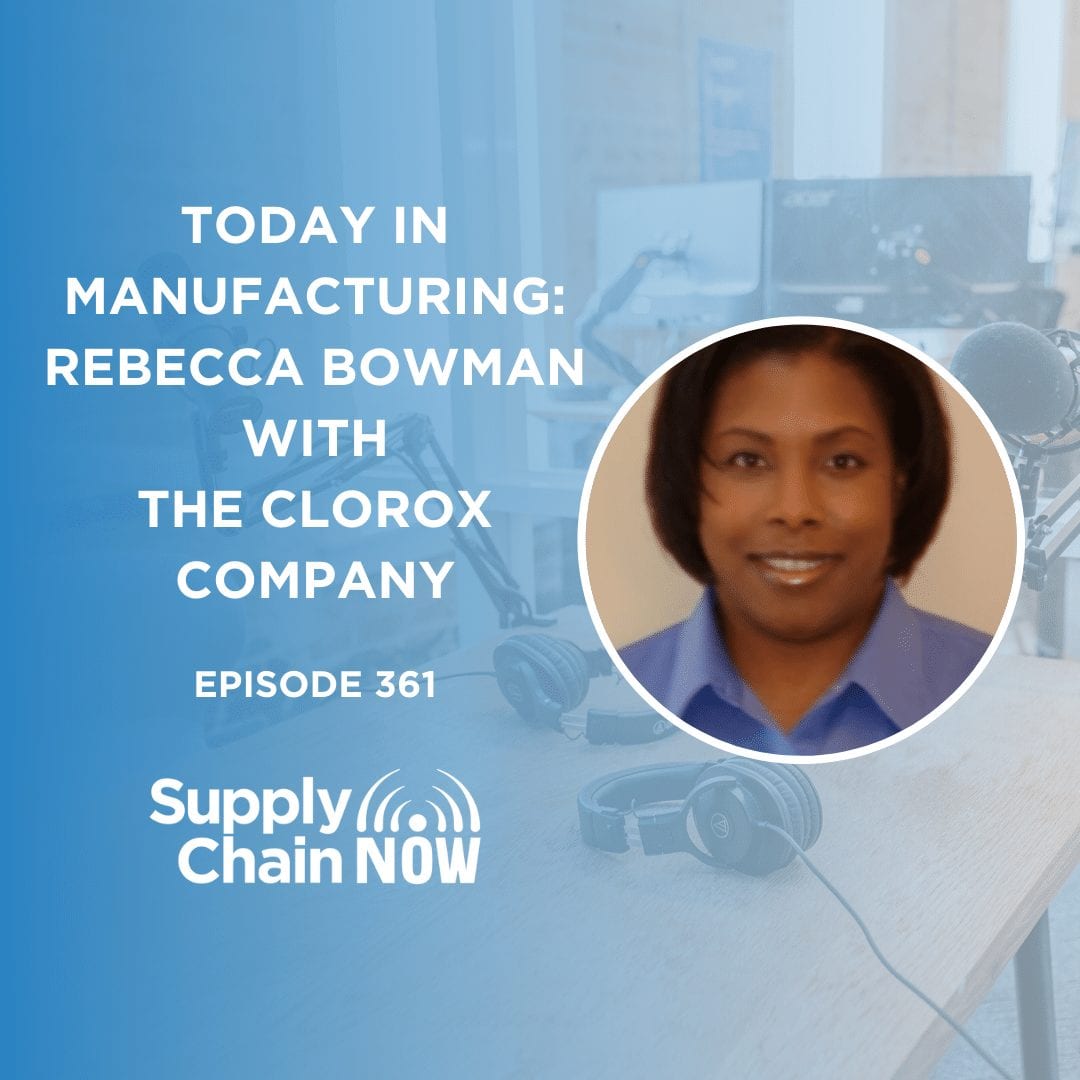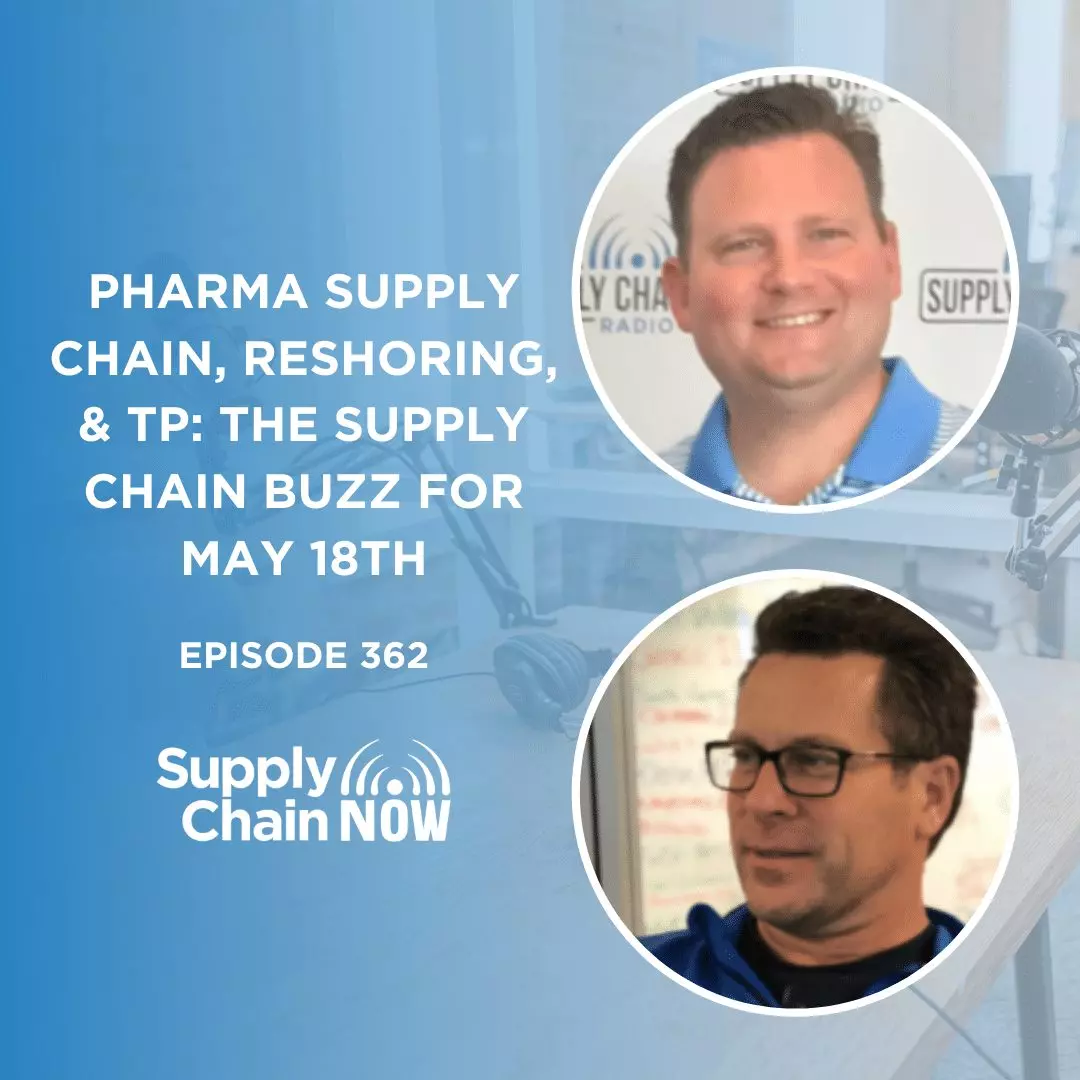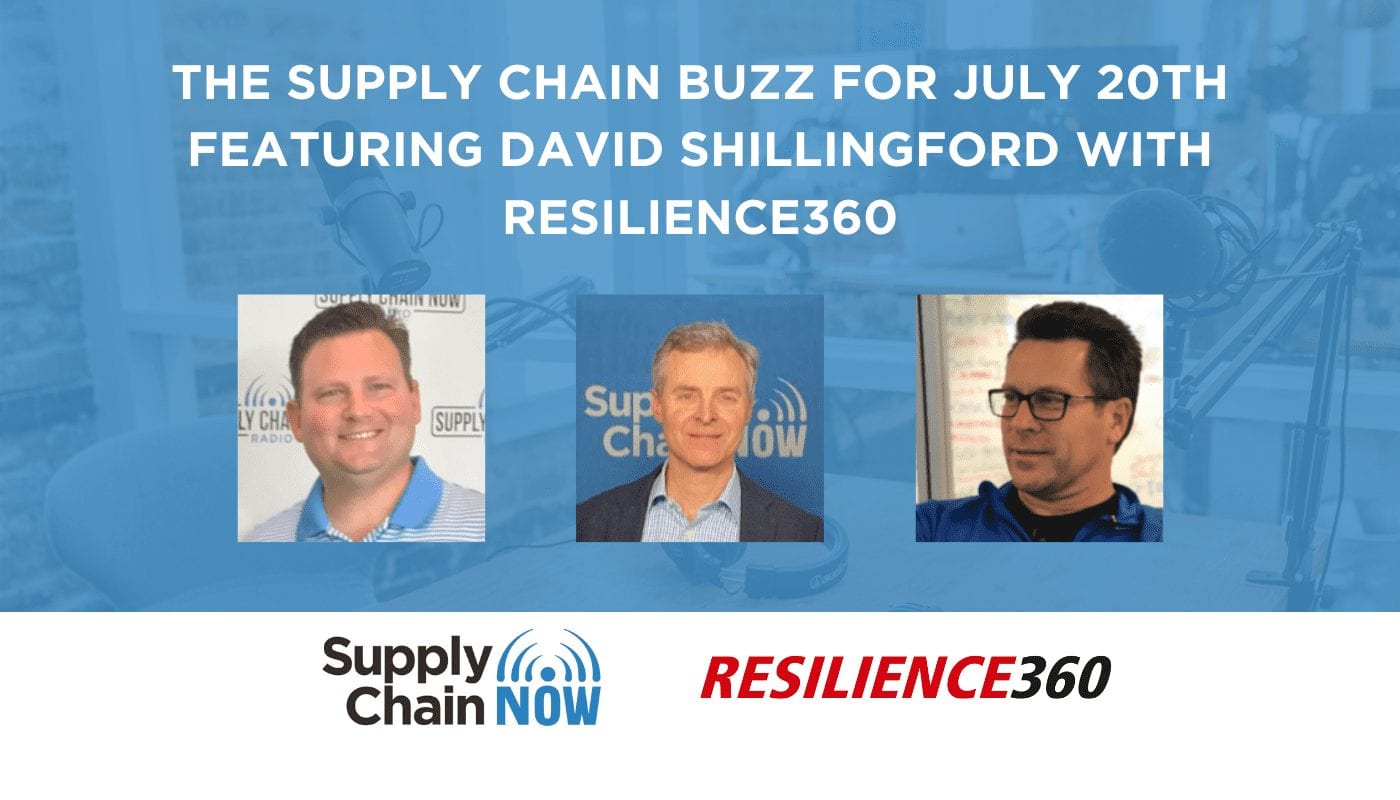
Episode Summary
In this episode of Supply Chain Now, Scott and Greg share the Supply Chain Buzz- the top stories in supply chain for the week. They are also joined by featured guest, David Shillingford with Resilience360.
Episode Transcript
Intro – Amanda Luton (00:00:05):
It’s time for supply chain. Now broadcasting live from the supply chain capital of the country. Atlanta, Georgia heard around the world. Supply chain. Now spotlights the best in all things. Supply chain, the people, the technologies, the best practices and the critical issues of the day. And now here are your hosts.
Scott Luton (00:00:29):
Hey, good morning, Scott Luton, Greg white with you here on supply chain. Now. Welcome to today’s live stream, Greg. Good morning. Good morning. How was your weekend? It was a very productive one, a hot one here in the, on the fringe of the Metro Atlanta area, but a very, a great weekend with family. How about yours? Very good. And, uh, I must have done some laundry cause as you can see, I’m wearing a collared shirt. Unbelievable. Well, we’re gonna talk about earnings reports and we’re going to be talking to the chairman of a company. So yes, good dress up. I thought a color was appropriate all here on the supply chain buds, where we tackle a lot of leading developments across industry. Uh, give you our take on why they’re important. And as Greg mentioned, we do have another special guest, uh, David Schilling for chairman of resilience, three 60 a repeat guest.
Scott Luton (00:01:17):
Nonetheless is going to be doing this about 1225 Eastern time. And talk about a deep new comprehensive study that came out chock full of executive insights. So stay tuned for that. A quick programming note, Greg, particularly for you. Oh, Hey. If you enjoy today’s conversation via live stream or supply chain buzz, be sure to check out our podcast wherever you get your podcasts from be sure to subscribe. So you don’t miss a single thing. Okay. So Greg, are you ready to dive right in or do you, do we want to, uh, any other momentous occasions this Monday morning? Oh yes. I would like to congratulate my middle daughter Delaney. Yup. Who just got promoted at work. Um, so she’s moving on up at, uh, field edge, which is a tech company here in Atlanta, of course outstanding. Um, w that’s a great, especially in these, in these challenging year that is 2020 to find success and breakthrough, you know, all the obstacles that are out there that is, uh, that’s nothing less than extraordinary.
Scott Luton (00:02:27):
So big congrats to Delaney. All right. So real quick, before we dive into the first headline, hope white has joined us hope, good morning, hope this finds you. Well, you know, we have to reconnect and get hope on the show at some point. Yeah. I mean, we’ve got a chairman and a CEO already, so I’m feeling pretty good, so, but good morning, hope and memory and Benjamin Emmanuel. And of course clay, uh, who’s down in Florida today, but, but thanks for, to all of you all for joining us on today’s supply chain buzz. All right. So let’s dive right into the headlines. So we’re going to hit the schedule right on time for our very special guests here today. So the first headline, what we’re going to do is we’ve captured a couple of quick hits, uh, when it comes to second quarter financial results for some companies that everyone’s very familiar with.
Scott Luton (00:03:22):
So let’s take a look at Nike. So Nike reported a quarterly loss of $790 million versus a profit, you know, compare compared that to a profit of $989 million for second quarter 2019. So quite a change of events. But you know, if you look at the lack of retail traffic and, um, how they separated their, um, one big, third party e-commerce relationship, you know, that’s thshouldn’t surprise you. And as, as the article from the wall street journal, uh, dove into where I, I pulled this, this factored out of Greg, like a lot of apparel companies, they ship it and they can collect revenue. Their revenue is kind of trailing. And in this case, you know, with the pandemic, a lot of that product is shipped. There is not much revenue that’s trailing it, right.
Greg White (00:04:12):
Well, that’s right. And there’s not much shipping. I mean, let’s face it. We all did our walking in the spring when this started. And now that it is stifling hot outside, I have a feeling people aren’t wearing their shoes out. Absolutely
Scott Luton (00:04:26):
That’s right. Cause they’ll melt and stick to the pavement. Um, well, Hey, good morning also to, uh, AA professor Mohib out in Wichita. Uh Terek. He says hello from cutter. Hello. Terrick uh, Pierre, uh, tango away again has joined us here. He’s in the ATL. And, uh, we have a LinkedIn user. I don’t see a name from Nairobi Kenya. Uh, that’s dialed in on the buzz, so good morning to each.
Greg White (00:04:54):
Okay. Moving right along here and Stephan as well. Oh, I’ll say Stefan. Yeah.
Scott Luton (00:05:01):
The Stephan from, uh,
Greg White (00:05:04):
From, from, from Texas by way of Germany. Yeah.
Scott Luton (00:05:11):
All right. So moving right along, uh, J B hunt reported a total operating revenue, uh, was down quite a bit in second quarter. If you look at it from a year over year, year, over year standpoint, uh, 2.1 5 billion versus last year, second quarter 2.26 net earnings were also down a good bit. Uh, and the volume declines, they mainly attributed to, um, declines and intermodal freight, as well as they’ve got an integrated capacity solutions division that, uh, volume was a good bit off there as well. Um, Taiwan, semiconductor manufacturing. Did you know that that is the world’s largest contract chip manufacturer? I had no idea. I knew it. I knew that was big in Taiwan, but that’s the biggest one. It reported 3% quarter over quarter gain in net profit. So good news for that company TSMC for second quarter. Also the company, uh, has revised revenue projections for 2020.
Scott Luton (00:06:12):
They’re looking, they’re looking at an overall 20% increase in revenue in 2020, which one of the big drivers, there are data centers, right? Everybody’s working from home. The data data centers are needing a lot more juice and is driving significant revenue there at the Taiwan, semiconductor manufacturing company. Any surprises there, Greg? Yeah. Yes. Well, I suppose I shouldn’t be surprised because I don’t know if you saw this weekend, but, um, one of the major technology companies has a major campaign to try and get people to use their, their devices. Whereas they usually use another iOS type device. Uh, Oh, let’s say it, Apple has this huge campaign of people on calls like this and, and talking about how easy it is to use those devices. So clearly people are fighting for that. And as more people work from home and more will work from home then laptops and those sorts of devices become that much more important.
Scott Luton (00:07:16):
Right. I can’t tell you that Taiwan, I don’t know enough about the company to know that, but I think we know some folks that we could probably ask back. We interviewed them last week, right? Alex from Edwards, right? Yup. Edward’s vacuum when the lead conductor manufacturers in, uh, in the world and, you know, we knew we needed that. Yeah. Luke small with shocker. That was a great, great conversation. And a lot of feedback on that, that podcast interview from last week. Um, Hey, really quick. Let’s recognize a few of the folks, uh, Ahmed is, uh, tuned in with this LinkedIn. He says, Hey, be sure to mention SCM in port. So supply chain management may be in, in, in the ports and sea ports. Maybe Ahmad, feel free to clarify. And, uh, we can give you a shout if, um, if we, we have time that permits a C uh, yeah.
Scott Luton (00:08:15):
Live from South Africa via LinkedIn is, is Anna [inaudible] and Alyssa way. Thank you, Greg and Alyssa, wait, uh, so good, good Monday afternoon to you and Alyssa way and welcome in from South Africa. Uh, right. So you always talk about Benjamin gold claims runs. He says no more morning runs due to the dreadful heat, hit that treadmill, take your laundry off of it and run on your treadmill. Memory says a us runners. Aren’t wearing our shoes out as quickly as they usually do. That’s a good point, their memory, right? And hope this finds you. Alright, so Ahmed, he did clarify for us. So, uh, sustainable port operations, perhaps,
Greg White (00:09:02):
Unless that’s a publication. And if that’s the public,
Scott Luton (00:09:04):
I’m not, I apologize. It’s in my blind spot, but we’re trying our best to give shout outs here on the supply chain buzz. All right. So let’s keep driving, um, Abbott laboratories, uh, saw a big revenue increase in its U S diagnostics business. And you could probably guess what drove that right,
Greg White (00:09:23):
Greg? I bet you could, um, a cold vaccine. I don’t know what would it be?
Scott Luton (00:09:30):
COVID-19 testing of course, but you know, interestingly enough, that couldn’t pick up the overall company’s global revenue, which was down. And one of the big factors, uh, that, uh, led to a decline of revenue was the demand for medical devices dropped, especially for all those procedures, not related to the crone of ours that were canceled or postponed, um, Domino’s, as you might expect, big news here for Domino’s quarterly revenue was up 13% in second quarter, 2020, over 2019 beating many even analysts estimates, of course, U S market was a big driver. Hey, folks are eating lots of pizza, lots of take home food. Um, I’d love to see, uh, I’d love to see numbers kind of across the other food delivery, uh, platforms and see who, who who’s maybe leading the most. I don’t know.
Greg White (00:10:24):
I can assure you that I did not contribute to dominoes, but I have a feeling that Delaney might have, and she might be ordering a pizza an extra large today. I wasn’t,
Scott Luton (00:10:33):
I knew you were going to say that I was going to let you say it.
Greg White (00:10:35):
You know, I even lived in Detroit and I’m still not a fan. If I had to pick Detroit pizza, I think I would pick, I don’t know,
Scott Luton (00:10:45):
The next next supply chain buzz deep dive on all of,
Scott Luton (00:10:52):
And finally, Netflix, these numbers are pretty, are I found staggering, at least a Netflix reported second quarter revenue of 6.1, $4 billion for 2020 up from four point $9 billion in 2019, over 10 million new subscribers in second quarter alone. Now that, you know, uh, you expect those gains given what, you know, 2020 has brought, but man, those are just still massive, uh, analysts expected just over 8 million new subscribers. So they taught that. So a mixture of results, uh, financially, uh, one last, last quick comment from you, Greg, for move to the second story here on the button.
Greg White (00:11:33):
I don’t know if you dug deeper on this and I, I apologize because I didn’t, but I swear I passed over a comment, uh, or, uh, a note about Netflix that actually their profit did not also go up. Is that, am I re did I read that right?
Scott Luton (00:11:51):
I think he did. I think he did. Uh, and, and, you know, that would put them probably in, in solid company here in 2020. Right. Um, right. But it’s a fascinating story, especially as a consumer of Netflix, uh, we look at all the content. It’s fascinating to see how they continue to be, uh, super data and, um, users and, and super data competitors in many ways. Uh, so we’ll have to, we’ll have to get some other big names as financial results. This week’s a big week as a variety of companies, we’ll be releasing their results this week. Alright. Uh, let’s see. Hey, by the way on that. So, you know, since we do tech supply or supply chain tech on tequila, sunrise on Thursday mornings, I’m going to be taking a look at a couple of the earnings reports from companies that have recently reported this week. When that episode outstanding look forward to that, my pay my week is not complete without at least one tequila sunrise.
Scott Luton (00:12:51):
All right. Real quick. When I say low to a few other folks, uh, Soman, good afternoon to you. Thanks for tuning in via LinkedIn. Uh, Stephen was following up on you, you know, you said Texas via Germany, said it to your pit stop as well in West Palm beach. Stephen. Great to have you here. Uh, Bosco. Hello from Tanzania. Thanks for tuning in via LinkedIn, Delaney. Uh, this is the super achiever right here. Delaney. Thank a few folks for giving her high fives. Congrats. Do you Delaney well-deserved and looking forward to what’s next for you? Um, see here Pankaj, uh, pink coat, uh, from India ex air force a logistician. Outstanding. Great to have you here with us, uh, on the buzz, uh, those planes in the right place. Absolutely. Uh, and Sylvia, we couldn’t do a supply chain buds without our friend Sylvia, Judy, who is the blueberry jam queen of at least the East coast Sylvia.
Scott Luton (00:13:52):
I’m not sure if you are, uh, if, uh, jam making is on your schedule this week. I bet it is, but she says that in Charleston, South Carolina, she can only run at 4:30 AM because of the heat. All right. Uh, let’s keep driving, uh, in our second headline, we got some more good news, right? And so just like when that first hit that first scan, there were some companies that clearly had, uh, uh, had a lot of good news here recently from a financial standpoint will and the us industrial production Rose 5.4% in June, according to the federal reserve. So this beats a lot of, uh, economic, uh, economic, um, economists, if I can say that name right brag and my 17th cup of coffee. Uh, so I kind of miss had projected a 4.1% gain. Um, so they beat those predictions, manufacturing help lead the resurgence as it Rose 7.2% in June alone automotive while it’s still down from its pre COVID-19 levels as is what isn’t a still automotive June was a great month for automotive as a, as it continues, it’s rebound in many ways.
Scott Luton (00:15:02):
So this is the second month in a row of gains. So 5.4%, uh, addition in June 1.4 in may. So it’s picked up the pace on the positive side and we all know in March and April, I mean, it fell off, fell off the table. Uh, so it’s good to get past those massive drops. Um, but if you look at a bigger picture industrial production, industrial production, according to these numbers is still down about 11% compared to pre COVID-19 levels. So there’s three things that these analysts are worried about, uh, Greg and the bigger picture. And I bet you can guess all three week demand, which is kind of funny given how we we’ve talked about this historic, these historic levels of demand, but it’s, it’s kind of coming back down to earth in many ways, low oil prices. And of course you got more and more, um, the likelihood of supply chain disruptions for folks that may not collaborate with our featured guests here. You got the potential of a lot more supply chain disruption, right? Because of a lot of moving pieces. Um, all right. So before I quote, so in addition to these federal reserve numbers, PMI, the PMI report, which comes out every month produced by our friends over at the Institute for supply management, I’ve got a quote from, um, basically the chair of the report. I’m gonna read here in a minute, but Greg, give me a, give me a quick, um, give me a quick hot take on what you see in these numbers.
Greg White (00:16:33):
Well, we’re coming up from the very, very bottom, right? So hopefully we would see this. And I actually, I think these are good indicators, um, that the economy is coming back. We’ve had all sorts of, of recovery types predicted, uh, V recovery, which this sort of looks like, meaning we dropped fast and we’re recovering fast, uh, w recovery you recovery, which means me, we linger at the bottom for a while, but it does seem like this, this is an indicator that we will either have a V shaped recovery or a w shaped recovery, meaning down, up, down, up kind of thing. Um, rather than a U shaped recovery. Uh, I know that countries, I know that our countries and States here in the U S are, um, they are fighting to keep the economy open or get it back open. It’s not even nearly, um, back to open. So I would say all things considered still down 11% is a pretty strong indicator. The dollar is pushing up. I just saw a report today. The dollar is pushing up against a 33 year high in terms of the dollar index, which means there will probably be weakening in the dollar,
Scott Luton (00:17:51):
Which bodes well for us exports. Uh, you know, so, uh, you know, we’ll have to see how that, how that is added to the combination of weak demand, low oil prices and other possible supply chain disruptions. The supply chain disruptions would only be caused by a retraction or going back into lock down into this seismic societal disruption that we’ve, we’ve put upon ourselves. Right? Yep. Good stuff there. Uh, Greg, um, one, uh, uh, before I read this quote, I want to also mention, uh, Sean Conrad, who is our resident air freight expert amongst other things, Sean, good morning, Sean spent some of his time in classrooms helping a lot of students, especially elementary and middle schools understand what supply chain is all about. So Sean, great to have you here. Um, all right. So one final comment here. I like this, this summary from Timothy [inaudible], who is chair of ism.
Scott Luton (00:18:50):
Again, that’s the Institute for supply management ism manufacturing business survey committee. So he’s one of the key leaders in this, in this monthly PMI report that a lot of news organizations report on good stuff. He says, quote, as predicted the growth cycle has returned after three straight months of COVID-19 disruptions, demand consumption and inputs are reaching parody and our position for a demand driven expansion cycle. As we enter the second half of the year amongst the six biggest industry sectors food beverage and tobacco products remain that’s one sector remains the best performing industry sector, computer and electronic products and chemical products are two separate, were turned to respectable growth transportation equipment and fabricated metal products to separate continue to contract, but at much softer levels in what, um, so I think that seems to be intuitive in many ways, uh, but a lot of so much data and between what the federal reserve reports on and what PMR reports on.
Scott Luton (00:19:58):
And, you know, even if there’s some concerns in the bigger picture, Greg still it’s good. It is outstanding to get past the last few months that have been really so challenging for businesses of all sizes. Well, I think we’ve seen that the key to getting past that is opening, opening up society again, for whatever, however, we can do it responsibly. And I think we’re finally starting to get a handle on how to do that responsibly. Um, that’s, that’s really the key to this recovery. Yup. Good point there. Let’s see here. Uh, I want to mention some memory talking back to automotive, which some of these numbers reported on. Uh, she says that she noticed some car dealerships are foregoing, the Bo the deposit requirement to push car cells. Is that helping? Is that happening elsewhere? Uh, folks comment on that. See what kind of stuff, what kind of deals, what kind of promotions that, that automotive automotive manufacturer putting out there to, to move the needle?
Scott Luton (00:21:00):
I’m a little surprised that it wasn’t, um, more aggressive. I can tell you, we, we had to buy a car, I think, uh, in April. Yep. And they were desperate beyond desperate to sell a vehicle. And that’s the beginning of a quarter. So usually they’re not, yeah, it’s a good point. Uh, clay weighs in and he says, hello to memory congrats on your African distributor of the year award. That is a great point clay. And I’m glad you brought that to our attention. Uh, memories or memory in her organization were rewarded or recognized rather as for their supply chain. Excellent. So we’re gonna have to get to try to get a picture of that award from memory. So memory great to have you here and clay, thanks for pointing that out. Uh, finally Joseph Valentine says delay, uh, hello, every day is Valentine’s day here on the bus and Joseph, who is who, who is a huge passionista for all things, reverse logistics as joined us once again, here on the buzz. All right. So Greg, uh, as we, as we talked about earlier, we have got an outstanding, uh, repeat guest here today. We want to welcome in David Schilling for chairman of resilience three 60.
Scott Luton (00:22:19):
Hey David. Good, good afternoon. How are you doing, sir? I’ll do it. Well, thank you. So, Greg, if you remember, last time we, uh, rubbed up was with David, it was really before the world had changed. Yes. Um, it was one of the interviews that mowed ex uh, the first week or so of March in Atlanta. And it was literally that that show wrapped up David and Greg, and then the States changed in a way that, that, you know, would be, you know, in many ways permanent. So, uh, David hopeless finds you safe and sound. I know you’re dialed in from, uh, the, uh, North Eastern U S right? Correct. Yeah. I’m up in Connecticut up in beautiful Connecticut. All right. So, um, David, some of our listeners and some of our audience members may, uh, certainly recognize resilience three 60. We’ve enjoyed partnering with the organization on a couple of podcasts and webinars, so much good stuff.
Scott Luton (00:23:15):
Uh, we had your chief meteorologist on the show probably what a month or month or two ago, Greg seems like forever, but it may have only been a few weeks ago, right? Everything seems like forever ago. Now it does. But the way that he talked about weather and data, uh, in supply chain, uh, and, and, and provided insights in a way that supply chain leaders can take real action. It just, um, it brought a lot to the show. So, but for folks that may miss that, miss some other stuff, tell us more what resilience three 60.
David Schilling (00:23:48):
Sure. Yeah. Well, um, first thank you for having me again. Great. Uh, um, beyond the show resilience three 60, uh, at its core helps companies make their supply chains more resilient and more agile. And we do that by helping them, what we call risk, adjust the decisions that they’re making, both in planning and in execution and by risk adjusts. We simply mean taking risks into account. Whenever a decision is being made, again, whether it’s planning or execution, uh, it may be upstream and procurement decision making, uh, or inbound logistics or downstream logistics. Uh, our belief is that almost every decision that is being made should be taking risks into accounts, and that that should be done in a dynamic way. It should be done not just in real time using sense and respond technologies, but it has to be predictive as well. So much can be done in the planning phase to, to increase agility and increase resilience.
David Schilling (00:24:53):
Uh, the predictive side of this is critical. So we’ll, we’ll map a supply chain network, and Dwayne, uh, that includes the nodes where they factories, uh, DCS ports. And then we will track in real time the goods and the materials that are moving through that network. So their own aren’t necessarily unique to us. But what we add to that is the predictive rest to be able to look at the network and the shipments and predict the risk that they, uh, are undertaking and then to monitor risk monitor events around the world in, in real time where, right, right now I just took a look. So we’re monitoring over a 1,300 events around the world. Not, not, not the impact of, of COVID-19, uh, as you say, whether as a, as a very big part of this, uh, so, uh, it is about bringing together the network data, the shipment data, predictive risk data, and real time event monitoring, to be able to help companies understand what is truly happening in the supply chain and to be able to plan and react in a way that we believe is difficult to do without taking brisk into account
Scott Luton (00:26:04):
Much more proactively, right. Getting, getting on a hit, getting, gaining more lead time for decisions, getting a sense of, of where the disruptions may take place, so that you’re not a hundred percent react mode. Just kind of summarize some of what I’m hearing here, David.
David Schilling (00:26:19):
Exactly right. The, the further a company can get ahead of what might happen, the more they can do about it. And very often, because often it’s a number of companies that are, that are feeling the same, the impact of the same risk Covance, obviously an extreme example of that, that if you can react better, faster than the, it does become a competitive advantage.
Scott Luton (00:26:46):
Yep. Real quick. I got a note from Malcolm, uh, John Davis, the chief meteorologist is actually with, uh, your sister organization, risk pulse risk Paulson, re resilience three 60 work a lot together. Um, my apologies, I missed mispositioned that John was, John was incredible.
David Schilling (00:27:02):
Yeah. To be, to, to be more specific, uh, resilience three 60 acquired risk pulse at the end of last year. So we, we truly are one company and, uh, deep into the process of, of integrating the two and to be able to have the type of environmental risk analytics, weather, and other types of environmental risks from a team. Like the one that we don’t have that John leads is, is, is incredible. I mean, that’s really, we believe that climate change climate volatility is, uh, is just going to increase and become more and more impactful on supply chain. So we’re very focused on, on that side of things. Yep.
Scott Luton (00:27:42):
Agreed. Thank you for that clarification as well to our audience, a lot of great comments coming in and questions. We’re going to dive into a big, getting some executive key takeaways from big, big study that, um, uh, resilience story six was part of, we’re going to try to circle back and get to some of your comments. So stick tight with us here for a second.
David Schilling (00:28:02):
We have to do another live stream. I was looking at some of the questions.
Scott Luton (00:28:08):
Yeah. There, you got six hours
David Schilling (00:28:11):
Always, always to talk about resilience.
Scott Luton (00:28:13):
Right. Alright. So, uh, David, the business continuity Institute also known as BCI. We love our acronyms and across global supply chain, it’s got 9,000 members in over a hundred countries and it appears that resilience three 60 partner with BCI to release a comprehensive report entitled COVID-19 the future of supply chain. Alright. So before we talk, get your take on some key takeaways from the, um, all of this reporting while partner from a resilience three 60 standpoint with BCI.
David Schilling (00:28:46):
So BCI is a, is an ideal partner for this type of report. As you say, they have, uh, incredible global reach across a number of different industries. Uh, and this type of surveying and benchmarking is, is, is what they do. Uh, they have significant, uh, expertise and experience in this, um, putting together a report like this is, is it’s difficult to do well. Uh, we can bring the supply chain expertise. We can certainly add a lot of color around what our clients are, seeing the companies and now coming to us to, you know, describe how they have experienced COVID-19. So to be able to have this real time side of it, as well as the surveying and benchmarking is, is, is, is really critical. And we can’t, we often try and benchmark against what has happened in the past, but in this instance, it is, uh, it is unprecedented what we’re going through. So benchmarking
Greg White (00:29:42):
Against peers across the industry is, uh, is more important than ever
Scott Luton (00:29:48):
Agreed, agreed. And, you know, uh, Greg speak to, uh, real quick speak to the, the demand we’ve seen the, the, the high level of interest we’ve seen from business leaders that are looking for these benchmarking and looking for how organizations are tackling these very unique challenge.
Greg White (00:30:05):
Yeah. I mean, the questions are coming fast and furious right here in the comments stream. So maybe we’ll tackle those as well, but that is true, you know, not, we still don’t get a whole lot of press in supply chain. So the ability to, to coordinate with other companies out there is a common question that we get who’s, who’s done, who’s faced X and been successful in resolving it. And we see that over and over again. And that’s part of what we try to, to bring here and, you know, with our articles and things and blog posts and that sort of thing, but it is a constant refrain of companies wanting and frankly, needing to refer to the reference points of other companies in the industry to get where they want to go to see some pathway there, especially as you said, David unprecedented, which we have to say whenever we talk about COVID because it is, I mean, I think one of the things we have to recognize is that the impact of the pandemic was not nearly as great on society and the supply chain as the impact of this seismic societal disruption that we imposed on ourselves to avoid a large peak in infections in, uh, from the pandemic and that the, the, um, coordinate not necessarily coordinated, but fairly closely timed cessation of, of, uh, an economy as we have known it forever, that has never happened before.
Greg White (00:31:39):
And that’s why it’s, I think it’s relevant to say that is what is impacted the supply chain more than even the pandemic itself.
Scott Luton (00:31:48):
So with that, as a backdrop, let’s segue into this, this huge, massive piece of research that BCI and resilience three 60 put together. So, you know, uh, there were one, as we were going through it earlier, you know, I had 25 pages of notes and 50 key takeaways. So we’re gonna just build a scratch surface here on this appearance, but David, you know, what are three or four things that leaders should really take away from this map, this, uh, all this.
Greg White (00:32:17):
So I think pulling the report down into a simpler to digest form is to think about it in three buckets. One is, uh, from a supplier risk standpoint, one is from a logistics risk standpoint. And the other is thinking about infantry and how that intersects with working capital and
David Schilling (00:32:40):
Cash management and the, the intersection between the three of them.
Greg White (00:32:47):
Yeah, I think you mentioned earlier that you can’t load up on just in case inventory and it, and expect that to not impact cash,
David Schilling (00:32:58):
Right. We deliberately asked two separate questions and not one after the other one about inventory and whether or not companies were planning to increase safety stock. And then a little bit, uh, further through the survey asking, uh, how companies were, how focused they are on cash preservation and the different things that they’re doing to, uh, to, to preserve cash. And the, uh, as you might imagine, we’ve got two, uh, somewhat contradictory answers to that is we’re going to increase safety stock, not universally, but, uh, that is certainly the trend that we saw in the report varies a little from industry to industry, uh, but very much universally that people are looking, uh, aggressively to conserve cash. Uh, our, our opinion is that in the short term cash will win. Uh, that is, uh, that is always, always the case. Um, what I think is interesting to, to consider and work through is the extent to which new technologies and new management styles can actually create a win on both sides. Um, and we’re, we’re talking as much if not more about the agility, uh, as we are as resilience these days, and being, being smart and predictive and planning and being agile through a sense and respond mechanism, uh, during execution is, is one way of conserving cash and inventory at the same time, it’s difficult to do, but, uh, it is possible at least to some extent,
Greg White (00:34:35):
Well, you have to have more of more data inputs as to what generates the risk in order to be able to limit the safety stock. That’s required to plan better to preempt the potential disruptions that you’re talking about and conserve cash, right? Because in the absence of data, you have to pile up inventory literally for just in case. But if you know what just in case is, or how likely those disruptions are, right, then you, your, your, uh, estimate of what kind of safety stock you require can be much, much more effective and, and usually lower.
David Schilling (00:35:15):
Exactly, exactly right. I mean, we, we, we talk about visibility a lot. It gets defined in different ways by different people across the industry, but it is becoming clearer and clearer that if, if the definition of broadly, speaking of visibility has been being able to see your network and what is flowing through it, uh, we have to add to, and the risk that it faces, we believed by bringing, when we think about integrated business planning, same thing is true that that risk has to be bought into that process in a fully integrated fashion. And if it is fully integrated, it’s not standalone and being analyzed when something very significant happens, it’s being done daily and it’s being done dynamically and in real time, and that allows companies to deal with the risk of delay, you know, 5,000 cuts, rather than just when something very catastrophic happens, risk risk goes across the entire spectrum. We believe that, uh, the right technology, the right level of automation can deal with a two hour delay, just as much as it can deal with the loss of a supplier. Yeah.
Scott Luton (00:36:28):
It’s speaking to cashflow, uh, cap ex
David Schilling (00:36:32):
Expenditures. What are y’all, what did the data, and what did the respondent say
Scott Luton (00:36:36):
About CapEx?
David Schilling (00:36:38):
So the, uh, the, the, the trend there is, as you might imagine, that people are looking to, uh, to support back, uh, preserve cash as much as possible, uh, using a number of different techniques to do that. Uh, but re reducing inventory is inevitably going to be, uh, one of them, uh, you know, payment terms and things like that, but it is, you know, it’s a chain, it’s a supply chain, and there are always trade offs. So, you know, someone wins, uh, on a, the cash side of transaction, inevitably, the other side loses. So it has to be done in a, in a thoughtful, balanced, and collaborative fashion. Otherwise it may have the opposite impact.
Scott Luton (00:37:22):
Um, go ahead.
David Schilling (00:37:23):
I was just going to say the demand is the demand. So even if you lower your inventory, you still have to fulfill the same amount of demand. For instance, if you can’t take inventory out of your safety stock, you have to take it out of your order sizes, let’s say, or the, the amount of time that you have between orders, which means more cash transactions, but in smaller amounts. So, and that also introduces risk in the supply chain. And, and it’s interesting. I mean, inventory is often the largest physical asset that any company that, that has products encouraged, right? It’s the large physical asset that they have bigger than real estate. Um, and, uh, and I think we’re going to talk, and we are going to talk in the next article about how one company is tackling that. But one of the things that we have talked about a lot since the pandemic started, and we’ve seen some companies do is to enhance what you were talking about just a second ago, David, which is the automation, the technology that supports and ingest this data and enables a company to have that level of precision that can’t be delivered by spreadsheets or manual processes, human intervention.
David Schilling (00:38:36):
So that’s going to be a big part of it. Usually a CapEx item often though, now with cloud technologies, that’s usually an expense line item in the balance sheet and comes in smaller bites. You don’t spend a hundred million dollars to transform your supply chain. You spend a hundred thousand a year or something like that, right? Yeah. We think there’s, um, the, the, the, the, uh, the, the we’re seeing certainly as technology visibility, technology becomes more prevalent, the ability to see your inventory across not just, uh, static, but also in transit infantry is going to become more and more important and knowing more accurate, the ETA of that inventory allows you to leverage that infantry in the way that you might normally with static infantry, and that that’s going to become more and more important, more and more valuable, and certain industries, maybe more consumer facing, uh, we’re seeing a drive towards skew rationalization. I mean, that’s something that you’re talking about for years and is when you look at the numbers, it just makes good common sense. Uh, and then sales and marketing get into a fight with, uh, with supply chain. Uh, but one of the things that, uh, we’re sure will come out of this is some degree of skew rationalization. The long tail needs to be cut off at some point, no doubt,
Scott Luton (00:40:04):
Absolutely a lot less, uh, variations of core products just to keep products on the shelf. Um, Hey, so, um, I want to make sure we hit each of the three buckets you laid out a second ago, but, but prior to going live, uh, you had some interesting comments around one of the areas of the survey, which was, which had the beta, which, uh, had, has had a bigger impact plus out of the demand side. Would you weigh in on that, uh, with our audience and, and, and between your perspective and what the data from the survey, um, what it said,
David Schilling (00:40:37):
Uh, sure. We actually, in the survey, we asked the question, uh, asking people to say whether supply risk or demand risk created the biggest impact on that, on their business, uh, during COVID. And it’s a little bit of an unfair question, but we want it to be able to get the data around that, to be able to drill down on it. We’ll be doing some followup research. The point here is that they, that the different in terms of the risk profile and the risk dynamics, what we have broadly seen, uh, across supplier risk is that it has been, it is, it has hit a region. It has hit an industry. We’ve been able to see it coming. We’ve been able to measure the impact of that. And we’ve been able to do a reasonable job is predicting how that impact is going to unfold over the days, weeks, months that, uh, the COVID has been, uh, spreading across the world.
David Schilling (00:41:31):
What has been more difficult is on the demand side. That’s been, it’s been more volatile. It’s been, uh, it’s been quicker to hit companies. It has been more local. Uh, in some cases, companies have seen significant demand spikes and other cases, it has fallen off a cliff, most follow logic, but none had anything to do with the planning systems that were in place simply using historical data to plan is not something that people can do right now. And it brings us back to this, this notion of the importance of agility and being able to take real time inputs into systems and make dynamic decisions as, as the world changes around us.
Greg White (00:42:16):
Hmm. It’s interesting, because I think if there’s any lesson we’ve learned, and this is a lesson that supply chain generally needs to learn, if there’s any lesson we should have learned from this is we are not predicting items. We are not, we are not using data to determine what this item is going to do, because that item is going to do exactly what the consumer wants it to. It’s either going to sit there collecting dust, or it’s going to fly off the shelf or somewhere in between, because who would have thought toilet paper, nothing more need be said. That’s right. Alright. So, um, David, I’ve got, I want to ask you about, um, uh, those organizations that had a, uh, a pandemic plan in place and get some background there. And then we’ve got this, this, the story we’d love for you to weigh in on if you’ve got a little, a few extra minutes, but we want to make sure that we hit and get your key, key takeaways that business leaders have to know from this, this wealth of data.
Greg White (00:43:17):
But, uh, so feel free to hate, stop us and call Tom out and say, Hey guys, we got to get this one more thing out there. Uh, David, uh, we talked a little bit about pre-show about, um, the organizations that had a pandemic plan and had done the scenario planning and, and their re risk mitigation work upfront had those, those contingencies in place, put the research and invested in that. And then a lot of those that didn’t, can you speak to that? And can you speak to what the survey weighed in on, on those scenarios?
David Schilling (00:43:49):
Sure. I think the, um, good way of thinking about that is to do with the culture and the systems in place inside a company that are relatively broad and in some ways are a reflection of the culture of the company. And that comes down to their ability to communicate internally and to communicate extra. So this, this doesn’t apply purely to supply chain. It is a, it’s a broader comment about resiliency and the ability to, to communicate, to trust, to, to collaborate. And so the companies that had more rooms set up that had committees set up, we’re looking cross-functionally at how COVID was impacting their business on day one. They, they perform perform better, uh, during covert. And there are, there are many different flavors of that, but as a, as a general rule, there are companies who had those systems, those processes in place, and those that didn’t the other side of it is on the systemic side.
David Schilling (00:44:54):
And this is a little more binary because you either have a system in place that tells you where your suppliers are and what you get from them and where they get their inputs, or, well, you don’t. And, uh, the same, same applies to legit as well. So we’ve seen companies keep production lines open. We have a client who’s a tier one manufacturer. They were able to keep that production line in Europe, open for three weeks longer than they otherwise would have them. Because right at the beginning actually put the backend of last year, we were alerting them to what was happening in China and they were starting to make plants. And they were, they were thinking about how would they, how would they advance their orders? Uh, might they move from one mode to another? And they put those plans in place and they executed them over the course of February and kept their production line open.
David Schilling (00:45:56):
They think for, for three weeks longer than they otherwise would have done, they could not have, they could not have done that. Wouldn’t have been thinking about doing that as they didn’t have the right systems in place or access to the right data. Yep. Wow. That’s a really, that’s a really good, uh, testimonial and probably explanation of how people use resilience. Resilience three 60 is being able to have a provisional, um, plan like that, but also having the ability to be notified when something like this, and this is what is in the viruses, what is in the forefront of people’s minds. So I just want to clarify that. So you all actually notified them that there was something happening that was going to impact their supply chain, and then they responded to that to undertake the plan that you talked about. Is that right? Yep.
David Schilling (00:46:53):
That’s what we do every day. So one of the questions that we got, I think it was Stephen. One of the questions that someone asked in a, in the stream comments here was, do you do your own forecasting? Do you have forecasting partners? Is there some of both and maybe gives folks a little bit of an idea of where you get your data from? And I understand that you’d have an unfair question. You’re the chairman product manager, but you can go some way to that. Yeah, it’s a fantastic question because, uh, it really, it really matters because, uh, if we said know we’re scanning news networks and, and flagging that up, uh, that that would not be enough. It is, it is not enough. So it has to be, it has to be multilayered. And it starts with a very, very wide pipe we’re pulling in millions and millions of data points from many, many different sources, not just news of media.
David Schilling (00:47:53):
Um, particularly local media is very important to have multi linguistic capabilities there. Some very specialist websites, government websites, and we’re partnering with companies that have very deep focus in certain risks, whether it be financial risk or cyber. So we’re pulling all of that together. And then we’re using some pretty advanced machine learning to boil that down into incidents that we believe might be impactful to a supply chain and further categorizing that and flagging that so that we can actually lie to specific supply chains. Cause our clients don’t want thousands and thousands of alerts they want to just know is, or might impact my supply chain. And it’s very important to have on top of all of that, a human element to have human intelligence, as well as artificial intelligence. And people talk about that a lot, but we think it’s a, this is a good example of, we have analysts teams across the globe covering all time zones, covering 20 languages.
David Schilling (00:48:56):
And they’re looking at what the machine is telling us, they think is important and relevant. Um, and, and checking that and making sure that we’re putting the correct context into it. And not only that is to say that there’s a flood or to say there’s a fire is one thing, the exact impact of that on the asset and the supply chains that go in and out of that is critical as well. So to be able to partner with the likes of DHL and other partners to truly understand what is happening on the ground is, is unique. And it’s critical. And as being very valuable during COVID people knew what was happening, but they didn’t necessarily know the impact of what was, what was happening.
Greg White (00:49:38):
That’s powerful stuff. I mean, is that the, you know, is, is there another example of somebody that has maybe not necessarily for COVID, but has used what you all do that you could relate to the audience that, that would help them kind of understand yeah.
David Schilling (00:49:57):
What you got, how long, how long do you have pick your best one? I’ll give, I’ll give a couple of just that a slightly different from the supplier risk side of things. So we have a lot of, a lot of companies that are trying to keep that the in-band industry as lean as they can, um, particularly in engineering and manufacturing and automotive. So we are we’re monitoring their inbound shipments so that we’re looking at with them days of inventory remaining. And we were able to map that predictively, any risks that any of those inbound shipments might experience. So the contingency plans can be put into place to ensure that you can have lean inventory, but that a production line does not stop. That’s it it’s a slightly different use case. It’s, it’s more dynamic. It is it’s happening every minute of the day. Uh, conversely, and going back to your comments about John and the meteorology team and, and environmental, we have a very, very large, uh, CPG company that looks at temperature sensitive loads that may or may not use refrigeration.
David Schilling (00:51:02):
And rather than using a calendar, it’s a decide when to use refrigeration, we’re providing predictive analytics that look at each shipment predictively up to two weeks in advance to say, it’s going to be warmer than normal. You don’t need refrigeration or vice versa, which saves millions of dollars and means that the loads don’t get damaged. So that again is a different use cases. So it can be on the shipment level, it could be a supply network, it could be inbound, uh, inbound inventory management. Um, but in our mind it needs to be all of those things because you have to look at risk across the entire network. Hmm.
Greg White (00:51:40):
I have a favor to ask you. Um, I want to give people, I want to give folks an idea of note, to know where to go, uh, real quick, but before we do that, I want to make sure our next headline is about resilience and agility. And in it, the chief supply chain officer of the company draws a very fine line. So would you be able to stick around for a couple of minutes and,
David Schilling (00:52:04):
And help us work through that? Yep.
Greg White (00:52:08):
If you want to get a hold of David, um, you’re on LinkedIn, right? Um, David has a lot of jobs, so people, so be kind, not only chairman of the board of, uh, resilience three 60. So thank you for joining us and you can always reach out to resilience three 60 at resilience, three sixty.com. That’s brilliant by the way. Yeah. Thank you. All right. Let’s move into this next one. So we don’t take too much more of your time, but I’m on this article. So the universal Unilever chief supply chain officer Mark angle, um, States that agility beats forecasting when the supply chain is stress. So he was at a Royal
David Schilling (00:52:52):
Transform Europe virtual conference, uh,
Greg White (00:52:57):
Last Wednesday, and talked about this. You may have gotten a chance to read this article, but essentially just to give you a little bit of a, of an intro, um, he again said that these seismic societal disruption, the national lockdowns have impacted their supply chains at every level from production to distribution. Um, he talks about things like absenteeism in factories and a shortage of delivery drivers. So labor impact as well, uh, added to the stress. If you factor in the fact that demand was swinging away from, uh, commercial products, which Unilever lever also provides as well and shifting towards
David Schilling (00:53:43):
Products, okay.
Greg White (00:53:45):
Then the ability for them to see what was coming next became secondary in his opinion, to making decisions in the moment. So at, at the event, I’m going to quote, uh, Mark angle again. He said, agility does Trump forecast. At the end of the day, every dollar we spent on agility has probably got a 10 X return on every dollar spent on forecasting or scenario planning and quote. So there, some of the numbers David that you talked about are, are expressed here, the demand for their more essential products, cleaning supplies and, and the light shot up 600%. Um, and in order to deliver one of the other things, you talked about skew rationalization in order to deliver, they had to reduce the number of total skews. They were producing by 65%. So they basically went, let’s just pick a hundred and went from a hundred SKU’s to 35 skews.
Greg White (00:54:48):
That is a massive change in production. And we’ve heard about this from other, from other manufacturers as well. So I think this, I don’t know if this is a longterm trend, but it is definitely a trend during this period. But one of the things that angled did was he drew this very sharp line. And this is where I’d like to get your thoughts, David. He drew this very sharp line between agility and resilience. He said, resilience is more around sourcing where you get your products from how many markets you source from. But agility is really about how well you are equipped to respond to uncertainties. And it’s that skill. He believes that put the company, um, you know, the company will use to decide when to do things like bring all these skews back, but this fine line between agility and resilience. Can you give us your thoughts on that?
David Schilling (00:55:48):
Yeah, sure. I’m not sure necessarily, you know, draw a line between them. I, I think they, uh, they’re very symbiotic. They are, they’re connected in a way that the more agile you are, the more resilient there are certainly ways of being resilient outside of agility. And there are certainly elements of agility that don’t necessarily contribute directly to, to resilience. Uh, but the, the ability to be agile is a, a critical component of, uh, of resiliency. And we believe that, uh, the ability to plan and the ability to send some respond, uh, essential to, to agility. So many of the decisions that, uh, that our clients are making either at the shipment level or as they adjust inventory levels, or even thinking about network design, uh, allow them to be more agile. And then on top of that, the sense and respond, if something happens, knowing that it has happened as quickly as possible to know that it has happened, having a plan in place before it happened. And they’re being able to act quickly, uh, critical. So planning and execution, uh, very closely intertwined when it comes to agility, agility and resilience are very closely intertwined.
Greg White (00:57:11):
Yeah. It’s, I’m glad you were able to join us because I was, I’m not sure I would draw the fine line either. I get exactly I get where he’s coming from. And I also realize he was speaking to an audience at the time and probably had to be concise with his words, but I agree that it’s not nearly as fine align. I think of, I think of the supply chain in terms like this plan, optimize re respond, resolve, learn, and adapt. And if you think of it from that perspective for me, anyway, it’s hard to draw a fine line between resilience and agility. Resilience is it’s the planning and the processes that you put in place to, to do that response, right? To do that response when something unexpected happened or to preempt that response or, or to preempt, um, the impact of that disruption from happening. And then agility is the response. It is, everything else has failed us. Now we have to respond, uh, and resolve this actively in the moment. Do you think that’s a fair estimation of the delineation between the two?
David Schilling (00:58:26):
Yeah, I think that’s right. I mean, I would, I’d probably pull agility a little further back in the timeline. There are things that, uh, can and should be done before the event happens. You know, you were talking about John and our meteorology team where the risks, some risks are harder to predict than others, but whether it’s something that we can see coming and to have the accuracy that, that, uh, the John’s team has allows our clients to get ahead of weather events so that the agility may be if, if the option is still open to you, it may be deciding to, to steam, to, you know, a rather than port B, the word weather event has not happened at that point. So I guess it depends on the risk. Um, and, and the point you are in your supply chain is to quite where agility kicks in further back. You can, you can bring it the better. There’s probably some point at which you no longer it agility, just because you’re really still in the, uh, in the planning size.
Greg White (00:59:27):
Yeah. And, and I think that, you know, that that whole learning and adapting thing is an important part of that planning because you have to take that learning and reapply it into that planning phase to have a provision, to do exactly what you’re talking about. Yeah. If we sense if we sense whether than we’re constantly evaluating what our alternative ports are, and if I understand correctly, that is something that is an aspect of what you do as well. Right. That’s correct. Is the alternative plans as well. See that. And I got to tell you, this is what makes it so difficult for me to draw the line between resilience and agility. Right. I don’t want to get stuck on those two words, but I think they’re so intertwined, um, that it’s, it’s an important, it’s important to keep the two in mind at all times.
David Schilling (01:00:15):
Yeah. And the same could be said of resilience and sustainability. It’s, you know, there are things that you would, you would want to do as a, as a corporate citizen and as a, as a company around, you know, being more sustainable and that, but there are many of those things that simply increase your resilience as a company. And of course, Unilever is a fantastic example of a company that is, is thinking that way and has been for years. So you must have read the article because the article
Greg White (01:00:45):
I’m thinking about, uh, um, um, you know, reporting here that that’s one of the things that he talked about first, he talked about this ongoing digital transformation that they accelerated in the early stages of the, of the pandemic, where they took IOT readings and technology, predictive technologies, and, and probably, um, technologies like yours, if not yours, that that help them to respond and know what was coming during this time. But it also did have an impact in them. They have 20 billion devices, some of them that are internet of things, IOT enabled, okay. We’ve said IOT, and we’ve said, machine learning, David, we’re almost done. Um, they’ve automated a ton of processes and leveraging a ton of data collected to be able to not only be resilient, but also they said the same digital tools that kept their supply chain going through the lockdowns also allows them to keep sustainability initiatives on track.
Greg White (01:01:50):
And that’s an additional risk. Now, sustainability is you said weather influences, but, but also the impact of things like ginger Jong shin Jong, the, the slave province in China, where so many companies source from, they have a, COVID a significant COVID outbreak. And that’s on top of the significant intervention that the, that the U S government has put into that, that, um, uh, that province by assuming that anything come coming out of that province was produced with slave labor, unless it can specifically be proven that it was not. So those are disruptions that they are able to, they’re able to preempt and to make sure that they maintain sustainability while fighting this disruption. Alright,
Scott Luton (01:02:40):
I’m going to, I’m going to get a word in edgewise. I called Tom out here so much dive into, uh, you know, David, we started that article, uh, Greg and David, uh, as y’all both have read, um, you saw it reverberate out through social media. It was, it got a ton of conversation, a ton of comments. Those are the greed that those disagreed those that had nuanced positions, but it really has been a great piece for driving dialogue in supply chain, especially one that both
Greg White (01:03:08):
Y’all spoke to where we’ve got
Scott Luton (01:03:11):
From these challenges, those that we knew were coming and the pandemic calls and those that were complete, you know, around the corner from out of right field that we’ve got to learn from and bake into, you know, our, our approach to managing global supply chains, post pandemic. So David we’ll have to have you back on and talk more about that, cause there’s gonna be so many lessons learned, uh, to confirm that I want to make sure our listeners, if they want to download this report, um, COVID-19 the future of supply chain that resilience three 60, uh, uh, uh, built with the business continuity Institute BCI. They can go to resilient three sixty.com to access that. Is that correct?
Greg White (01:03:49):
That is correct. Yes. Thank you. Outstanding. Thank you, David. I appreciate you spending a little bit of extra time with us and talking us through this. Um, I’m glad you’re a well read person. Non-reading he is, uh, we are getting a little bit of a view in case the, the, uh, audiences interested. We’re getting a little bit of a view into just how organized David’s wife is because that’s her library behind you. Correct. There was a book on resilience, the chairman, uh, resilience three 60. Appreciate your time, man. Thank you very much for having me on the shot
Scott Luton (01:04:31):
So much, David. I appreciate it. We’ll see you soon. Take care. All right.
Greg White (01:04:38):
Wow. Double shot with David. I’m glad he stuck around for that. That was really helpful.
Scott Luton (01:04:43):
Absolutely. You know, that, that article and those comments from Unilever, uh, their chief supply chain officer has, has really just sparked a ton of, uh, intriguing discussion. And, and, and it’s great to see it kind of spill over into today’s episode of the supply chain buds, which is going to be, you know, we’ve gone five minutes over
Greg White (01:05:02):
That’s okay. I predict an hour 20 at this point. We know what’s your time. Let’s see how good let’s see how close here,
Scott Luton (01:05:09):
When, when we, when you have a great guest. Uh, and, and, you know, if we just focused on that report, the report, he, that he, with him that could have been a three or four hour discussion. And then of course, to marry that with some of these interesting developments, um, outside, you know, uh, good stuff there. So this Monday
Greg White (01:05:29):
Is Oprah or Ricki Lake or whatever is not coming on after us. So we don’t have to cut time to make it into the network schedule.
Scott Luton (01:05:38):
You know, we just have to, we cannot end the buzz without talking about the tuna supply chain,
Greg White (01:05:45):
Right? Yeah. I mean, guess not,
Scott Luton (01:05:47):
We would not, we would not be complete. Uh, and, and so with some lacrosse, this article, Greg, uh, as we’re going to wrap up here and to our audience, uh, loved all the comments and questions. Uh, we couldn’t get to a lot of it. Uh, w we’ll try to, we’ll try to make some of these connections posts live stream, and, and, and get some perspective on what you’re asking, but to hopefully enjoy David and Greg’s perspective as much as I did here today. All right. So, Greg, do you eat tuna fish?
Greg White (01:06:17):
I do. Uh, ironically considering that this article I have not since the pandemic started now, that is interesting. Isn’t it, it runs counter, but
Scott Luton (01:06:32):
One way, but in the other way, it doesn’t because, uh, so this report from our friends over at wall street journal, the demand for tuna fish has, has really exploded, but it’s mainly due as you just illustrated to the pantry loading that we all know has going on, right? You may not be eating more, may not, but we are loading up on tuna fish, more producers of canned tuna fish there. To some extent they’re struggling to keep up. Uh, and as we know, as with a lot of other things, meats and other products, retailers, some retailers have put limits on how many cans consumers can buy, but the good thing is, is despite their demand and despite for, uh, despite, um, the costs and, and raw tuna fish pricing up, uh, we’ve been able to keep retailers have been able to keep the canned tuna fish pricing fairly stable. Um, so have you ever wondered about what’s behind the global tuna can supply chain?
Greg White (01:07:34):
This is news. I have actually, yes, there should be a show. There should be a show dedicated. This is fascinating.
Scott Luton (01:07:41):
I see all the players involved. So we’ve kind of had the bullet down for the buzz here, but, uh, so more than 40% of the world’s commercially caught tuna fish comes from the Western and central Pacific ocean. And you can think about all the, the, um, um, fishermen and women that are involved in that alone. From there, the fish go to processing plants, typically in either Asia or South America. From there they go typically to another country, third country for canning. And then all of that takes place just before they get into the country, more logistics there. So it can hit the supermarket shelves ton. We’re talking thousands and thousands of miles, but some of the challenges that tuna producers are facing Greg. Um, so I didn’t realize this, but if you look at the rest of the seafood industry, most of those prices are down toothfish is, is not just not down, but it’s has really spiked to some levels we hadn’t seen for quite some time. Okay. And that’s mainly due to, of course, seafood restaurants they’ve been shuttered, right? So a lot of that sea fish that’s hitting those channels, uh, has nowhere to go. Uh, also giving all those countries from that high level tuna canned supply chain, uh, suppliers are encountering issues, getting it through borders and through all the border controls, the logistics behind that.
Greg White (01:09:05):
Thirdly, um,
Scott Luton (01:09:07):
When you think about global supply chains, especially these days, all the, the machinery involved there as maintenance needs, or as you have mechanical breakdown, it’s been challenging to put the high school folks on a plane or on a boat and get it out to where they need to be to keep things moving. Just really been a, a perfect storm of sorts. Um,
Greg White (01:09:31):
So, so I have to ask this Scott, and I’m not sure if any one of us can, but we have a ton of, of international audience today. So is, can tuna a thing around the world? Is it, I know it’s not uniquely American, I’ve had it elsewhere, but, uh, but I have never really thought about how pervasive this product is around the world. And I wonder if globally people are, uh, are stocking up on this, but it is interesting, you know, I couldn’t help, but have the feeling that even as much time as I’ve spent in supply chain and studying economics and that sort of thing, that the product is fished somewhere, it’s processed somewhere else. And then it’s canned and distributed yet. Another place that it’s hard for me to fathom the impact, um, of economics on it that it’s that significant. Wow.
Scott Luton (01:10:37):
Hmm it’s it’s, it’s amazing. I saw a video piece by one of the major producers and one of the big technology providers a couple of years back, and it was fascinating to kind of see it, it, it, um, work its way through and, and also how they’re applying blockchain to a lot of that, so that you can have really important visibility of course, for a really important, uh, global food supply chain. Um, well, as I was telling Amanda earlier, and as well as clay, and you will have to have Charlie the tuna come on. And so we can hear it straight from the horse’s mouth about exactly what’s going on. And the global tuna can industry.
Greg White (01:11:15):
I wonder how many people in the world even know who Charlie tuna is anymore, but we’ll find out let’s yes, we need to serve it.
Scott Luton (01:11:24):
Survey. Maybe we will partner with a global industry association and we’ll get a real look at the people’s time,
Greg White (01:11:31):
But I bet you’re right, Scott. I bet people are hoarding. It not hoarding. It lets stockpiling it, whatever you want to call it, pantry stuffing, um, for the pending zombie apocalypse. And, and if it doesn’t happen, can’t you see the whip, the whip cracking big time on this, on the tuna industry. Absolutely. Absolutely. It seems well set up for that. Doesn’t it?
Scott Luton (01:11:57):
Absolutely. And to your point, exactly. Mohib says it’s time to rethink about insourcing or near sourcing because it’s putting a lot of miles on tuners life and
Greg White (01:12:06):
That’s a good point. I like that. And still running Sylvia says
Scott Luton (01:12:13):
Love canned tuna. Uh,
Greg White (01:12:16):
Aldi is one of the, which is a German, uh, grocery store chain is, is a, a big seller of tuna. So yeah,
Scott Luton (01:12:26):
Outstanding. Well who would’ve thunk, but this illustrates, there, there is a supply chain behind every single thing you’ve got in your cabinet and elsewhere. Uh, and you never know, you know, when we go through these challenging times, like 2020 has been, you never know which one’s going to be more resilient than others, but a really cool stuff. Great article there. And wall street journal, uh, we’re going to move to wrap this, this bonus size
Greg White (01:12:51):
Blockchain buzz. Greg, we’ve got an event coming up this Friday. Yeah.
Scott Luton (01:12:54):
As we welcome in, uh, Bobby Holland and special guests, Trent Zuberi with Kraft Heinz company, of course, Bobby is with us bank when they’re leading
Greg White (01:13:05):
Transportation analysts and consultants and training,
Scott Luton (01:13:08):
Uh, is one of the, the supply chain leader
Greg White (01:13:10):
And shepherds yeah.
Scott Luton (01:13:12):
At Kraft Kraft Heinz company. So Greg, we’re gonna talk all about the U S bank 2020, uh, Q2 freight payment index.
Greg White (01:13:24):
That’s going to be interesting because when we did, you know, we do this every quarter, every quarter we present this report, um, that us bank has, has done for awhile and us bank processes, a huge number of freight payments, um, around the world. And they’re, um, the data is so complete that it’s a great indicator of what has happened and what possibly though they, as a bank, can’t predict, we can try to, uh, what will be happening. And the impact of COVID was just beginning to be felt. We were compelled when we talked with Lee, Klasko from class gal from Bloomberg to talk a little bit about what was coming this quarter. We may have to go back, listen to ourselves, Scott, and see how much good we predicted. Um, but this will be a really interesting analysis of what the impact on the freight market has been. Because I feel like just in this quarter that the impact has been a great downturn. And as you were talking about with J B hunt, a significant turn upwards, right? Yeah. Yep.
Scott Luton (01:14:35):
Third quarter should look a lot better in second quarter. So, but we’ll see, we’ll get it from the pros that know. So it looks join us for this live stream at 2:00 PM Eastern time, this coming Friday, where we’re going to get Bobby and Trent to weigh in on what they’re seeing. And, and Greg
Greg White (01:14:51):
Will that digest their perspective as well. And then, right, so this is live stream. So you’ll be notified when we go live
Scott Luton (01:15:00):
And y’all bring, what’s your, uh, what’s your thinking, what your experiences have been from the freight market. Uh, and then one final item we just scheduled our next webinar, August 19th. Uh, we’re going to feature in rod Scherchen and Kelly Barner. They’re going to be speaking to a lot of what David spoke to today, lessons learned, and then how we can apply that, uh, in the, in supply chain from a, uh, post COVID-19, uh, perspective. So don’t miss that. You can, uh, sign up for the webinar@supplychainnow.com. Greg looking forward to that one.
Greg White (01:15:31):
Yeah, no doubt. Procurement is a huge topic. I feel like so many people in the procurement industry feel like they’re sort of stepchildren of supply chain. I think if that, if that really exists, we need to break down. We need to smash that silo. Gluten. I like that. Well, that’s, you know, we, we didn’t invent that. We took that seamlessly. Yes. We need to smash that silo between supply chain and procurement and just recognize it’s all supply chain and procurement is one of the key disciplines that makes supply chain go. Absolutely. Hey to pros right here.
Scott Luton (01:16:14):
Two big pros know rod Shorrock and with [inaudible] dot com and Kelly Barner with buyer’s meeting point. So check that out. You won’t want to miss that on August 19th, a couple of quick comments for wrap up here today. Uh, Amanda says that some of the best canned and jarred tuna is Italian
Greg White (01:16:32):
News to me had no idea. Um,
Scott Luton (01:16:35):
Let’s see here. [inaudible] who is with us again here on the live stream. Love, love her tuning in. She says she’s never had canned tuna, but isn’t it, but it’s enjoyed learning more about the supply chain behind it. And then Stephan, uh, let’s see here. Oh, that’s not it. Stephan had one more comment. I was going to snag here. Um, all right. So he says no comparison there, fresh tuna, but it’s still pretty good and convenient. So I think we’ve got a few tuna fans here on the bus. What do you think
Greg White (01:17:07):
It should be very popular Europe because they love mayonnaise in Europe. And to me, the only way to eat tuna is tuna salad. Manet’s some sweet pickles, maybe a little bit of onion, I guess last time you can be hungry and now I’m hungry.
Scott Luton (01:17:24):
One last shout out. We couldn’t get everybody on there. Tyson Stephens had tuned in we’re looking forward to a great, uh, upcoming show with him, but Sam, uh, greetings from transport and logistics, middle East T L uh, T L M E case in Dubai. So Sam, great to have you here via Facebook. Uh, look forward to reconnecting with you on a future show. Hope for all as well in Dubai. I, in fact, did you see the UAE launch, uh, the Mars mission over the weekend. Greg, do you happen to see that? Oh, I didn’t see that it’s, uh, out there really big first foray into, um, um, you know, space, mission, space expeditions. They just launched satellite. I think it was yesterday, Sunday, and it is going to be amongst other things. It’s going to be kind of a gap. I learned a lot more data on exactly what the weather environment is.
Scott Luton (01:18:18):
Well, there’s gonna be a big theme, I guess, the today show and, um, at, in Mars, so congrats to the, all the great people in the UAE that had a wonderful and successful space lunch. Okay. So Greg, uh, if folks need to learn anything more, uh, to learn anything more you can do just about everything, but get a tuna sandwich at supply chain. Now, radio.com please, uh, join us. And hopefully y’all will plug in to our other upcoming events. Greg, great show to here today. David’s a special guest incredible guru. And when you’ve got Tom with David Shillingford and, and you have the opportunity to grab some extra time, that’s exactly what you do, right?
Greg White (01:19:05):
Yeah. Well, I have to say, I, I don’t think he could say so, but I believe that Unilever is a resilience three 60 customer. I can say that and if I’m wrong, what does it matter? Um, but, but it was interesting that he had read that article and, and actually Scott knows, I did not know David was going to be on the show when I selected that article for us to discuss so really fortuitous timing,
Scott Luton (01:19:32):
Right. For students Carnac like, yes, for any Johnny Carson fan,
Greg White (01:19:39):
Is he still alive? That’s right.
Scott Luton (01:19:43):
All the audience it’s so rewarding to have, y’all be a part of these live streams with us, your comments and your perspective is really, um, I mean, that’s what makes this so worthwhile. So I know there was a chunk of it. We couldn’t get to you because we were, uh, we have so much to get through with David, but Hey, stick with us. Uh, we are launching some new live streams in the weeks ahead. Of course we’ve got Fridays, which is gonna be really focused on the freight market, but thanks so much. And you know, Greg, we’re gonna, we’ll wrap up, uh, on the challenge that we offer everybody. And we’re challenging ourselves at the same time, you know, Hey, do the right thing, give forward and be the change that’s needed on behalf of Greg white and Scott Luton. We’ll see you next time here on supply chain now. Hey, thanks.
Featured Guests

David Shillingford is the Chairman of Resilience360. Resilience360 is an innovative, cloud-based platform that helps companies to visualize, track and protect their business operations. The solution facilitates intuitive supply chain visualization, tracks shipments and ETAs across different transport modes and enables near real-time monitoring of incidents capable of disrupting supply chains.
